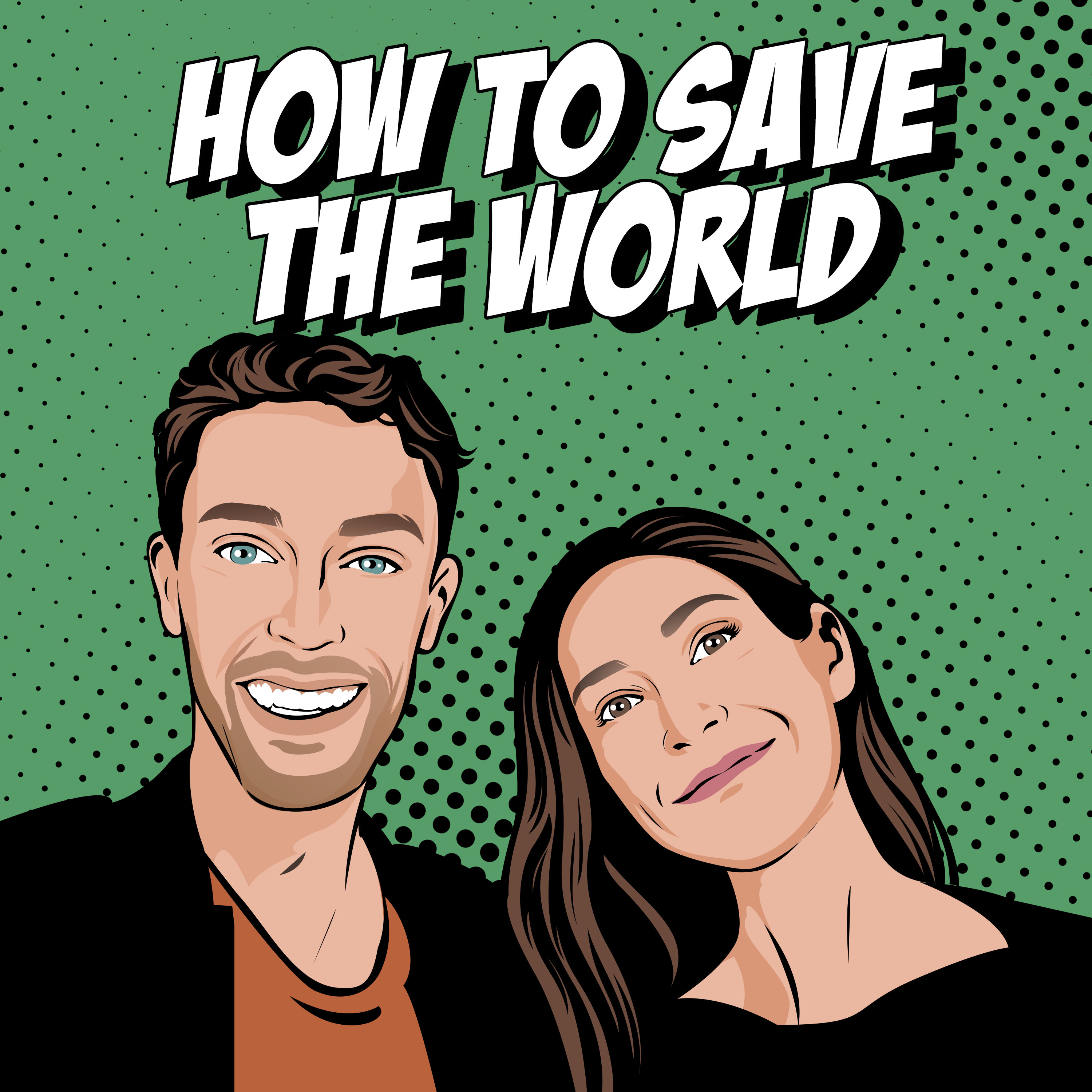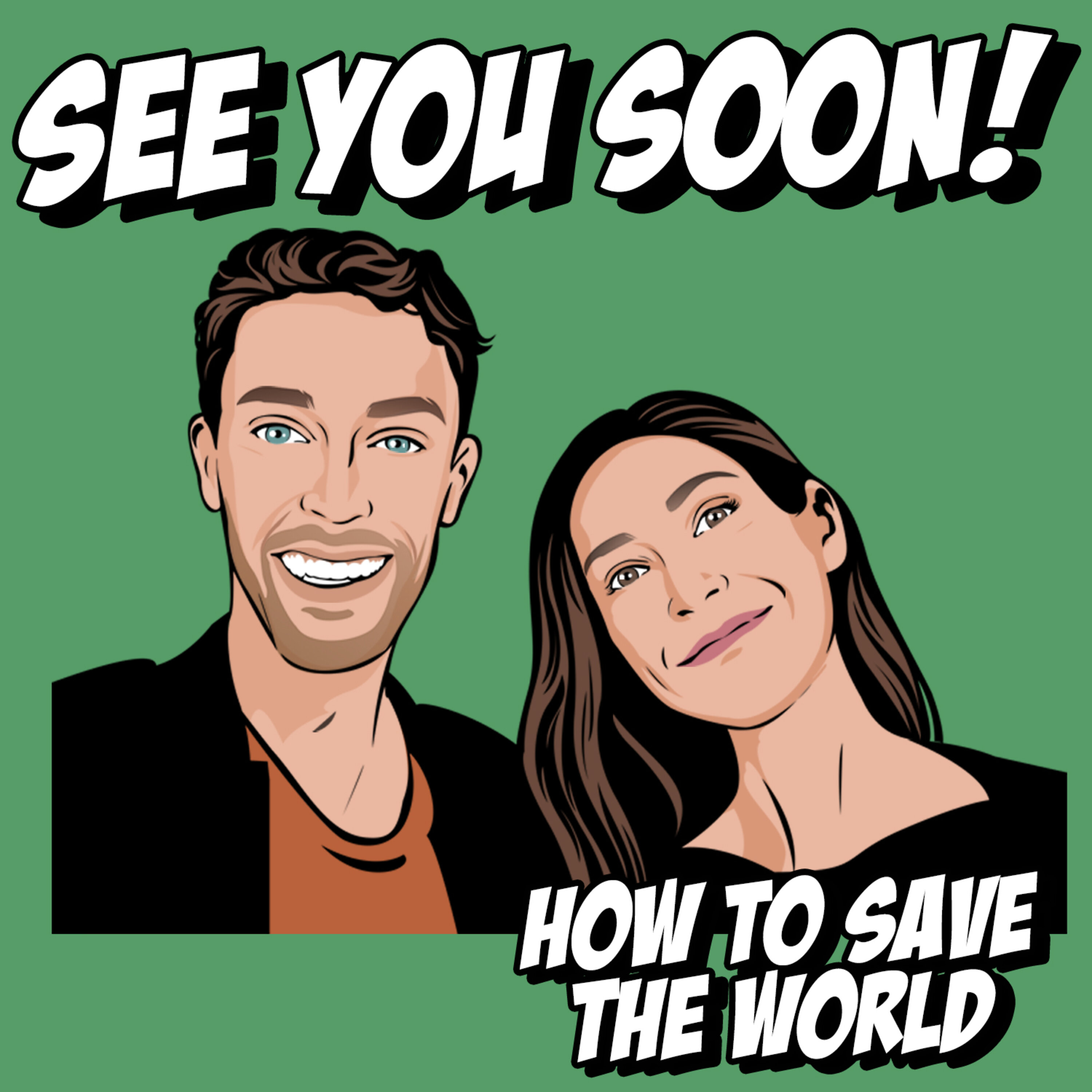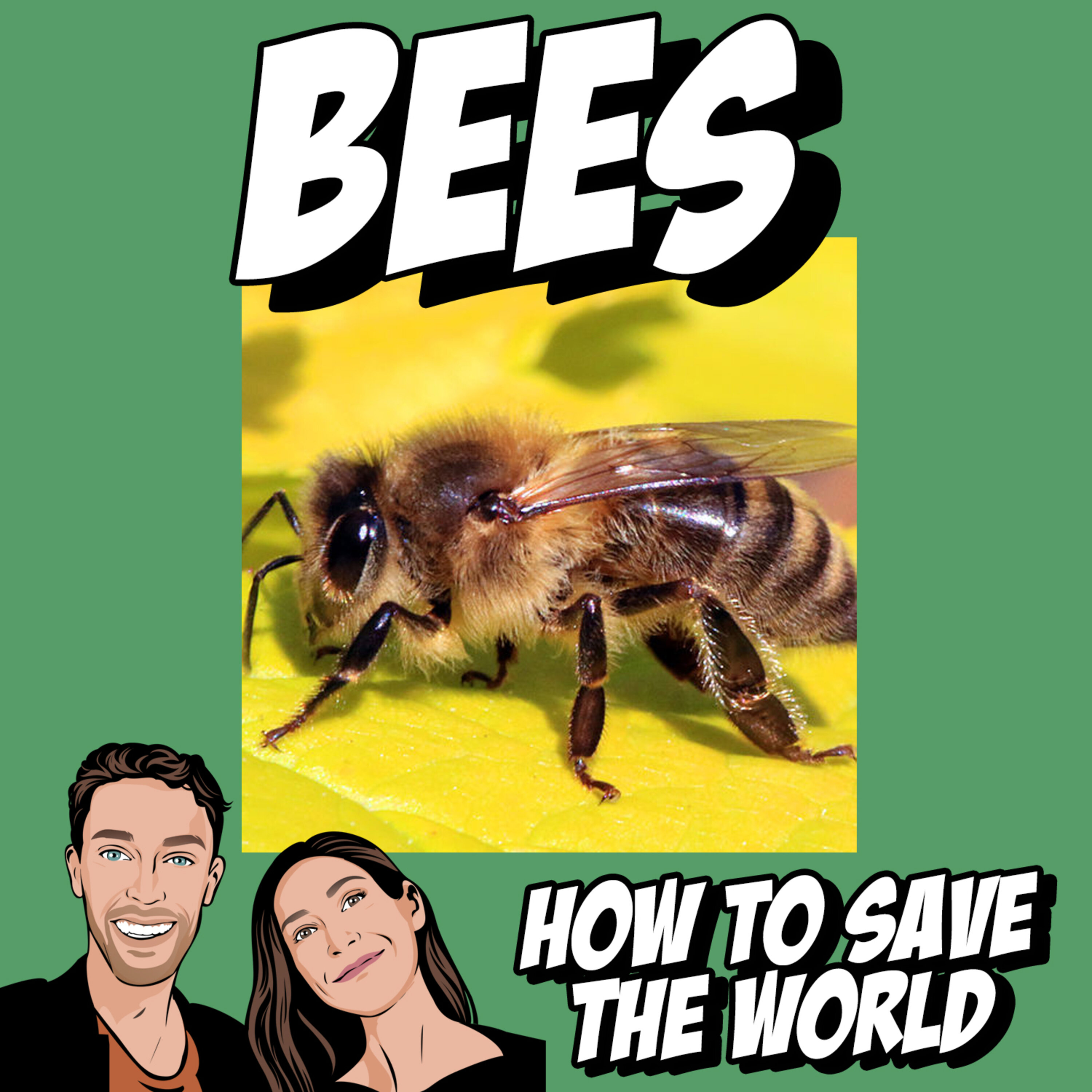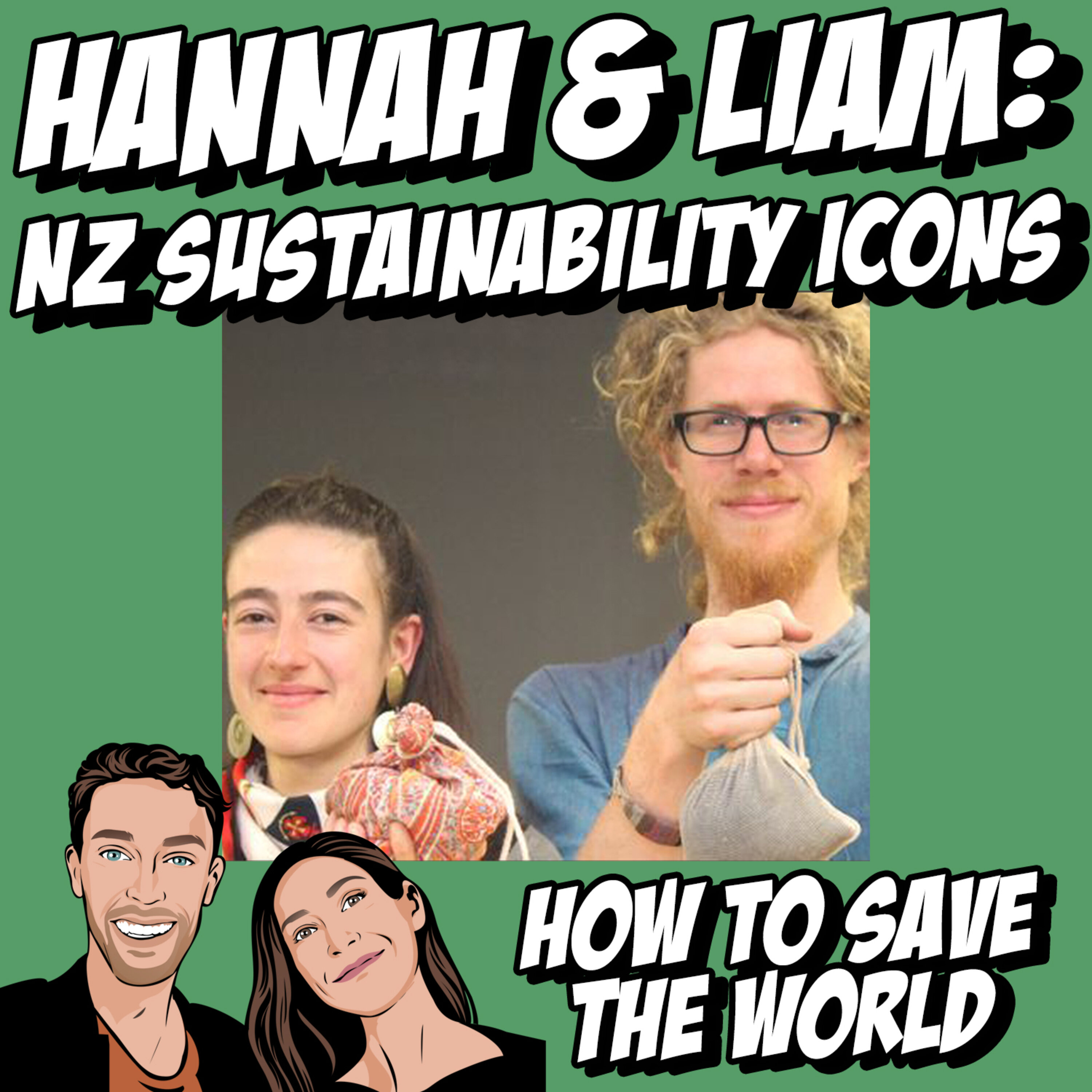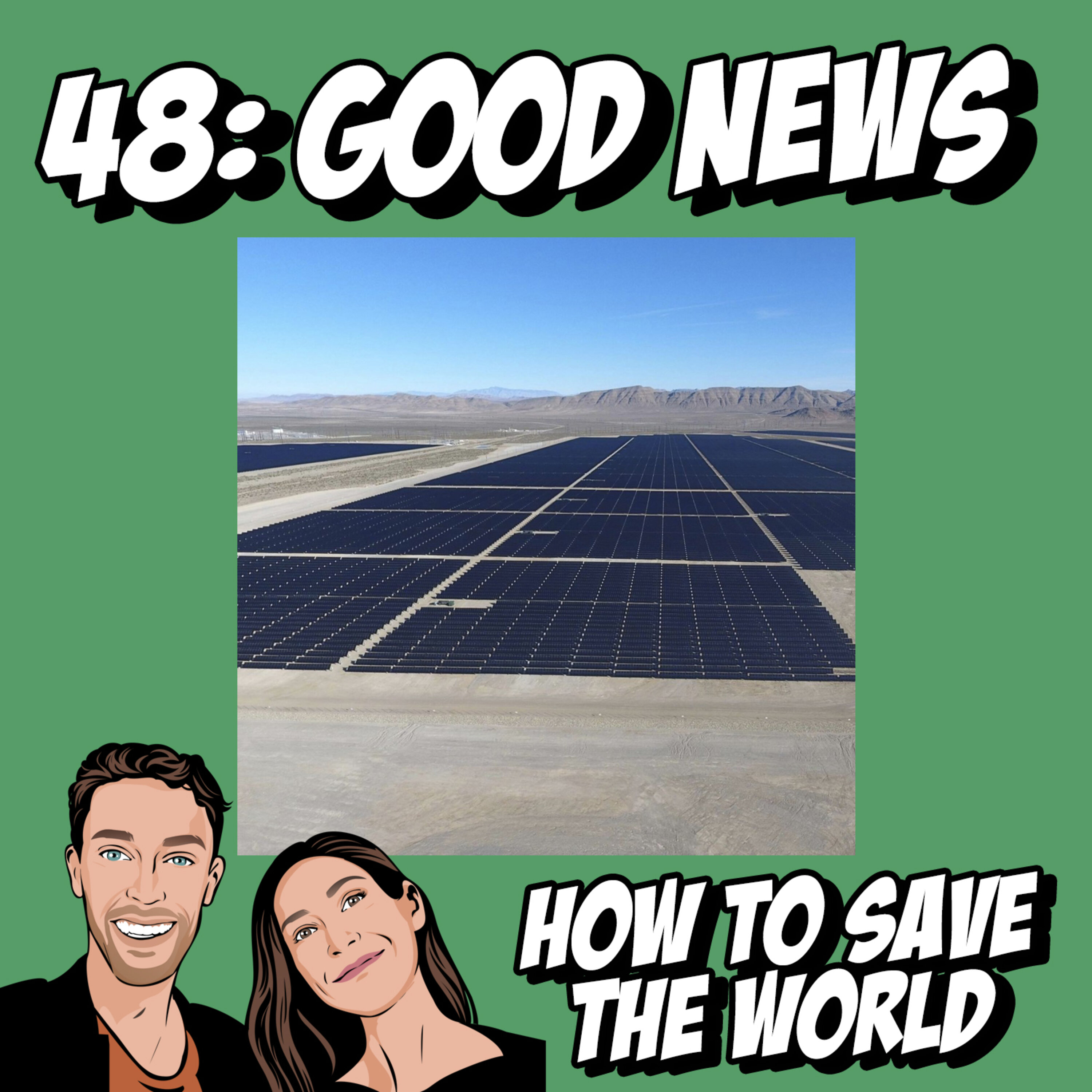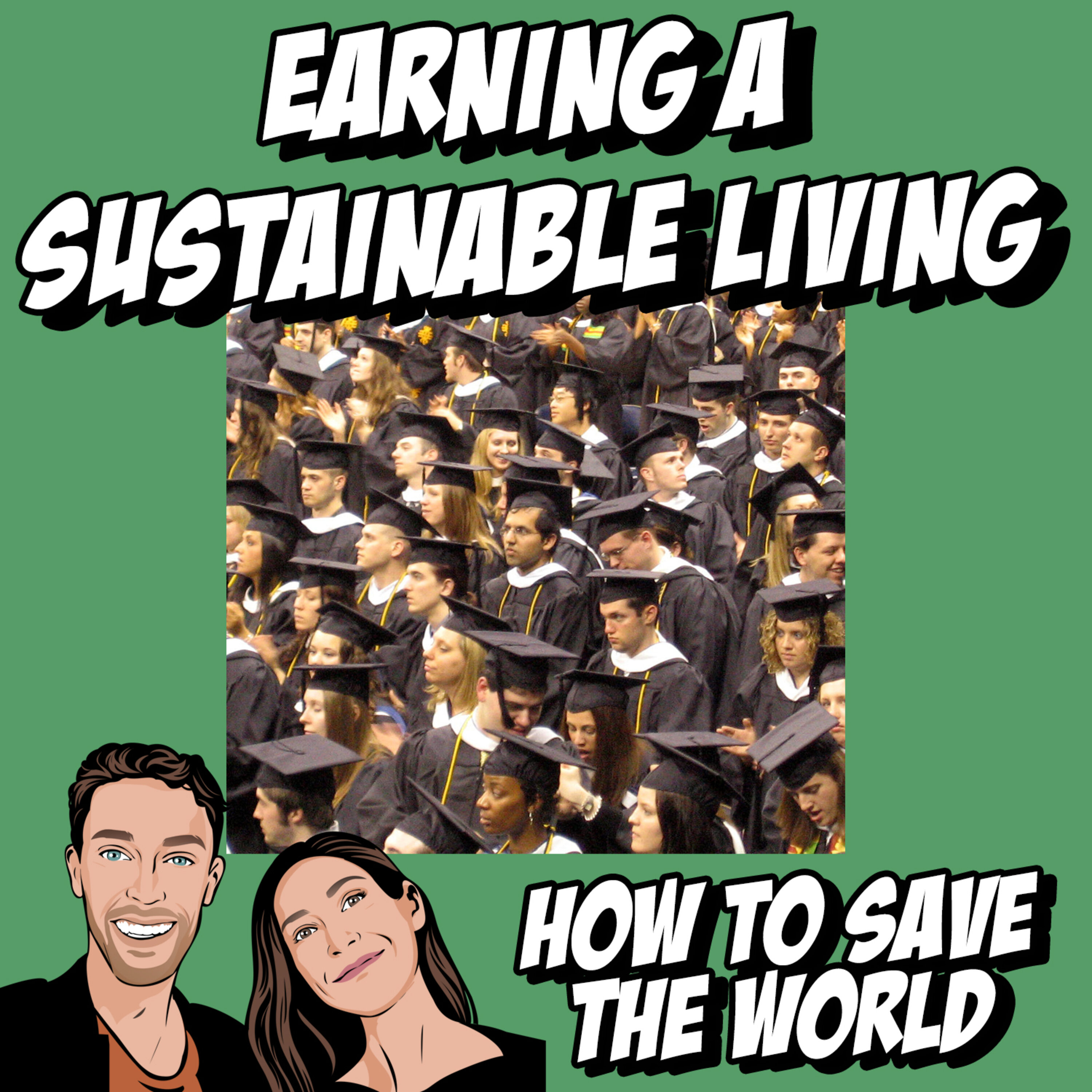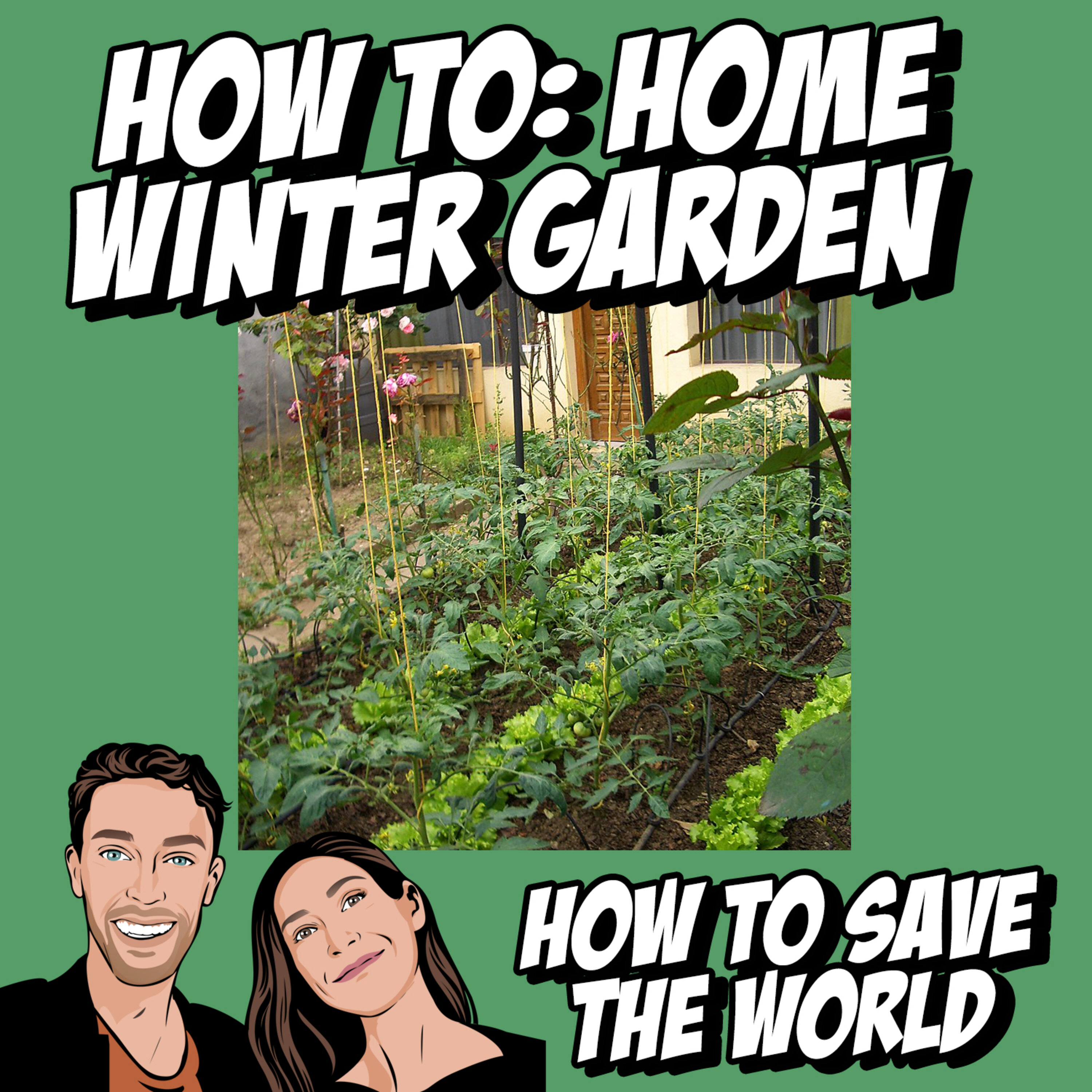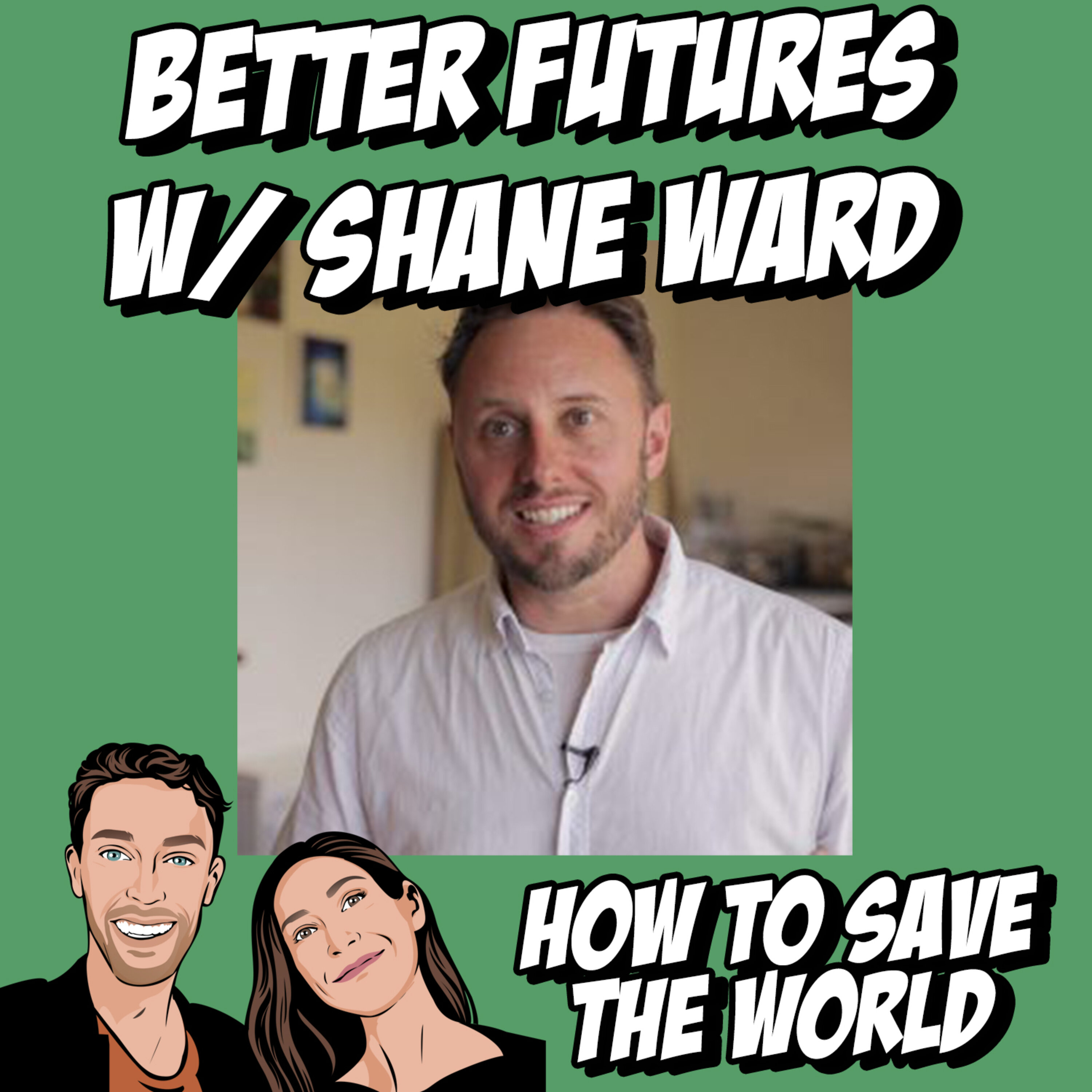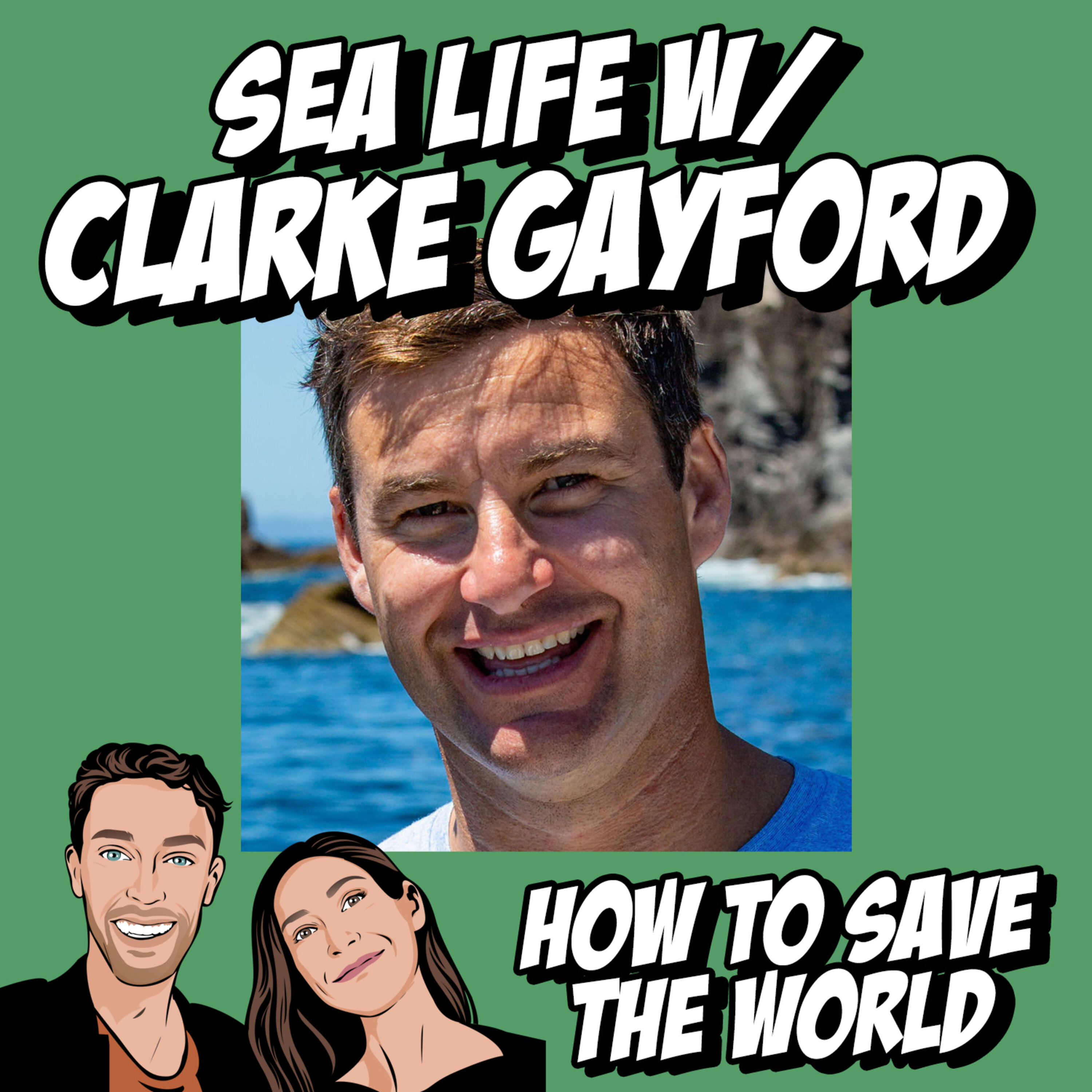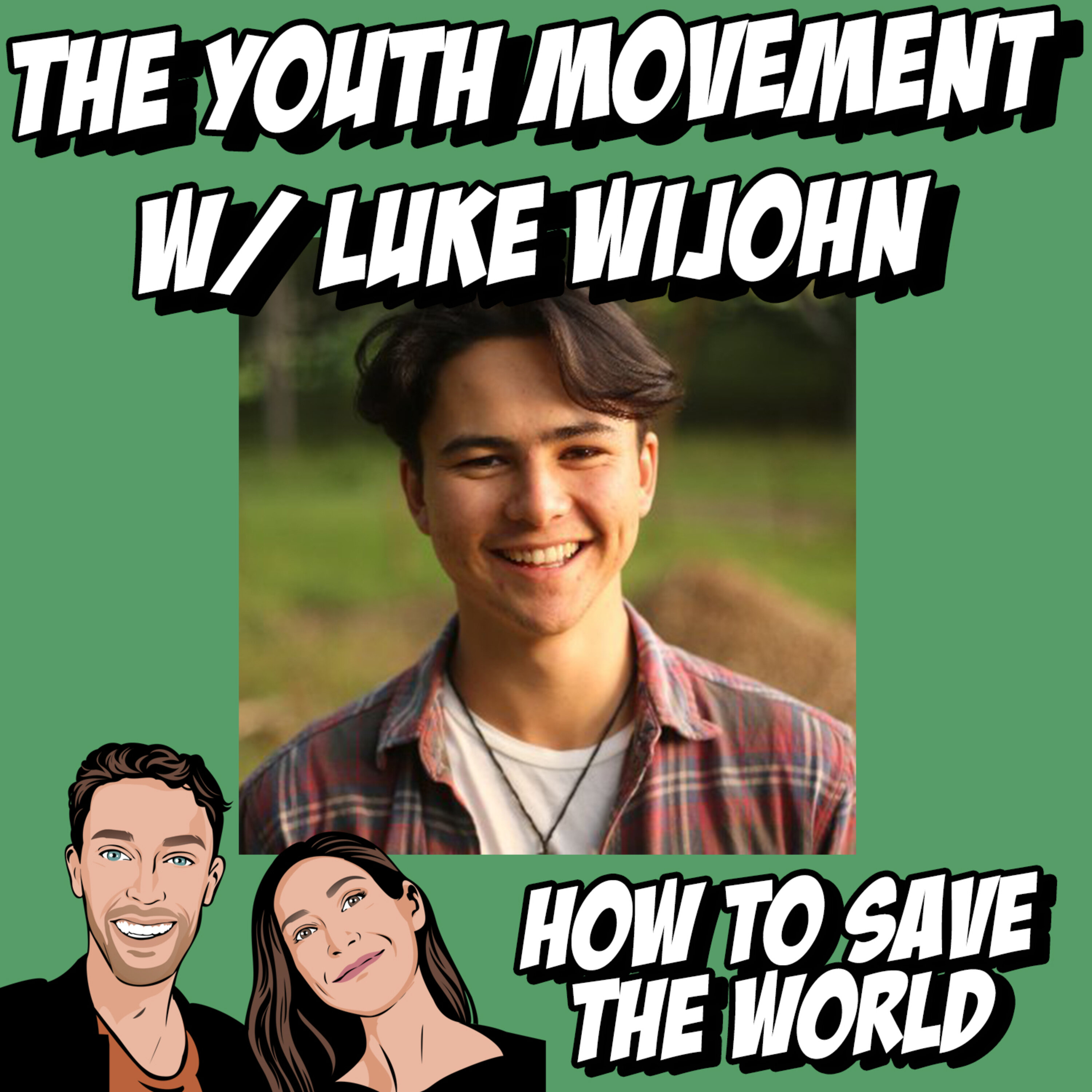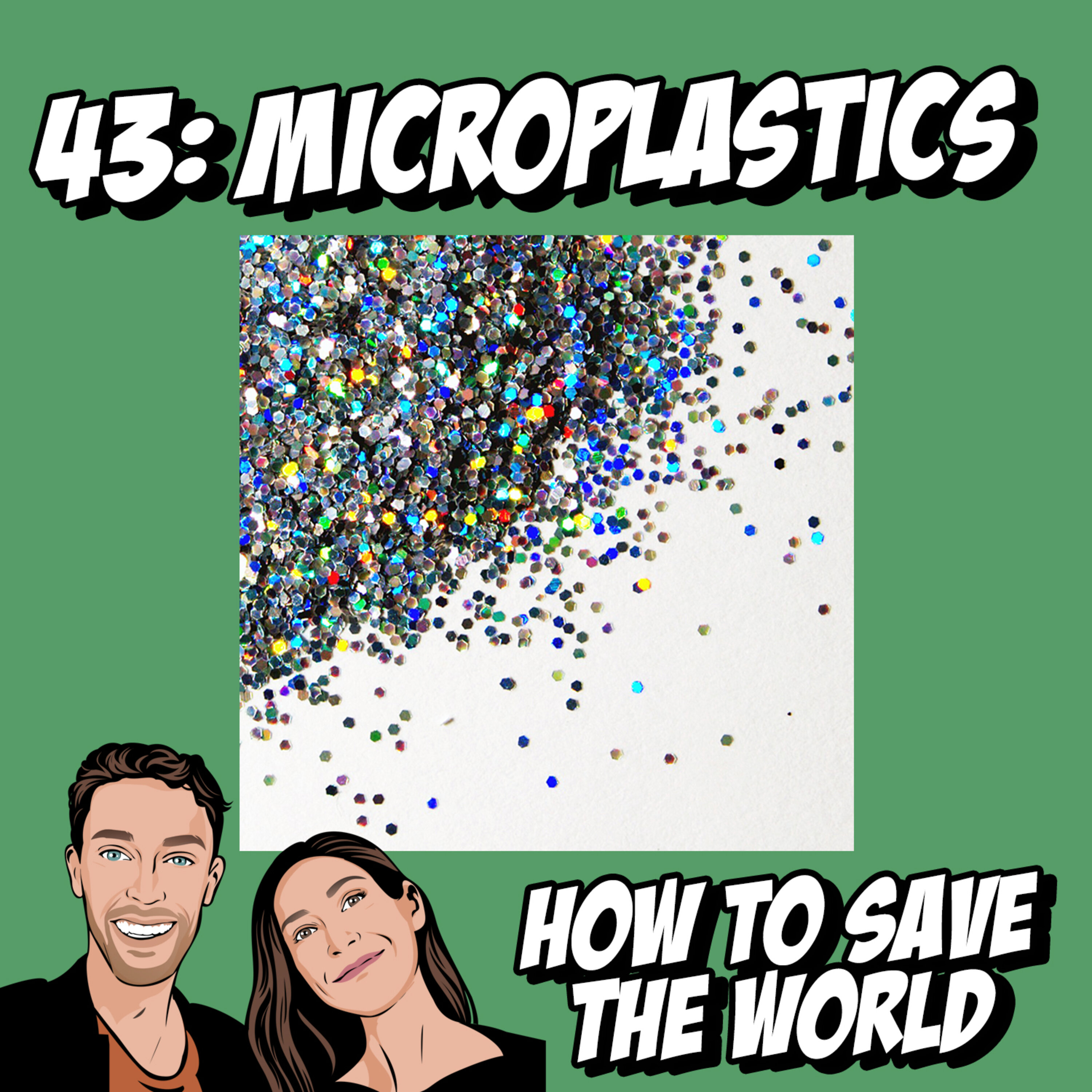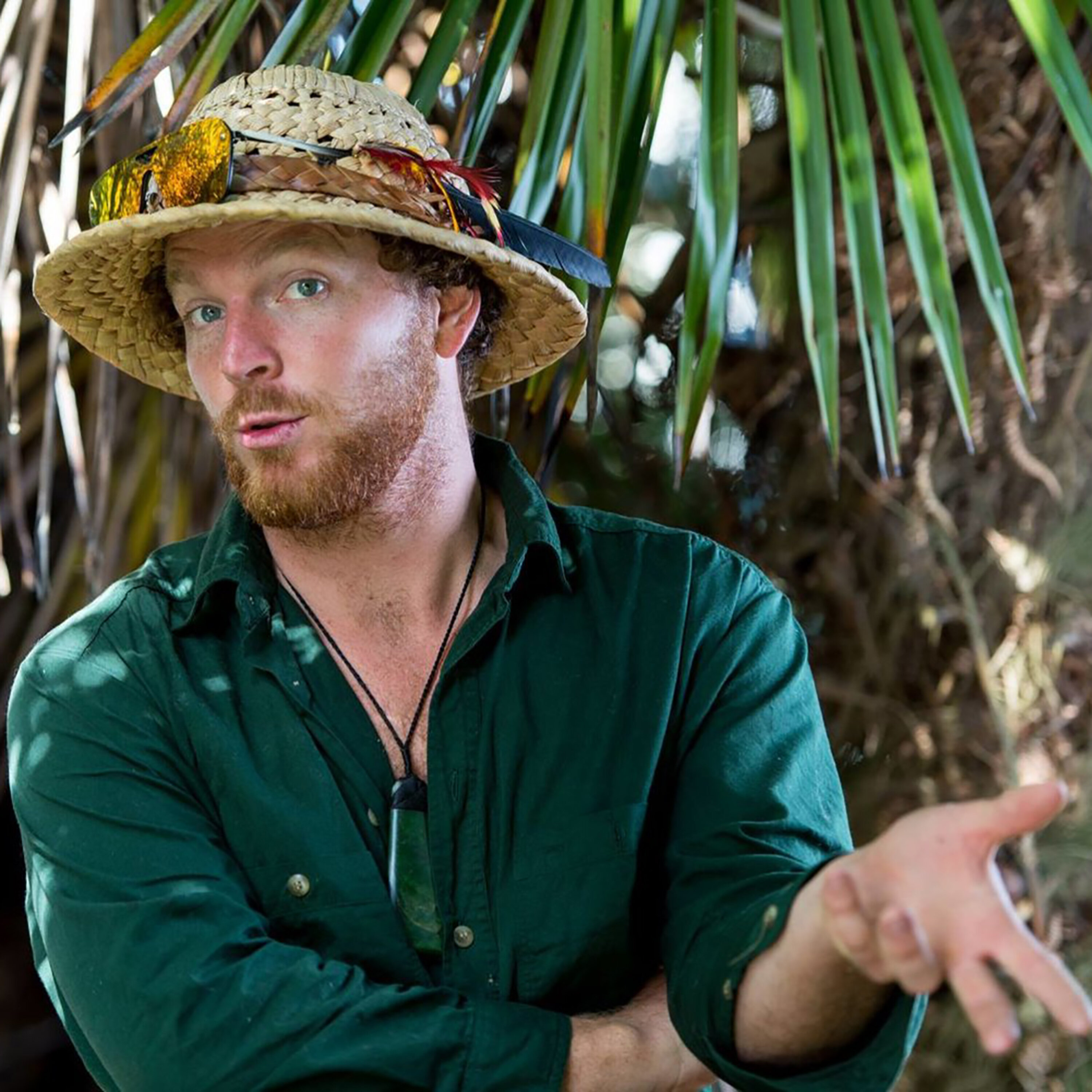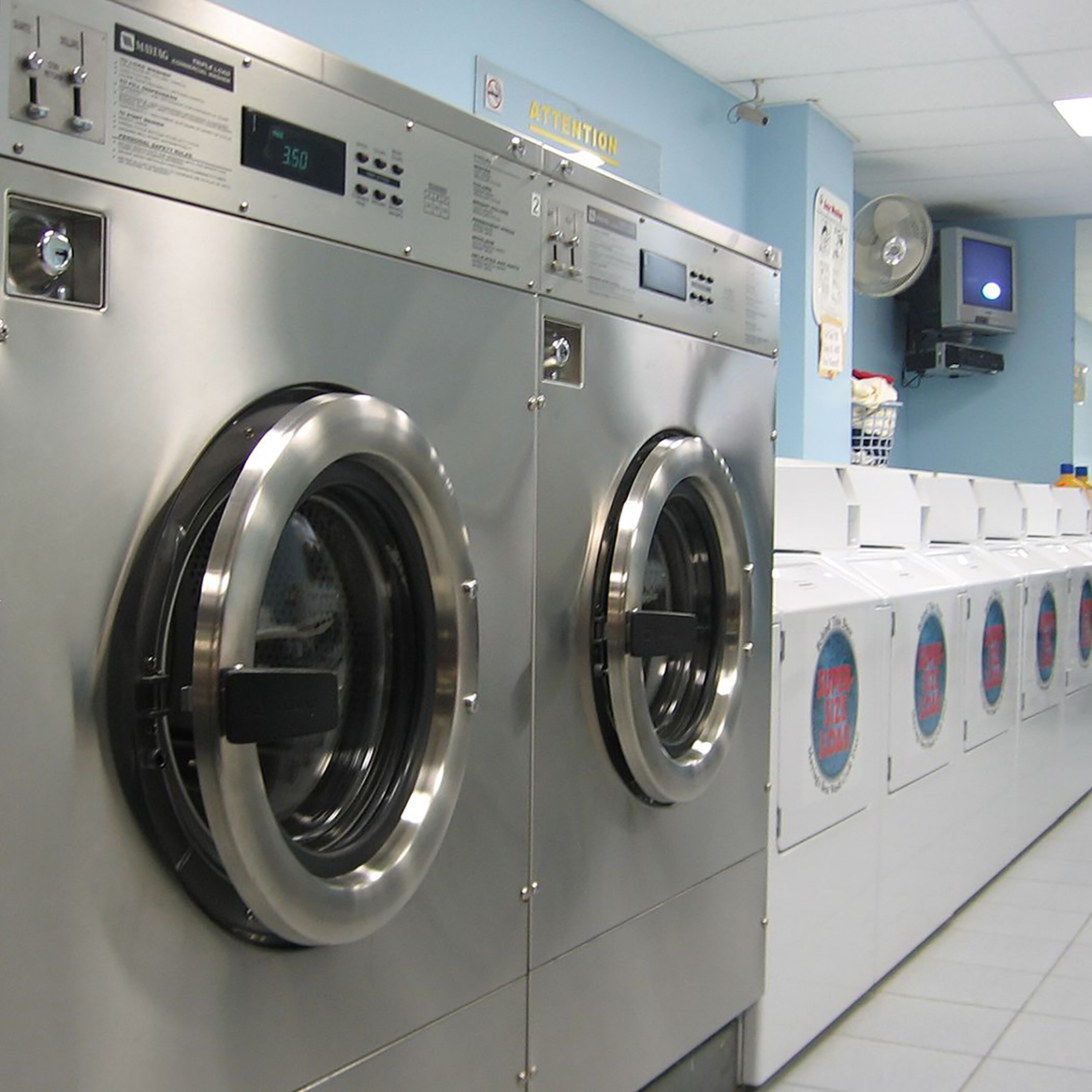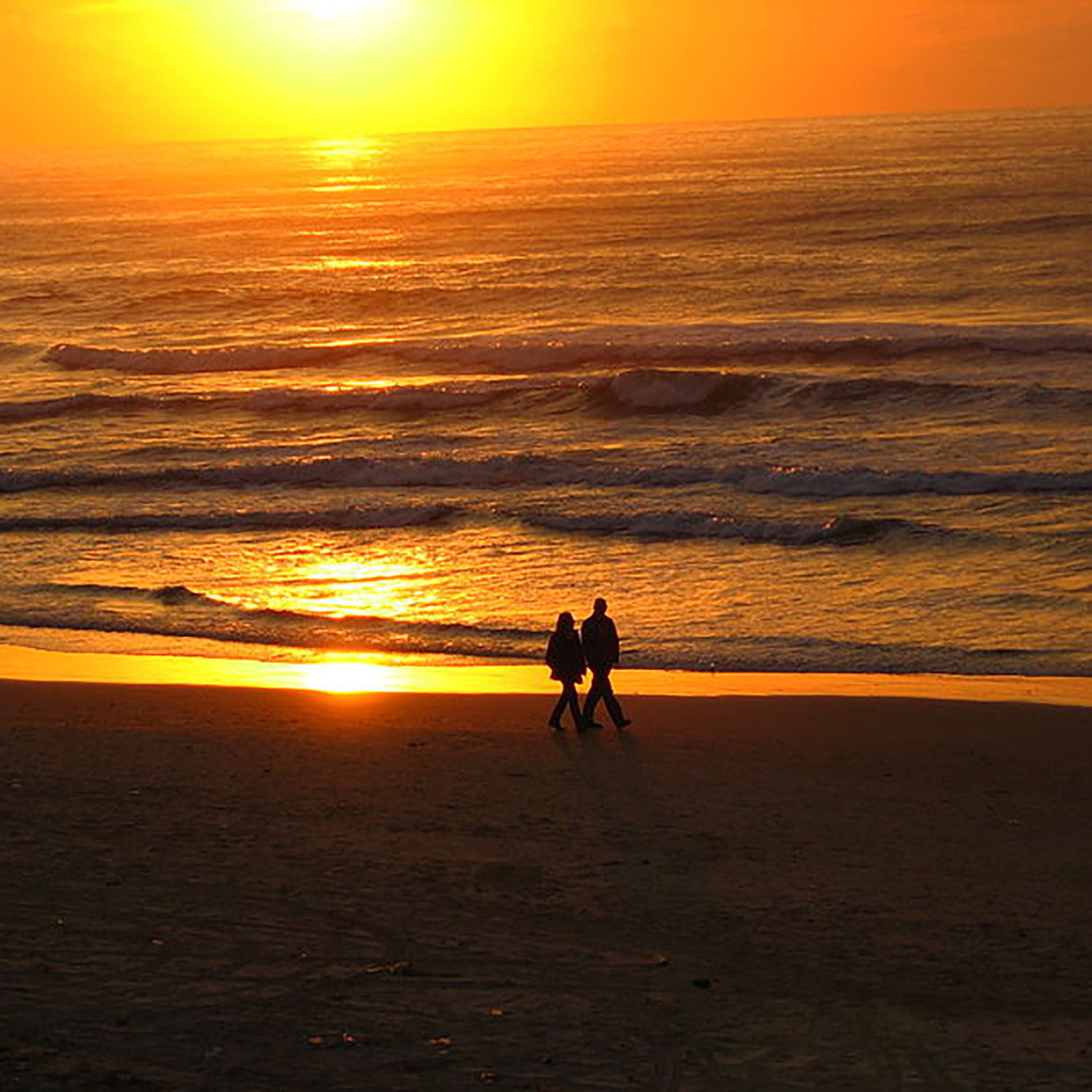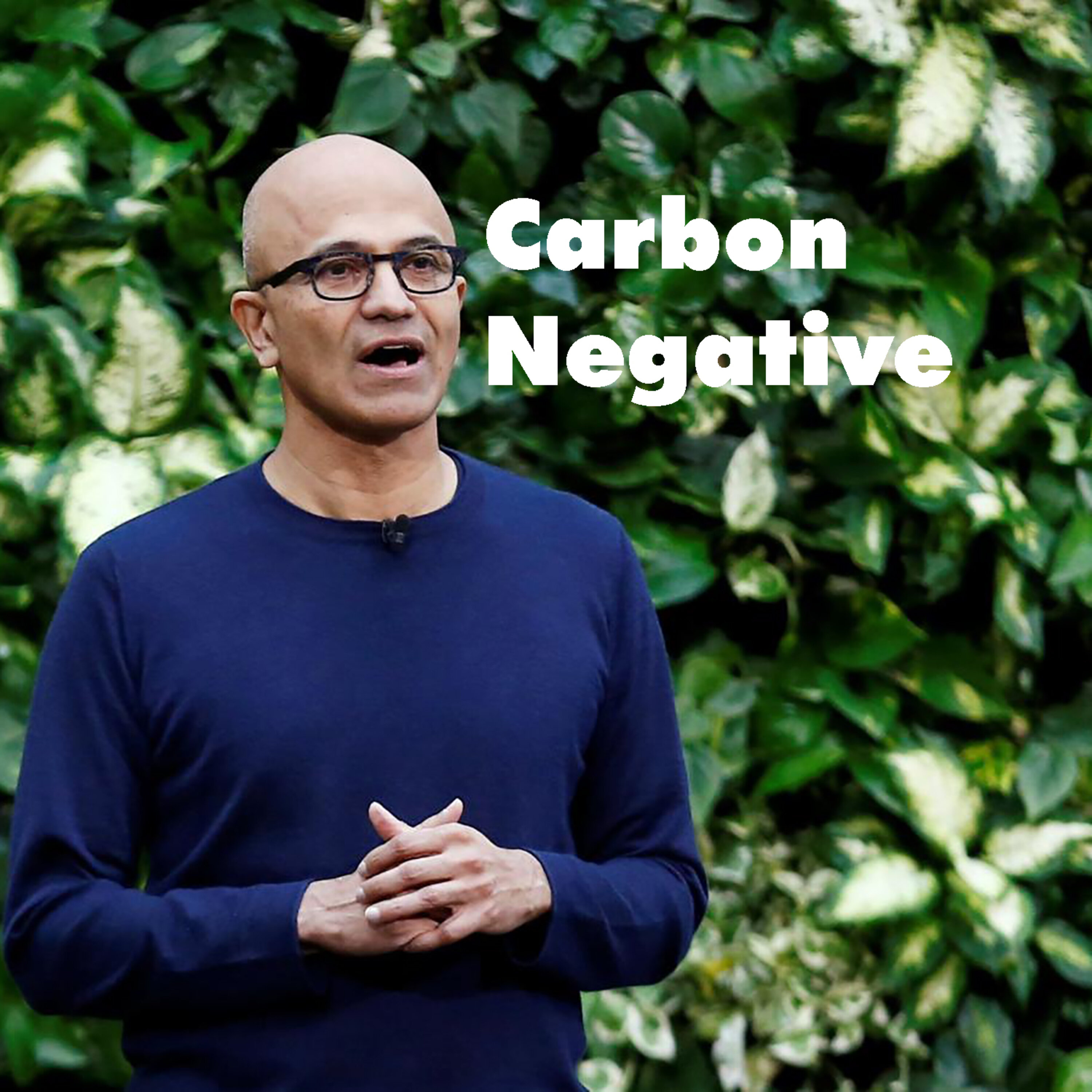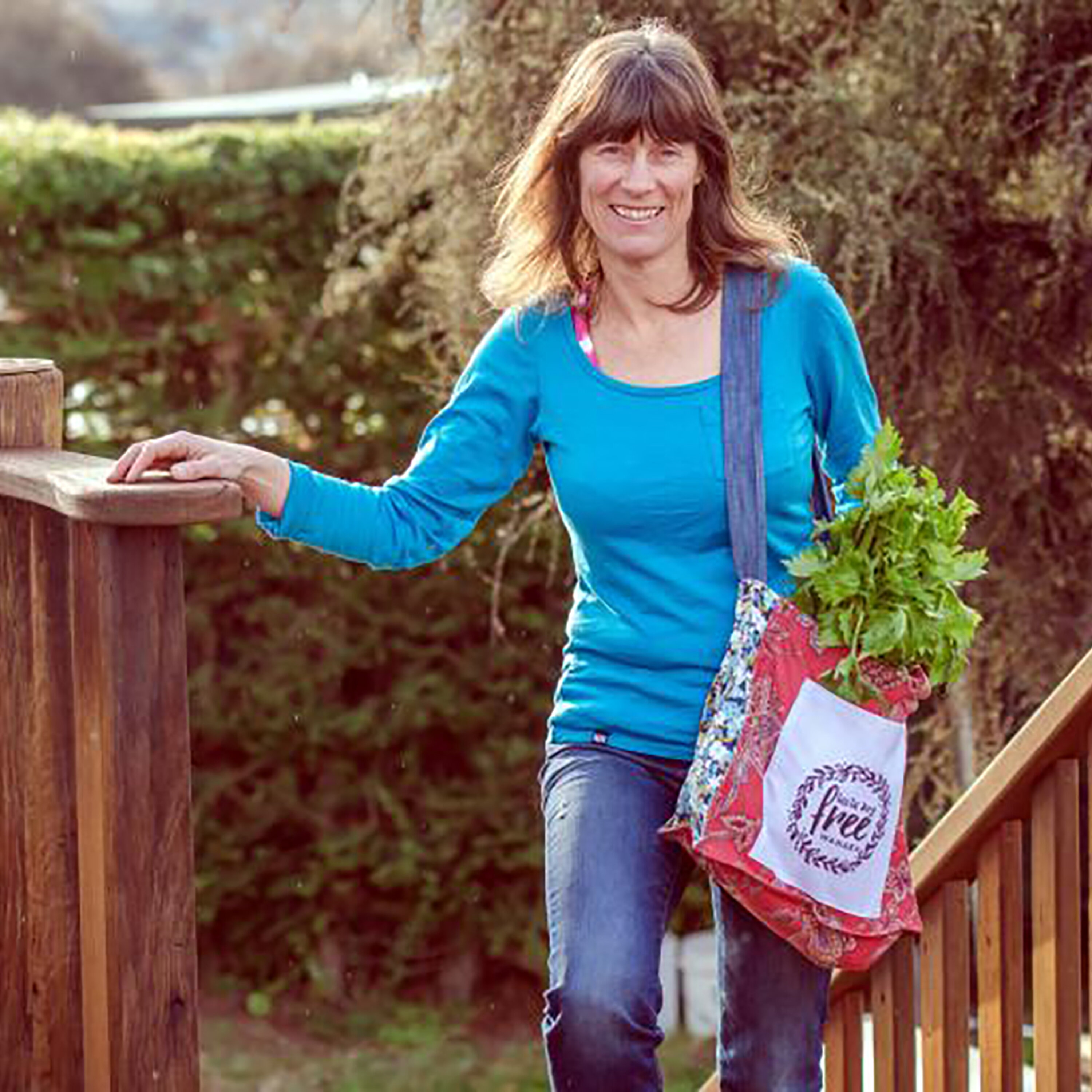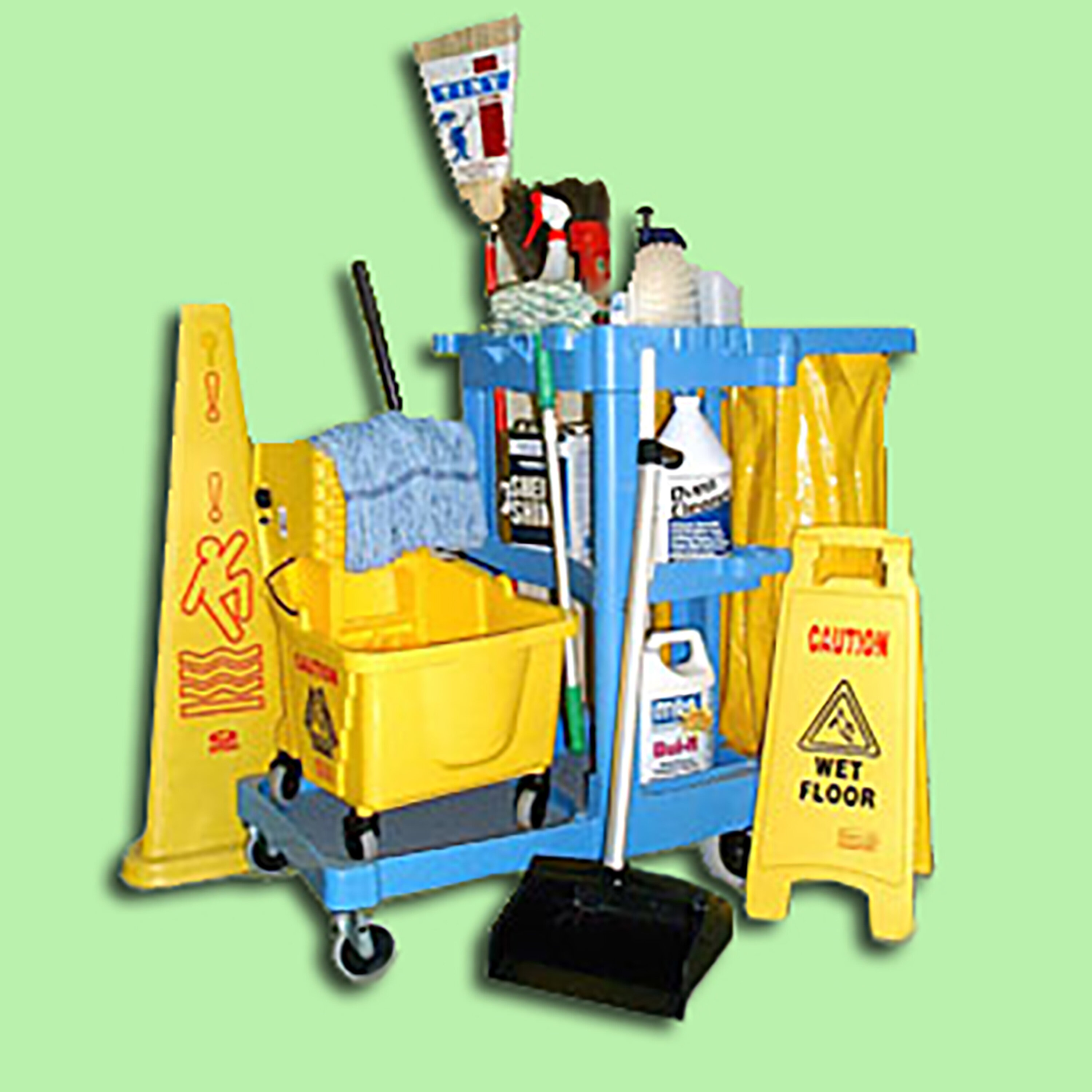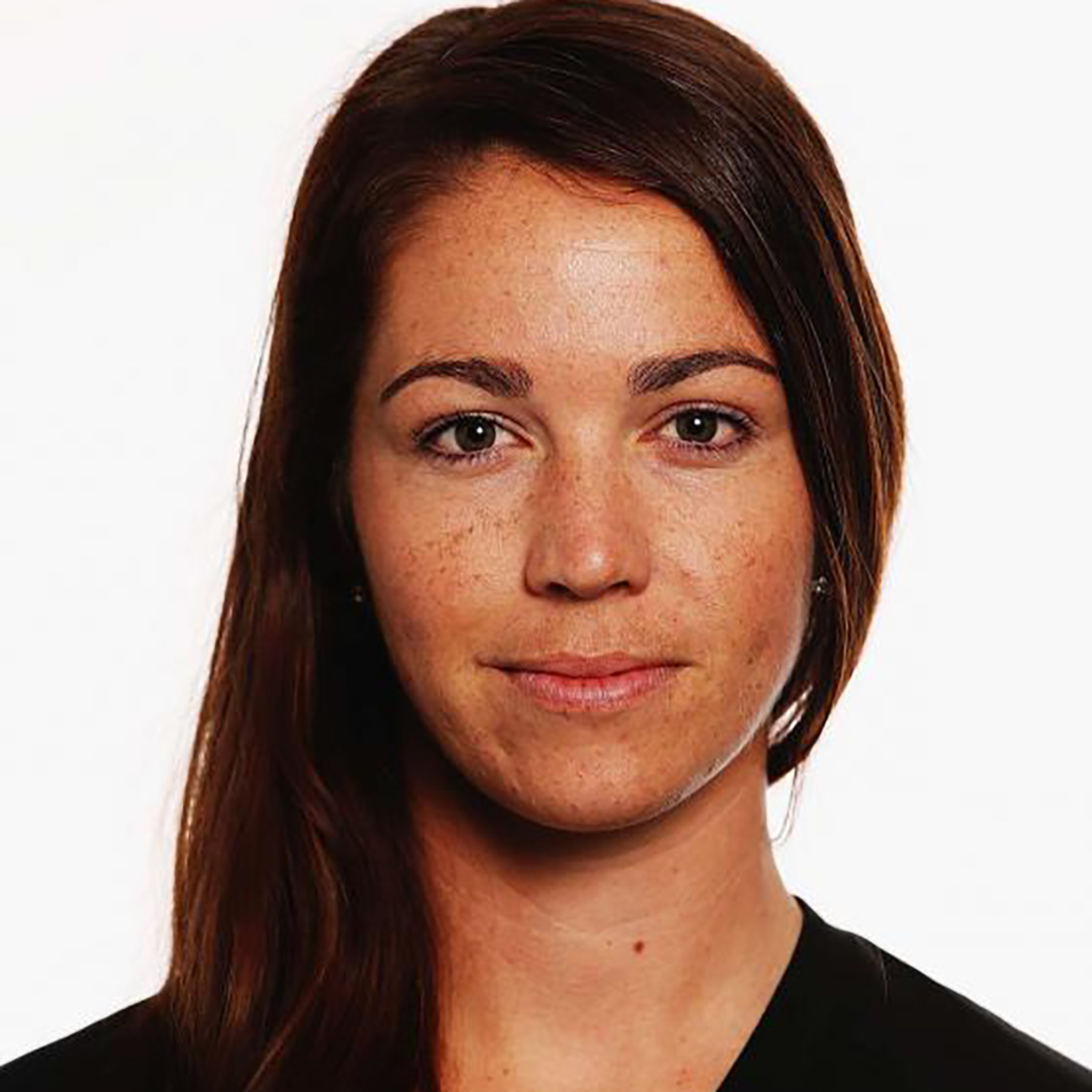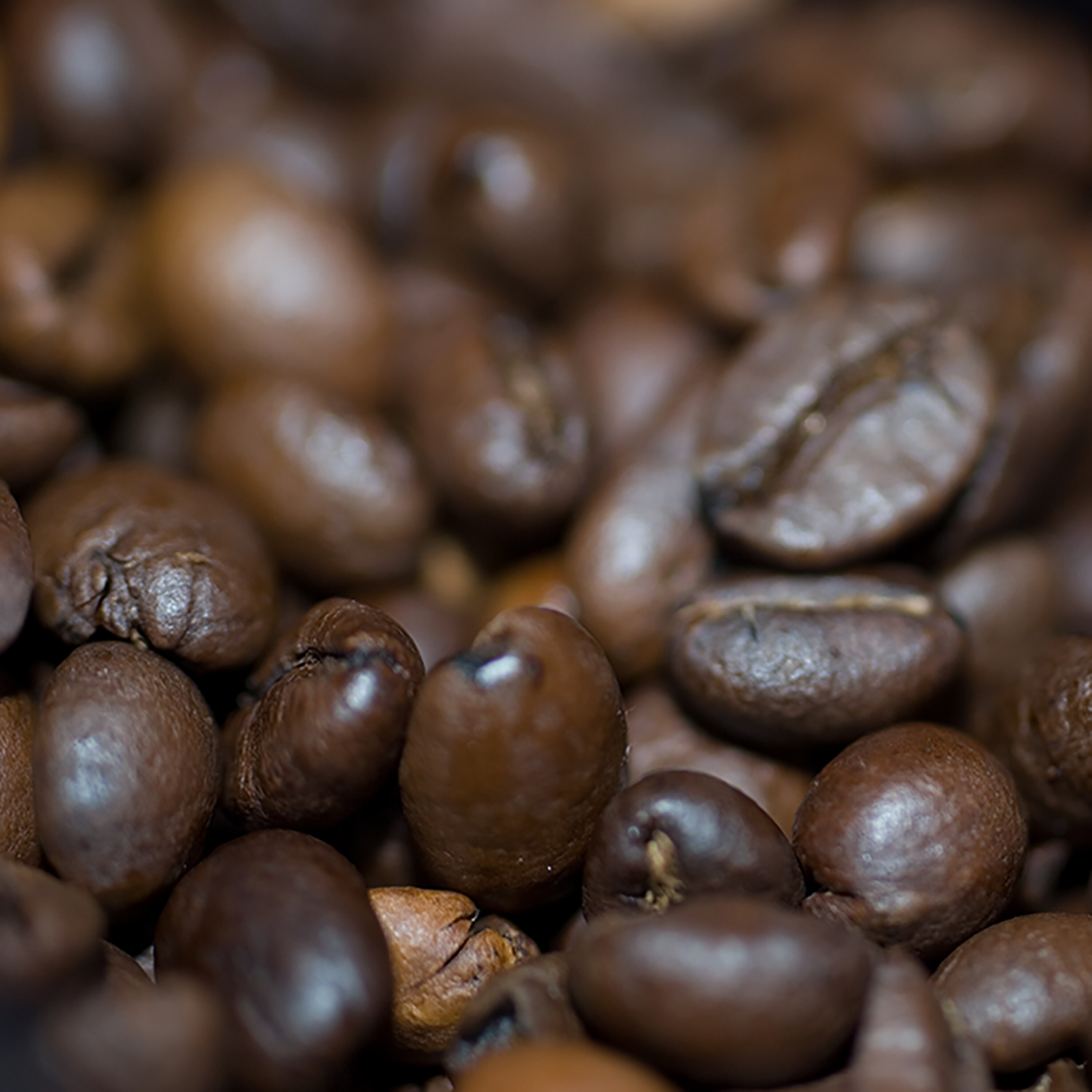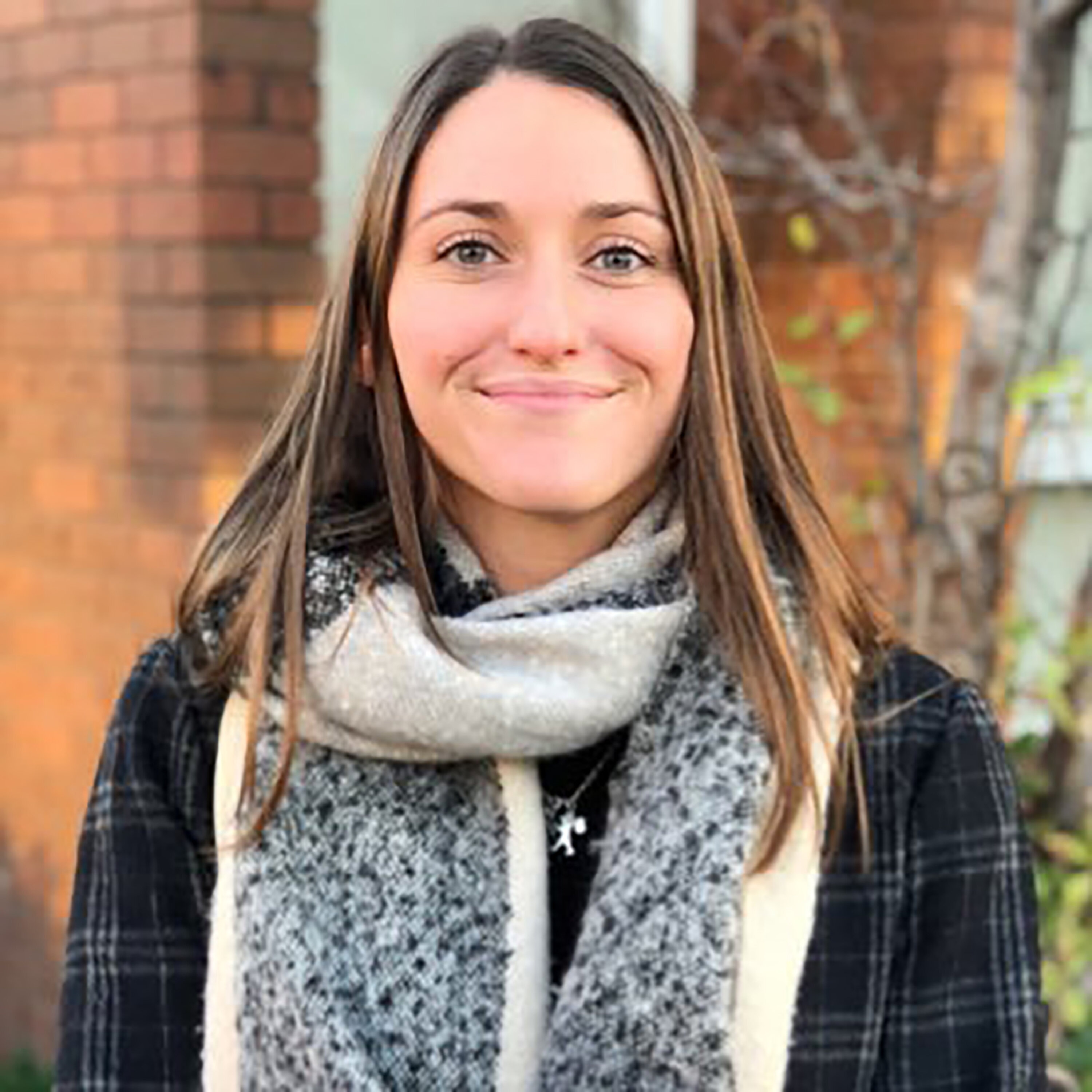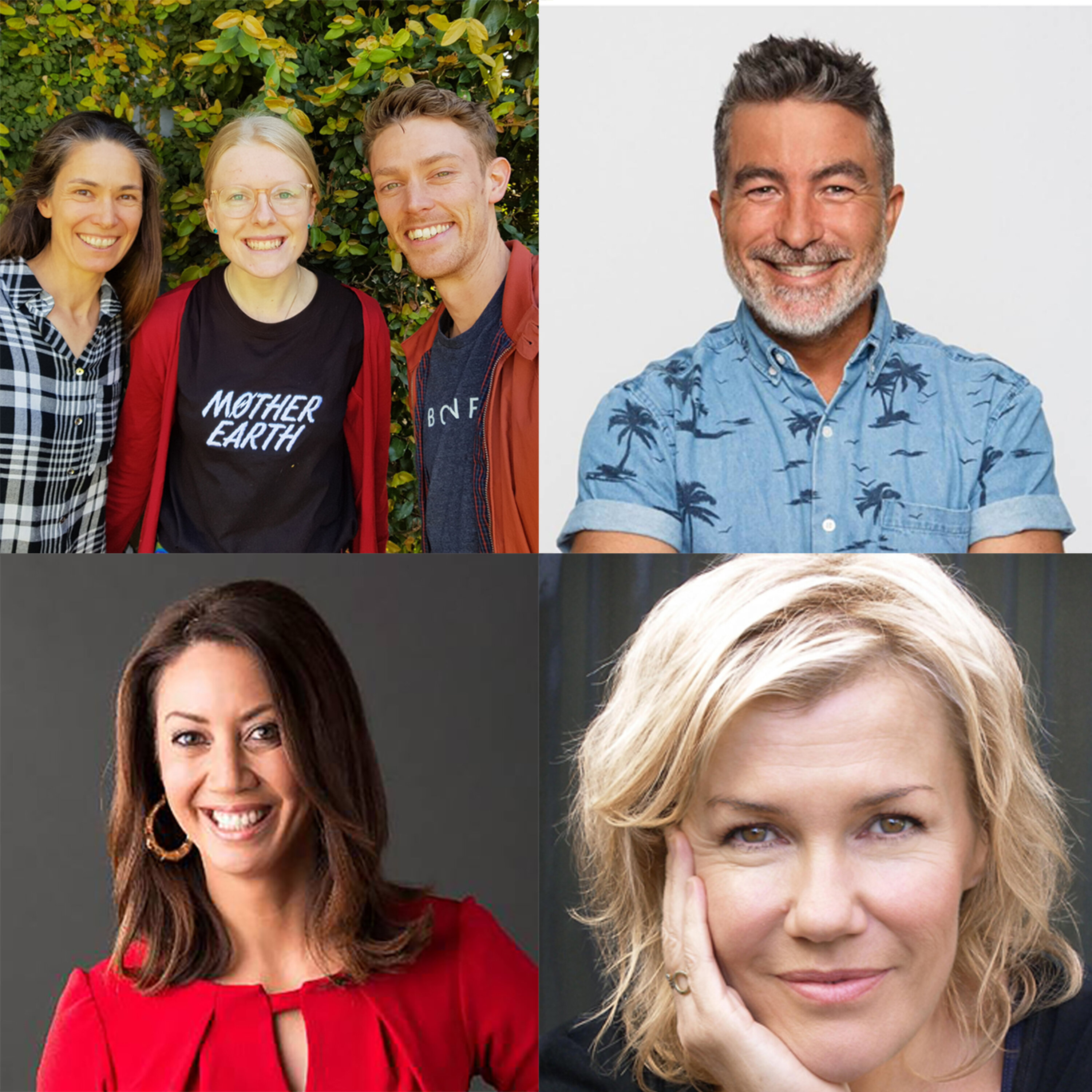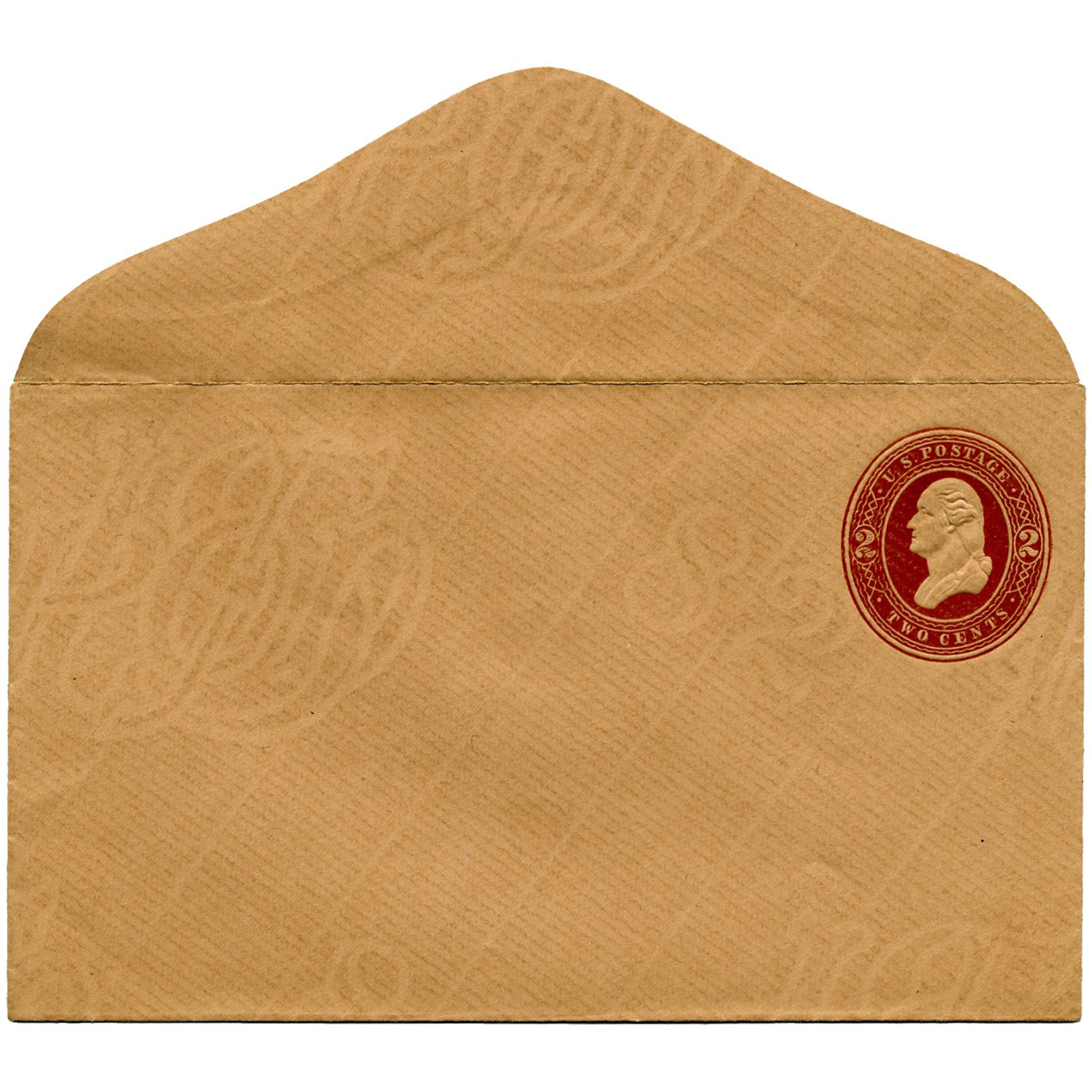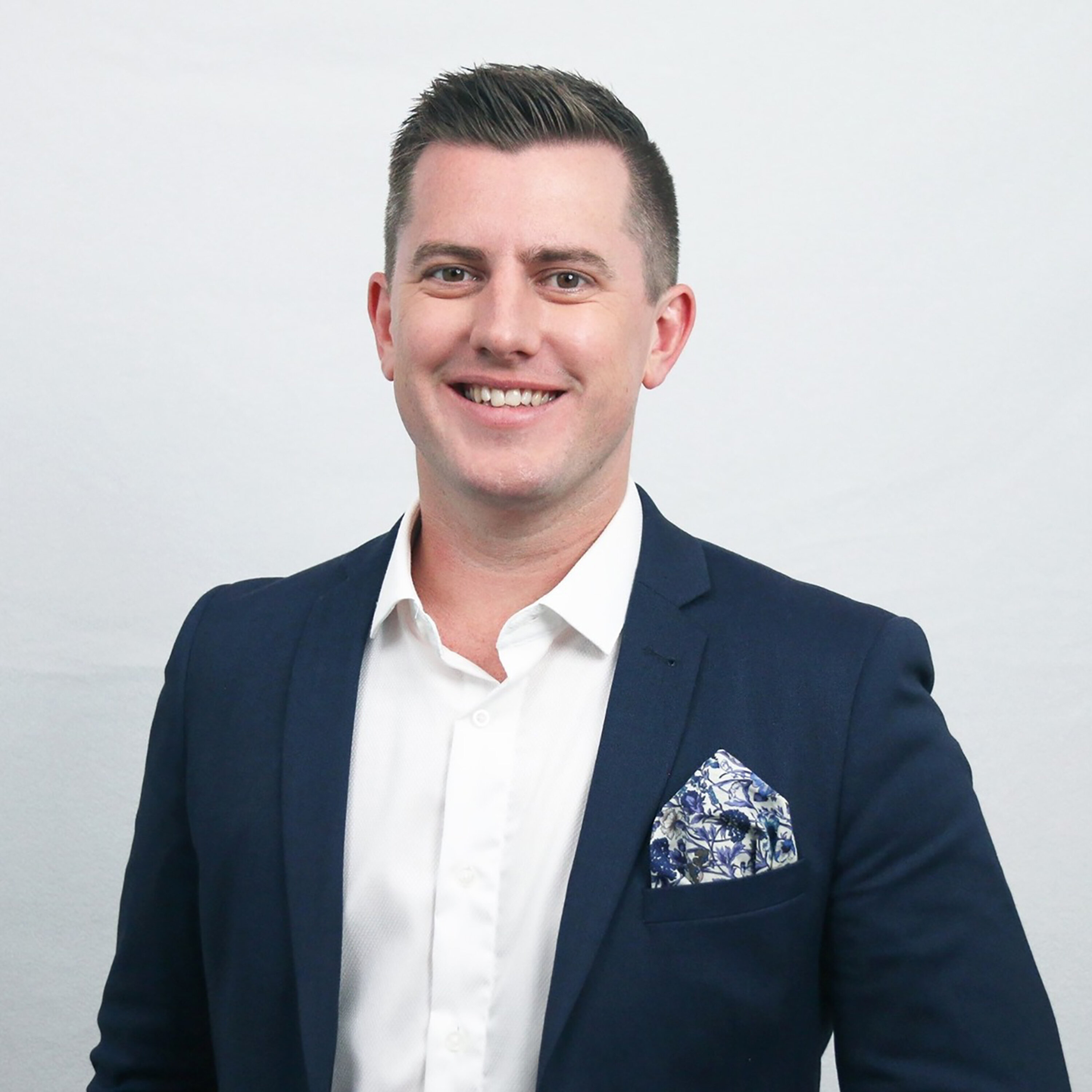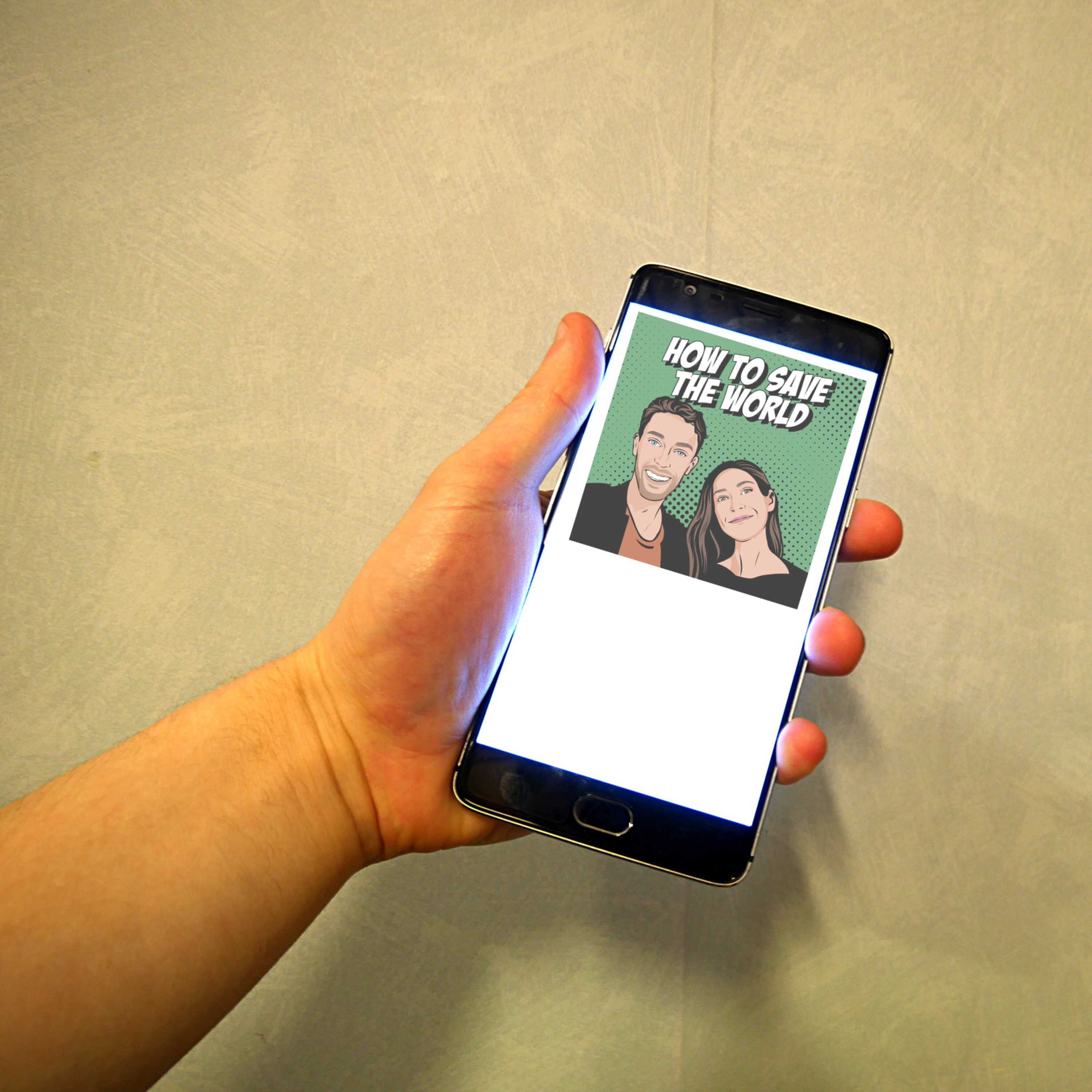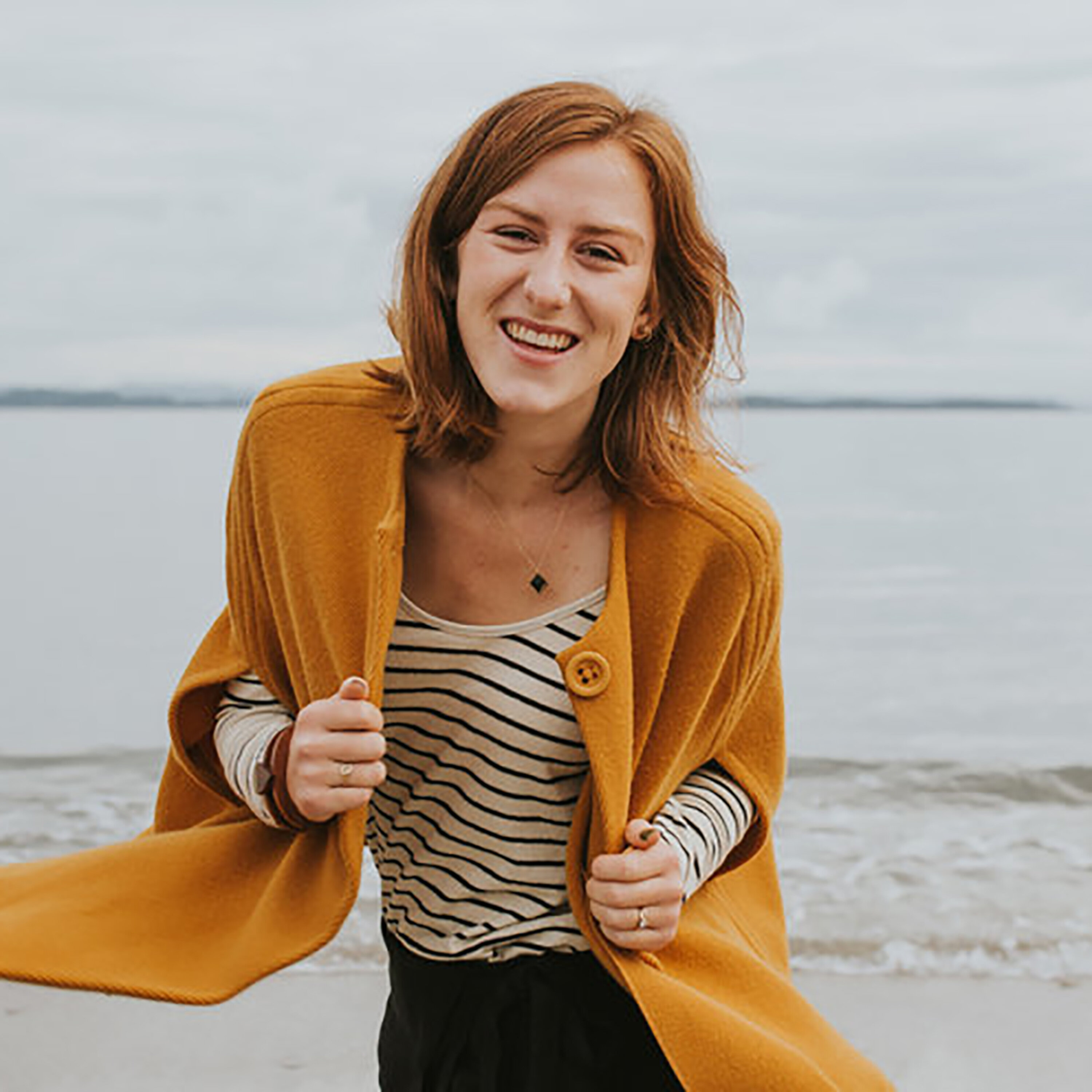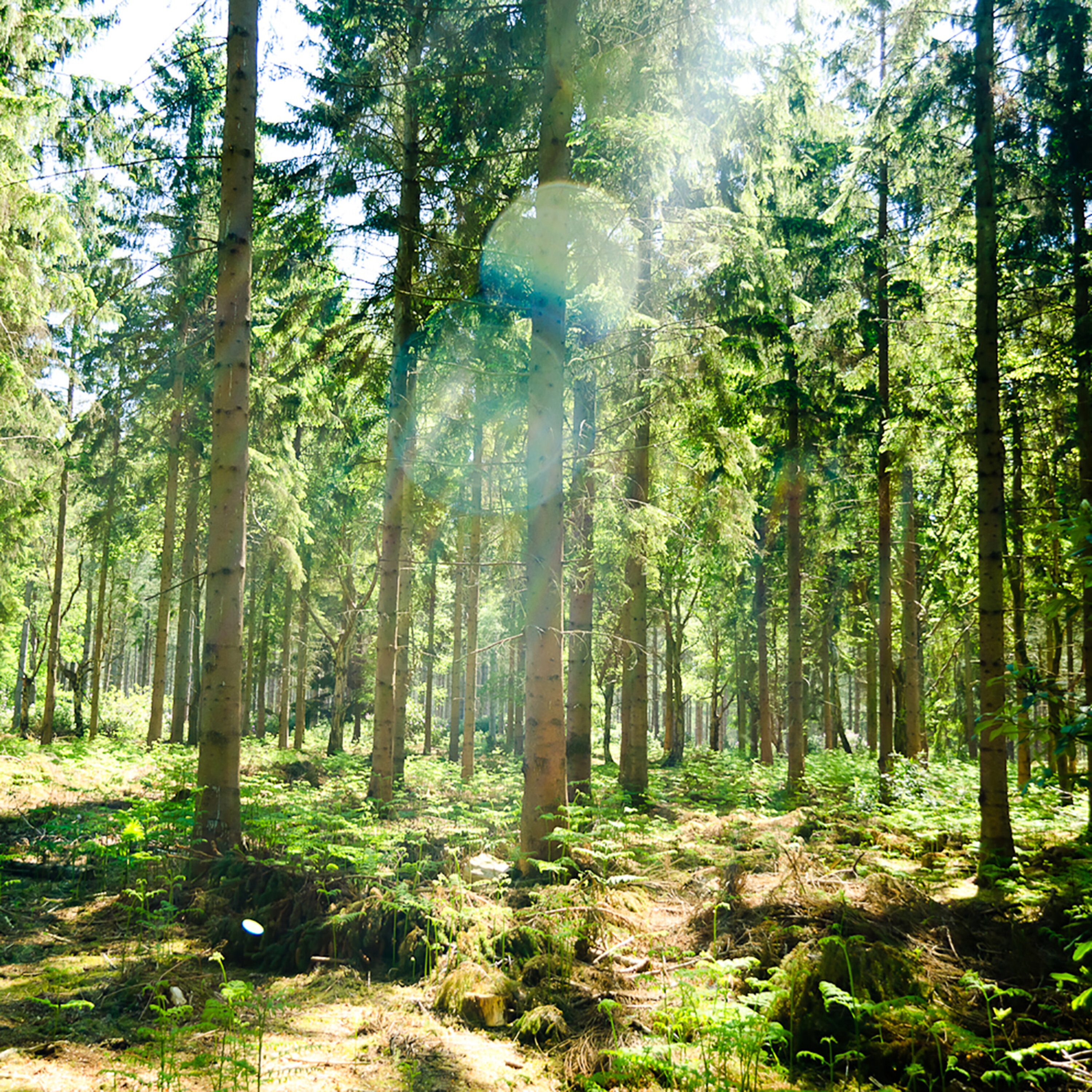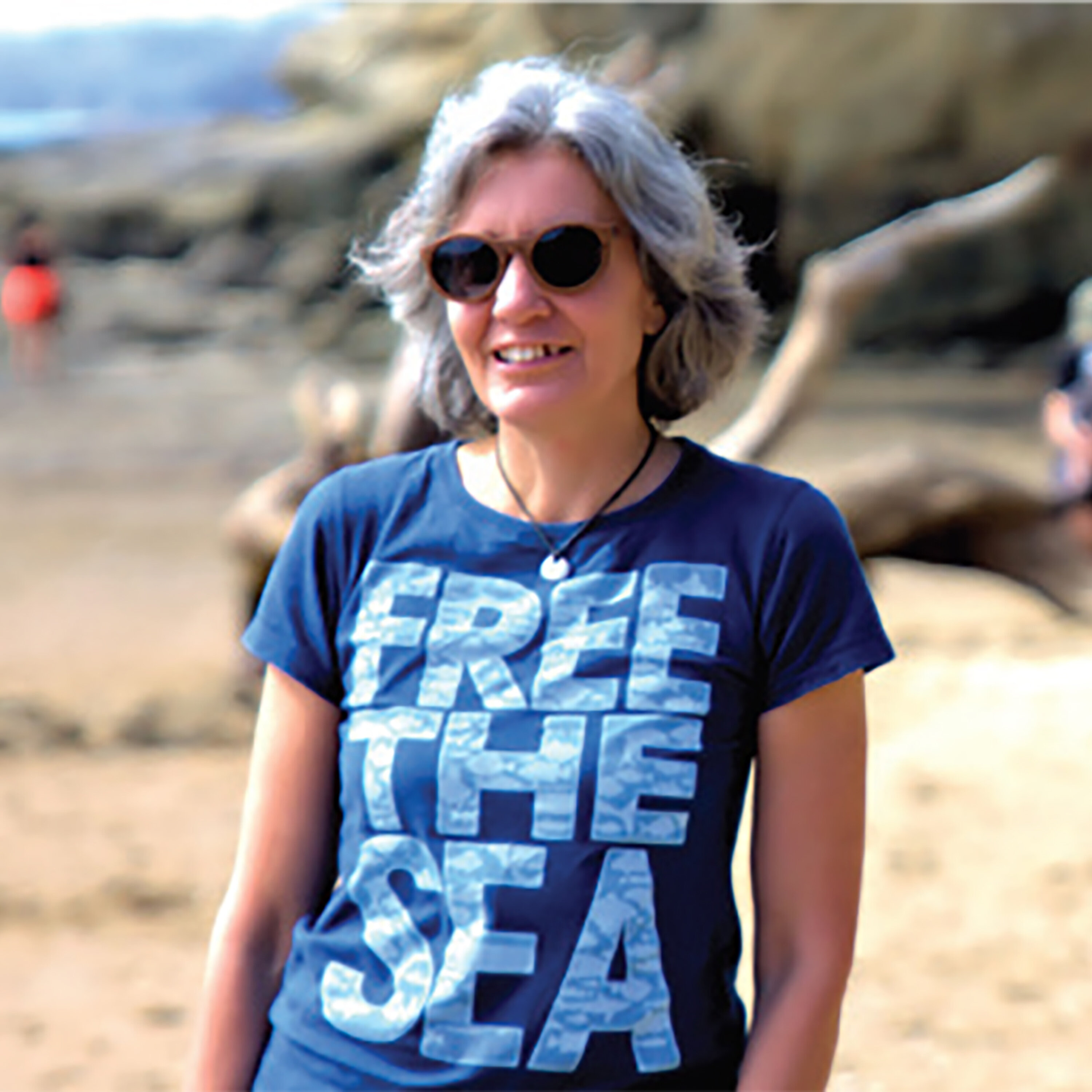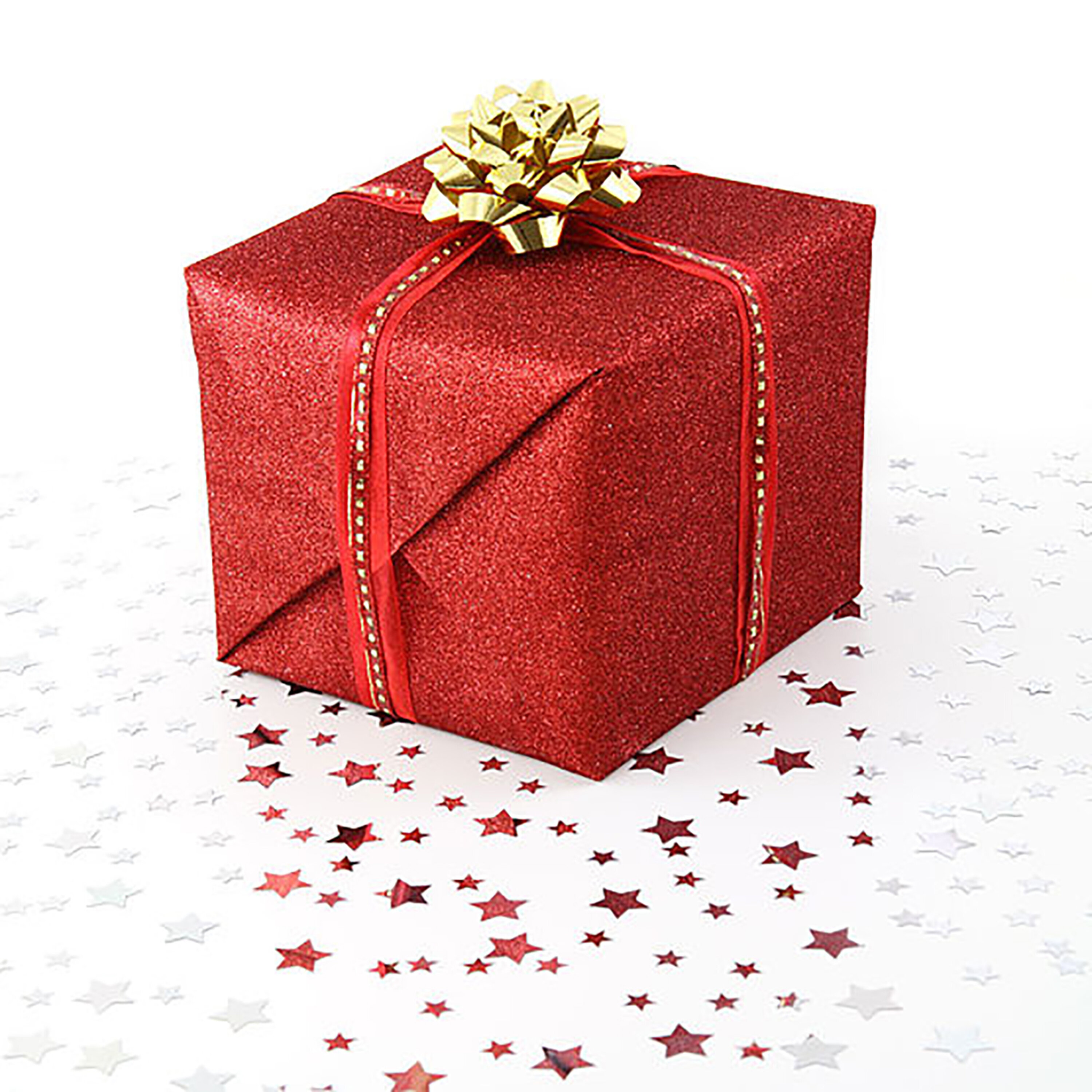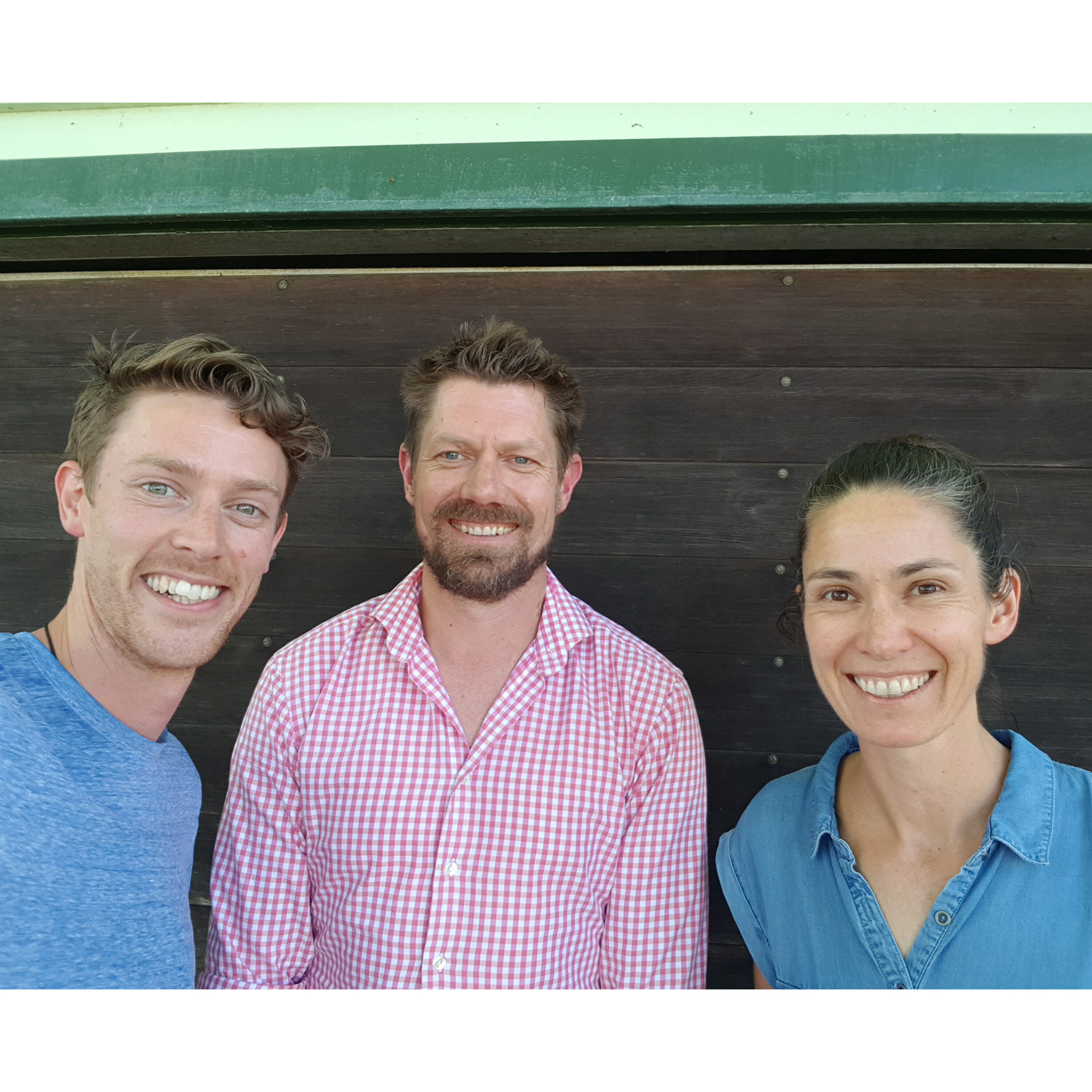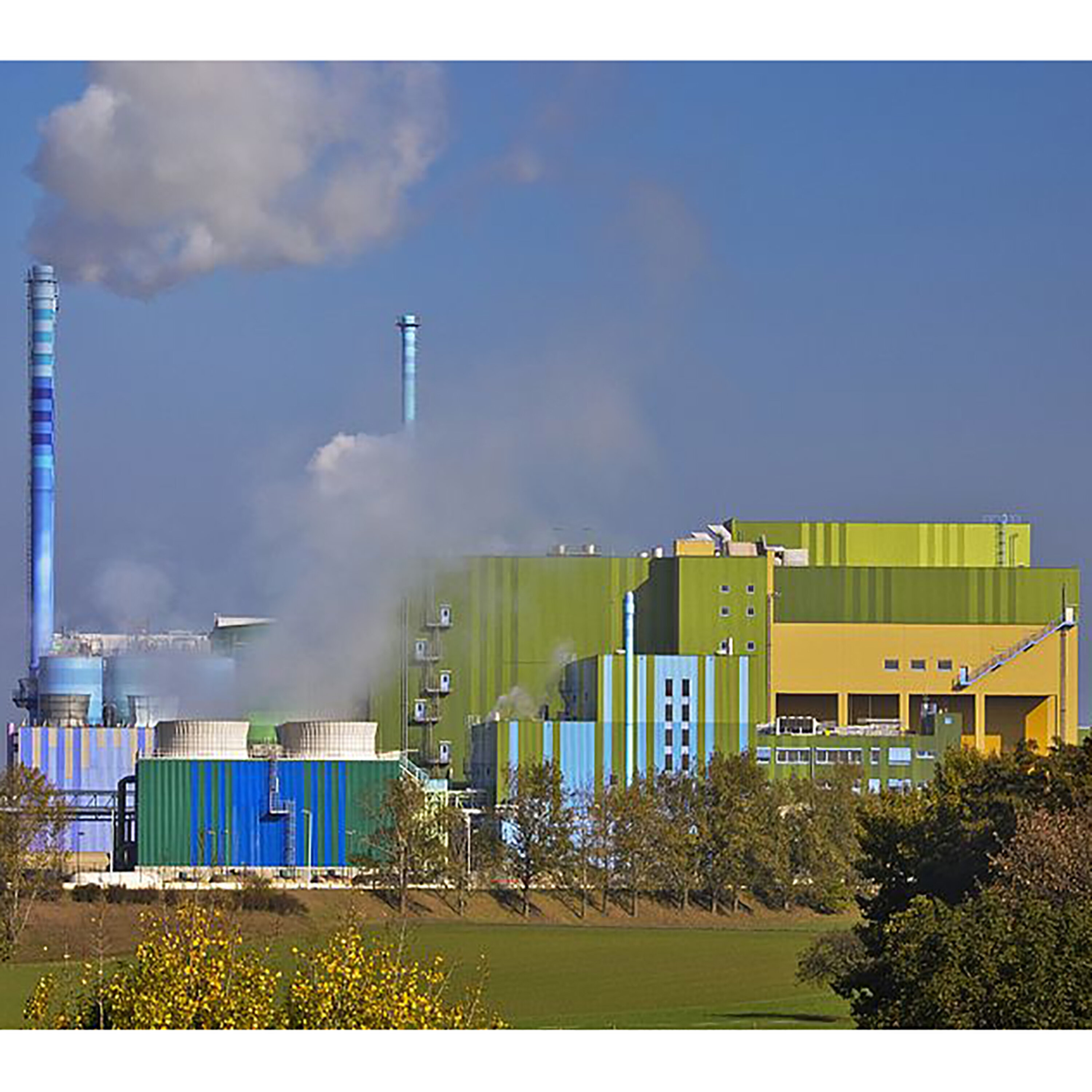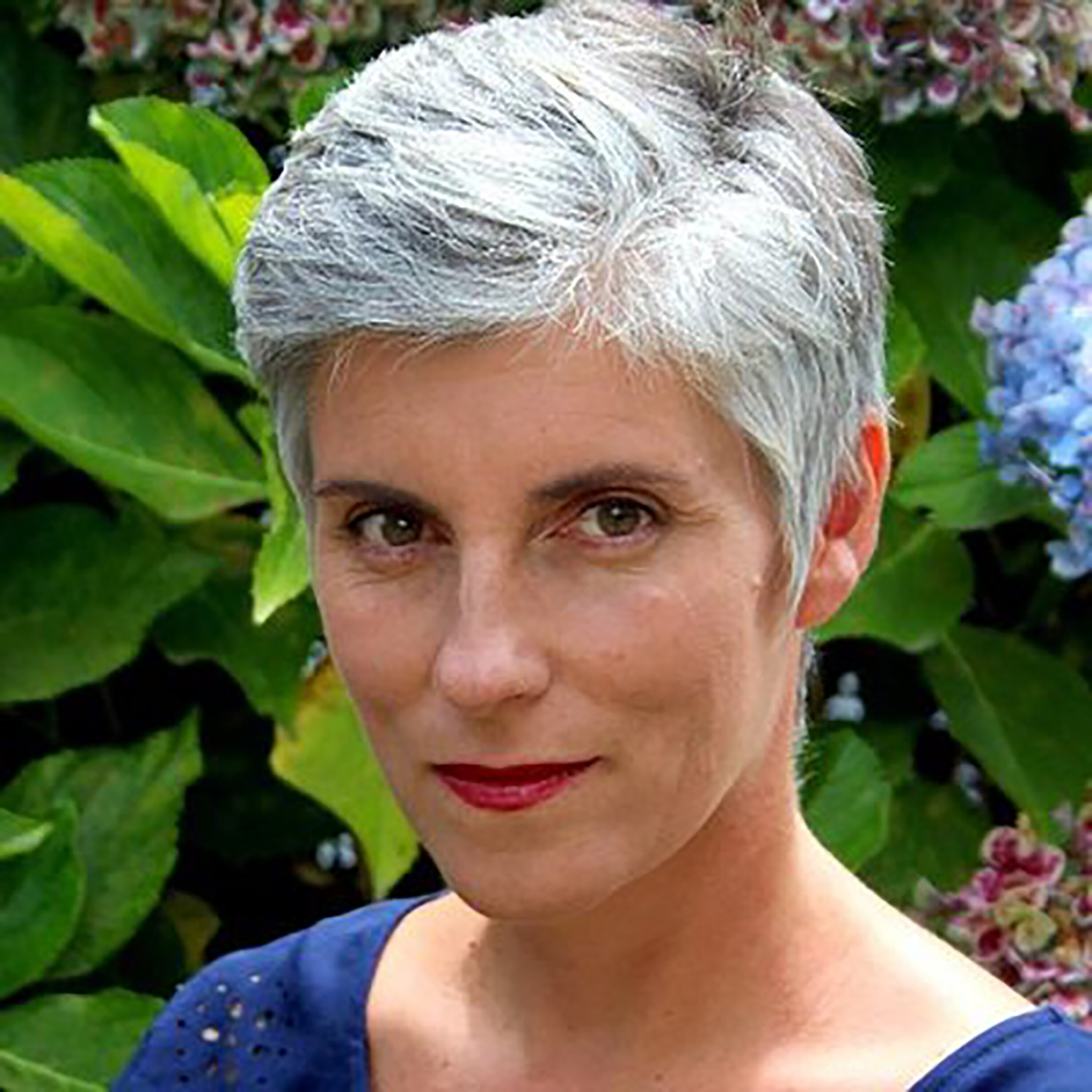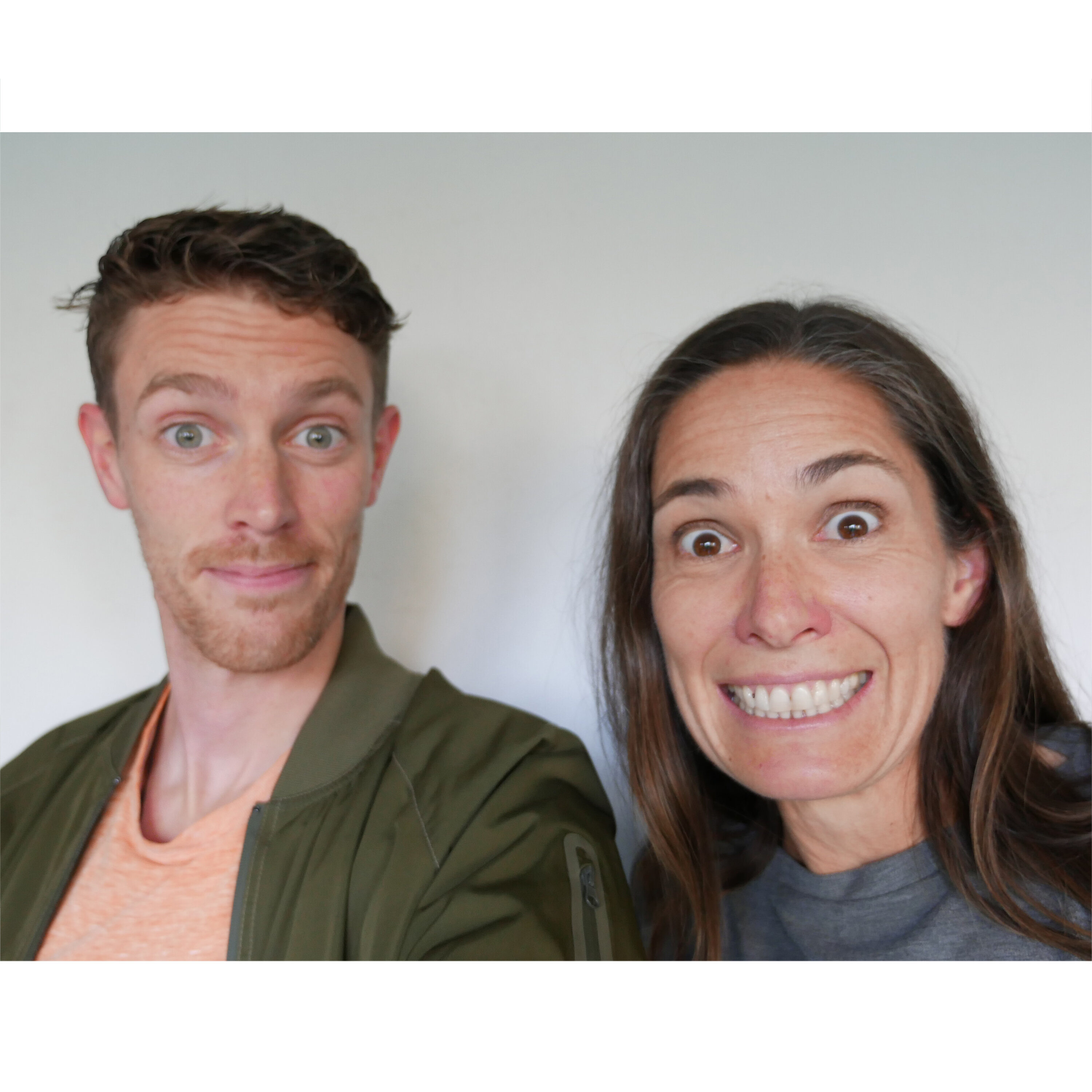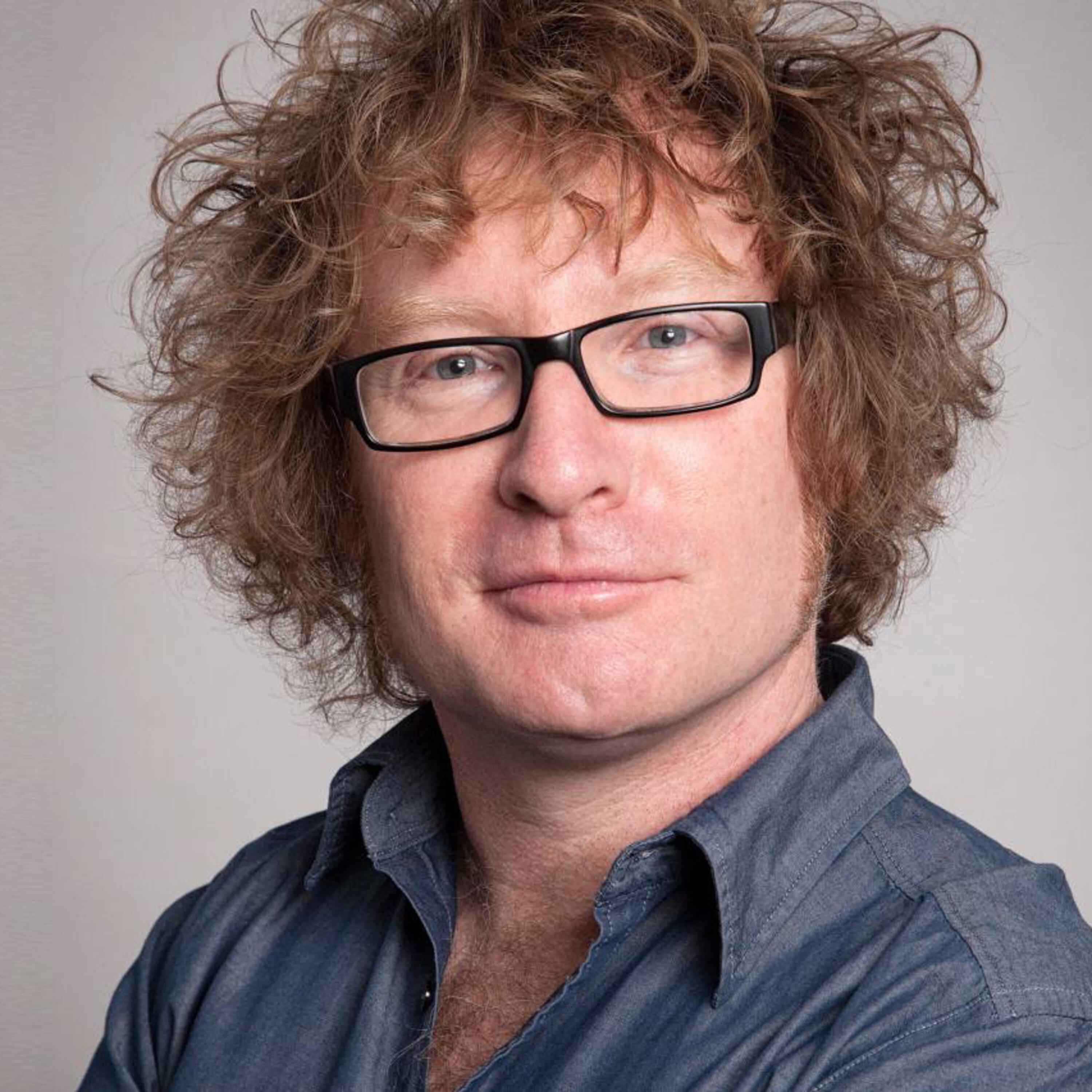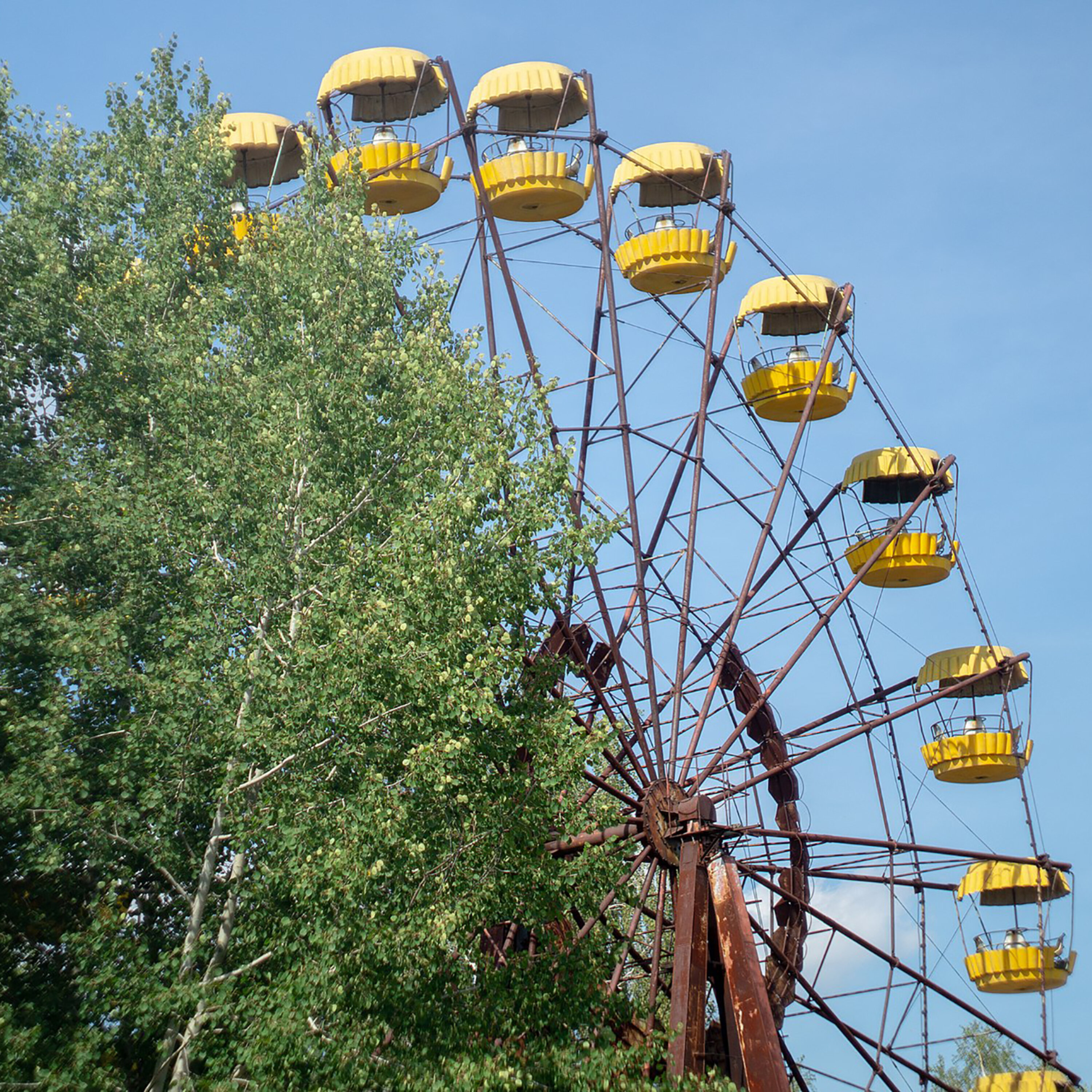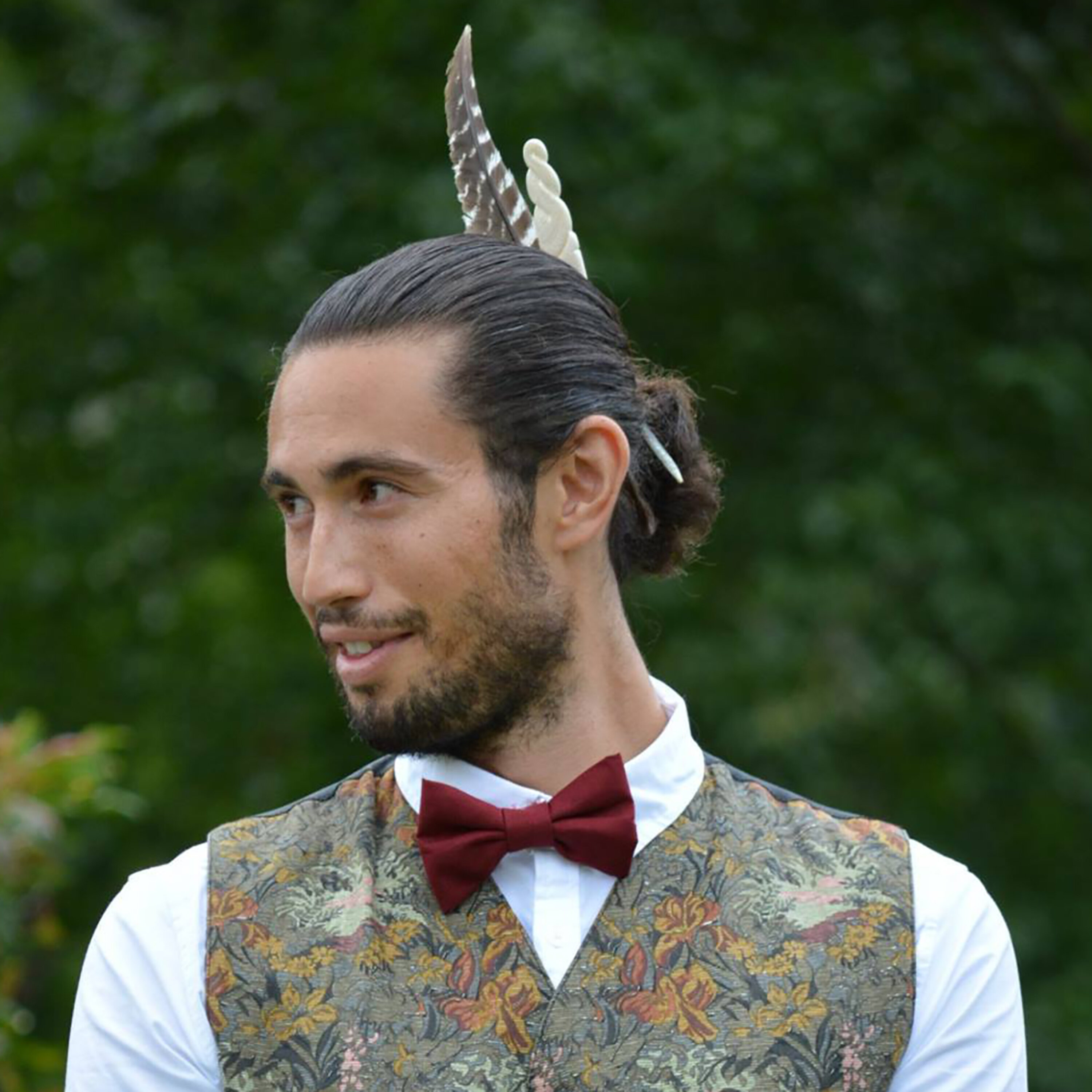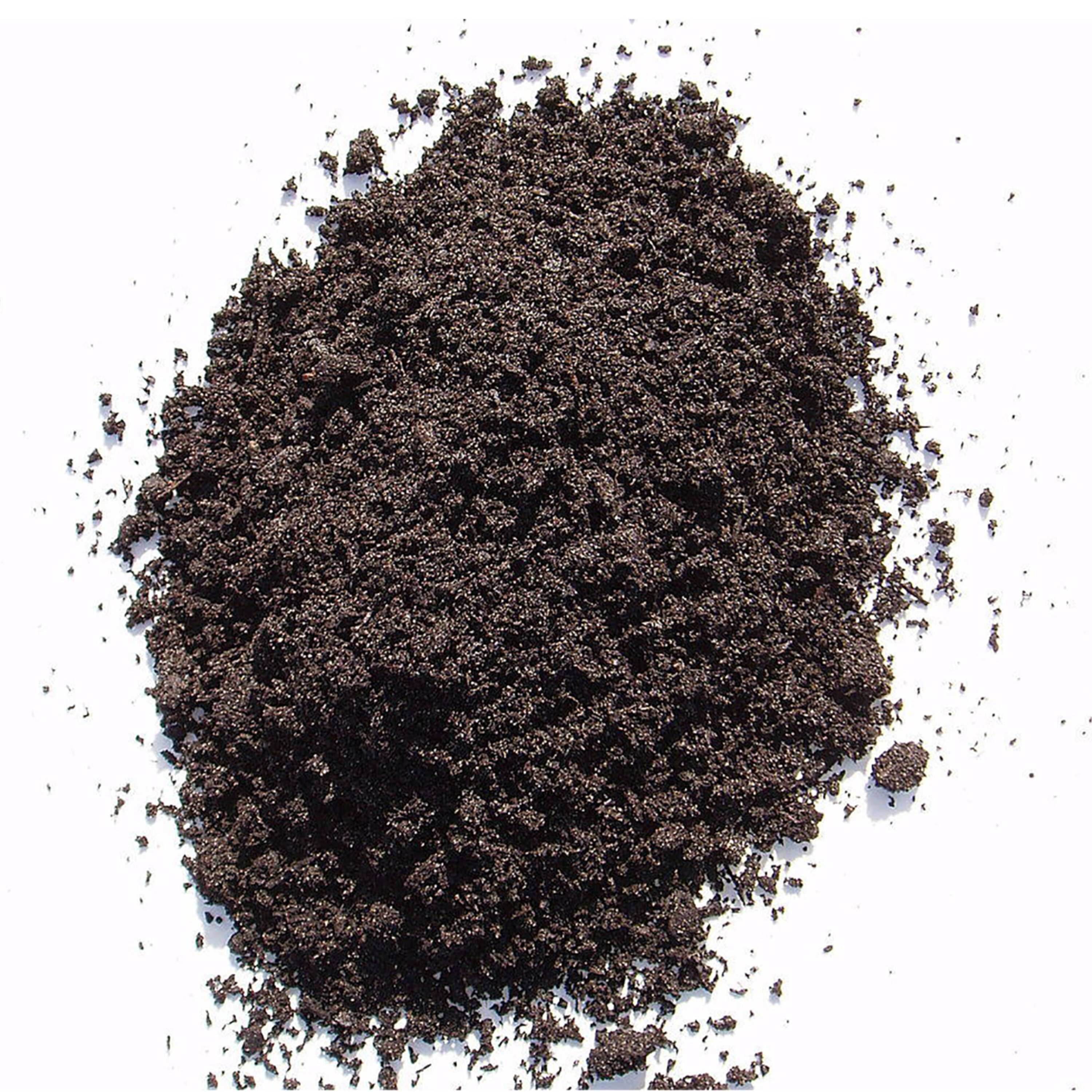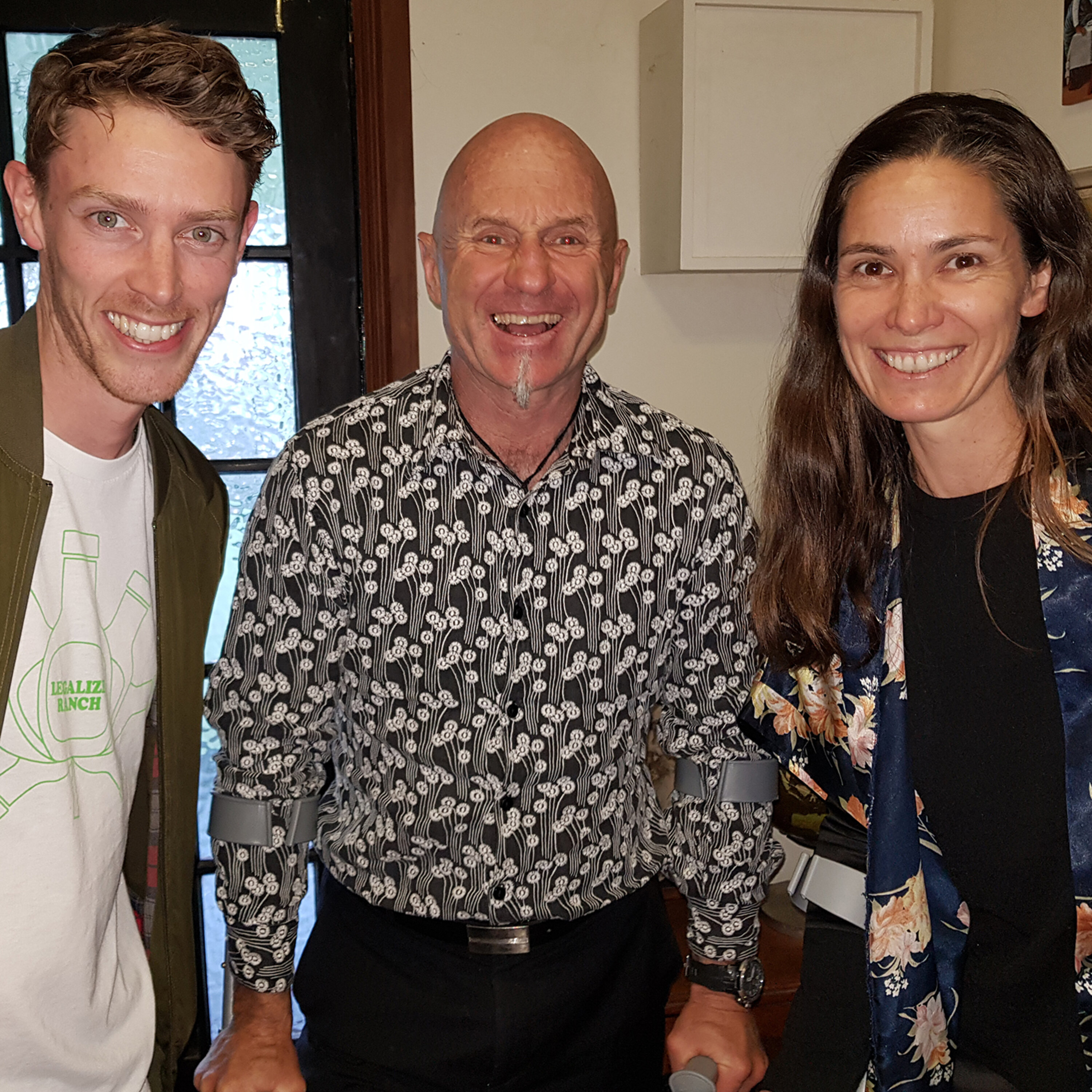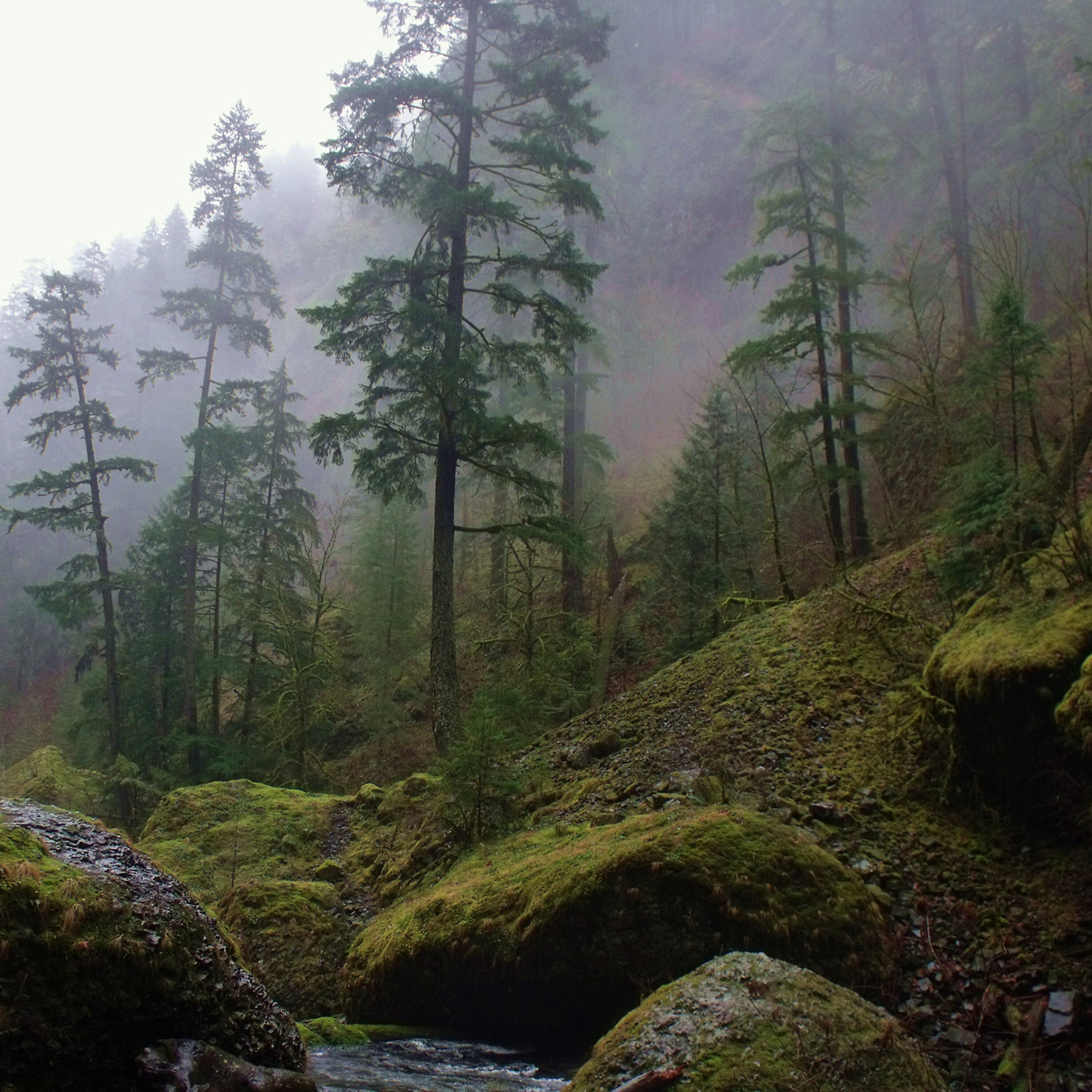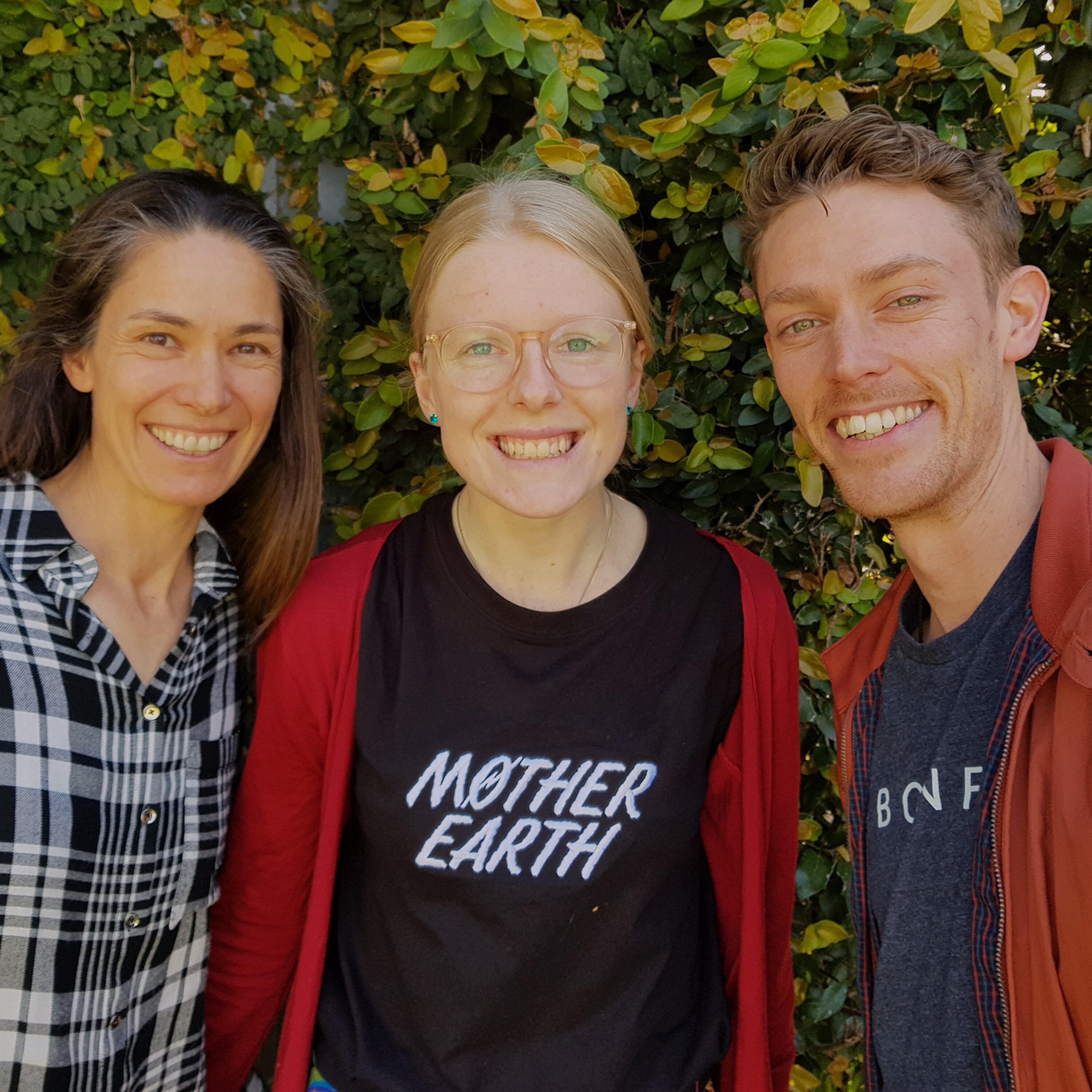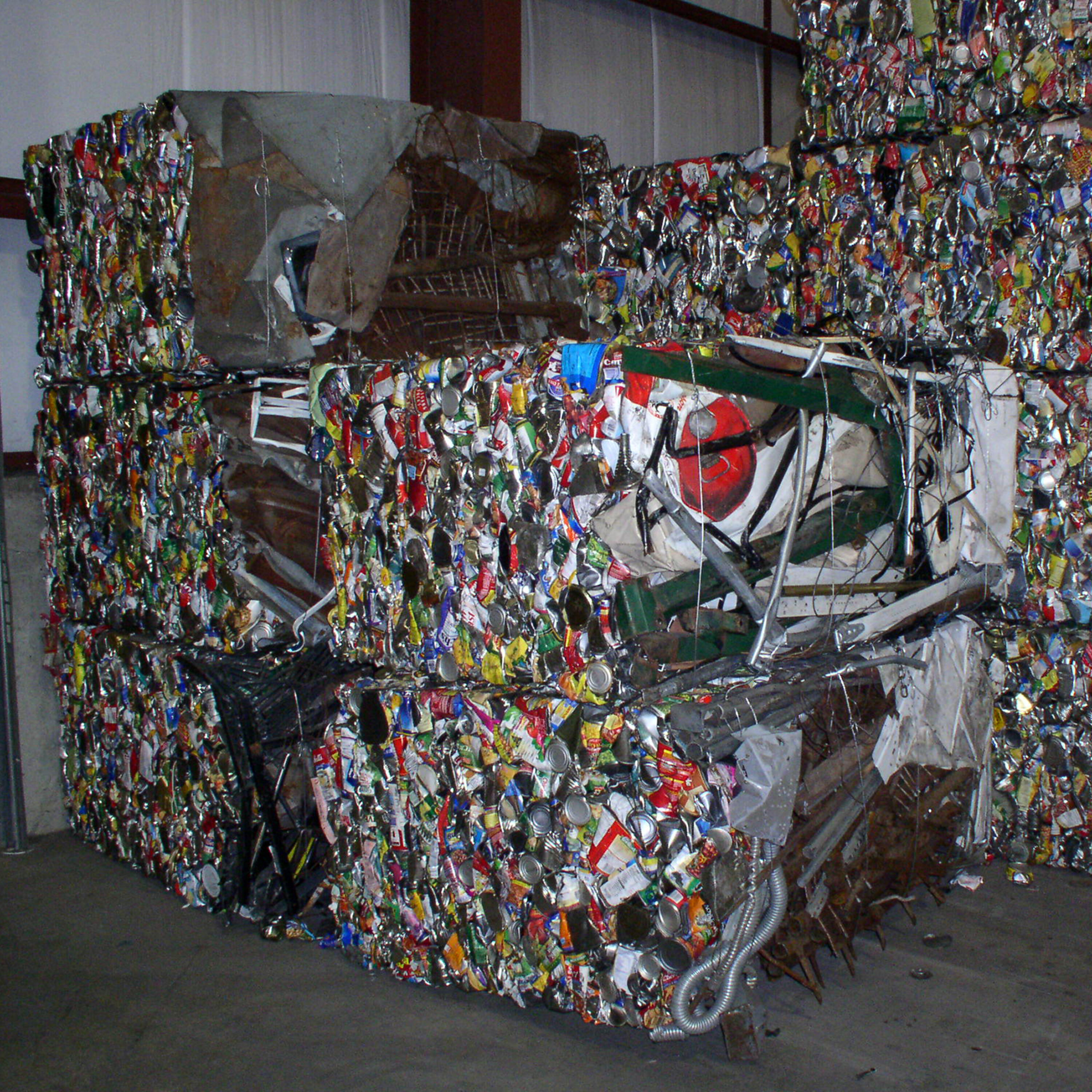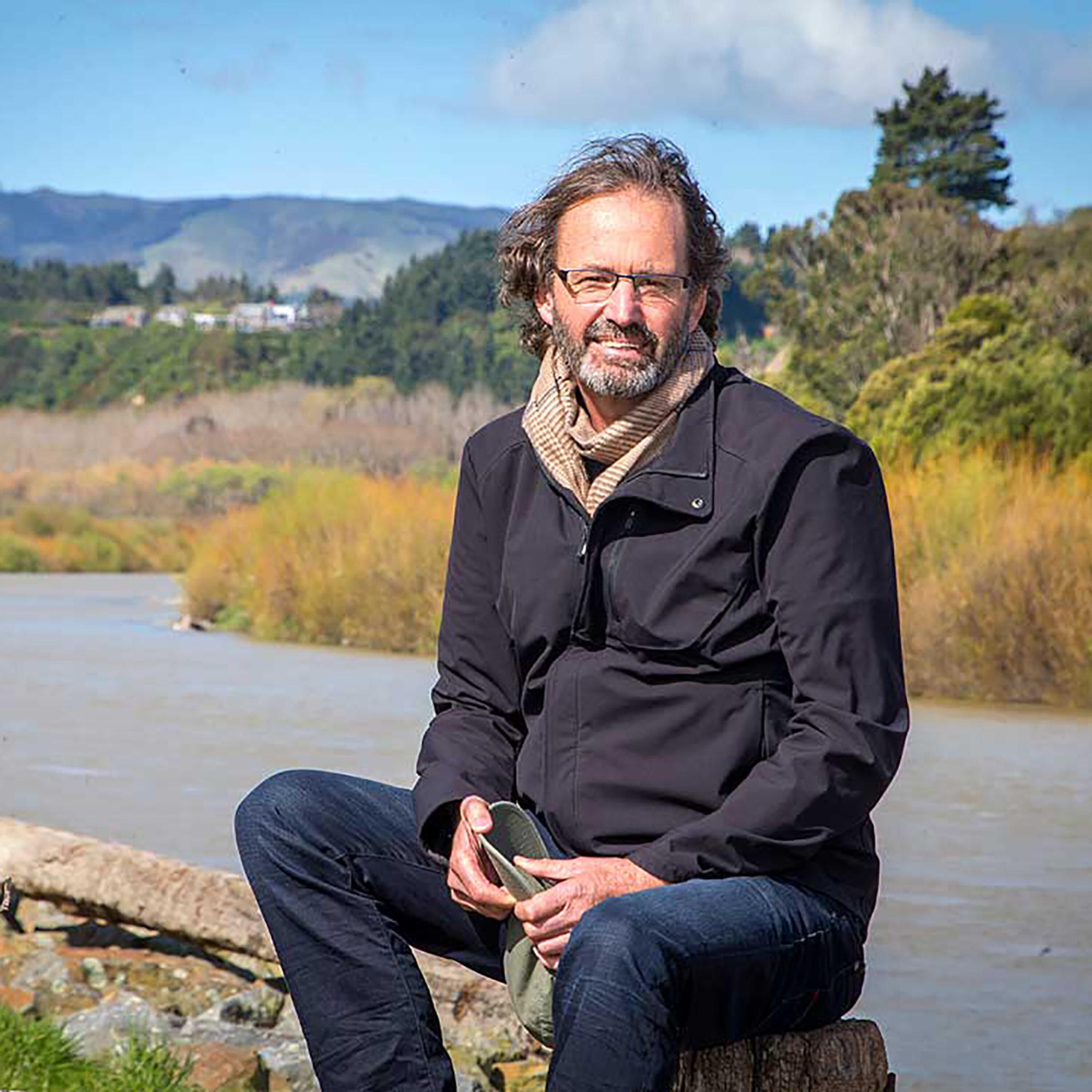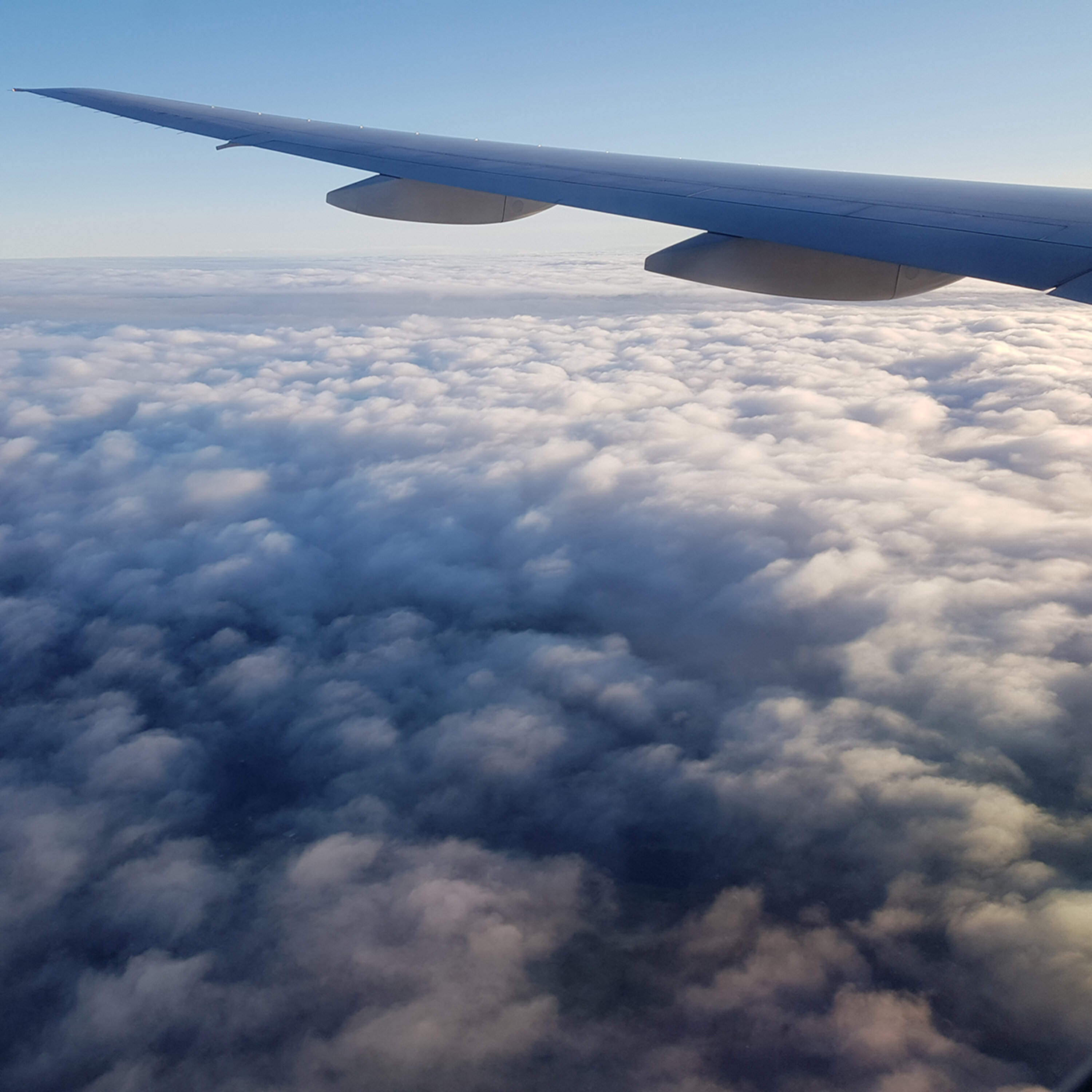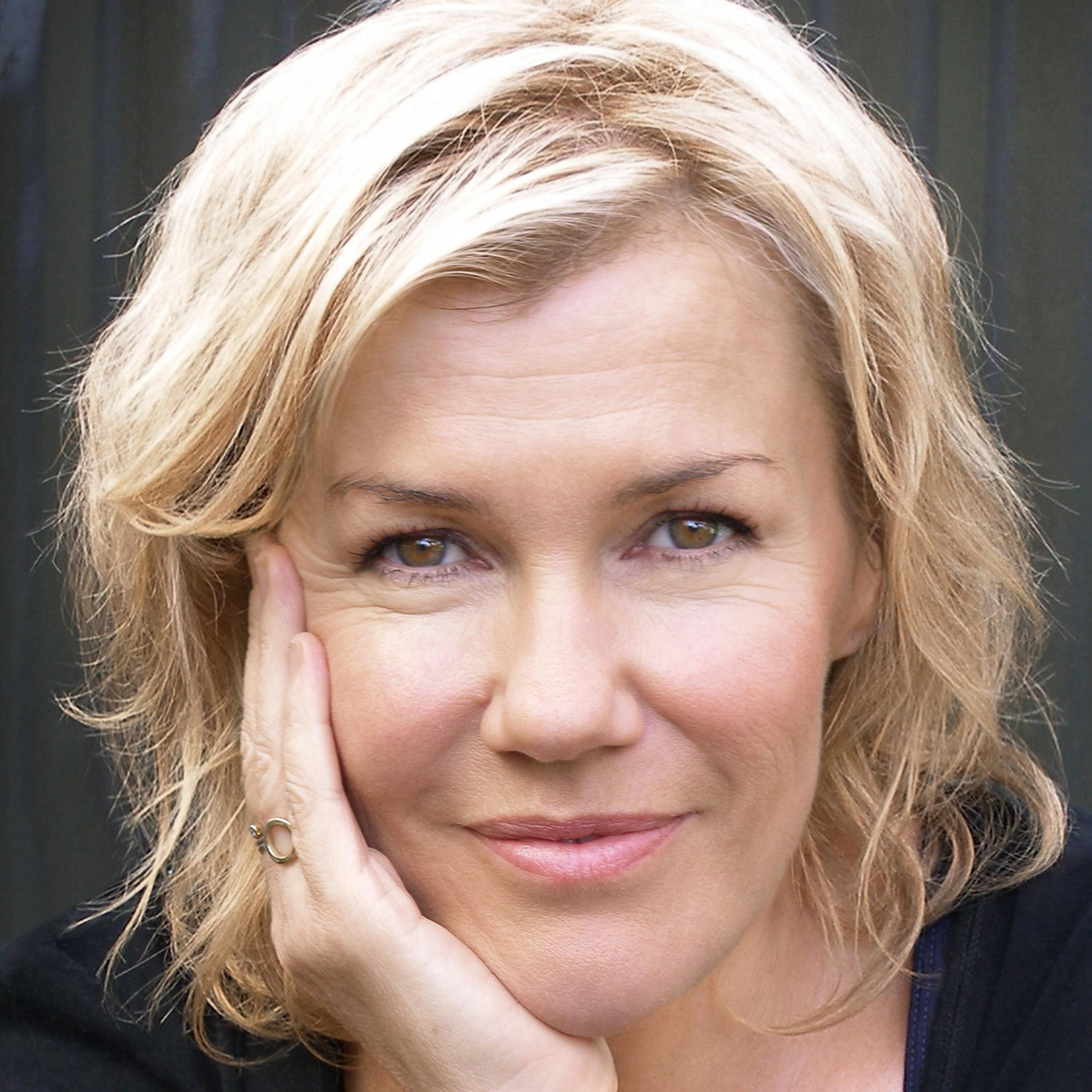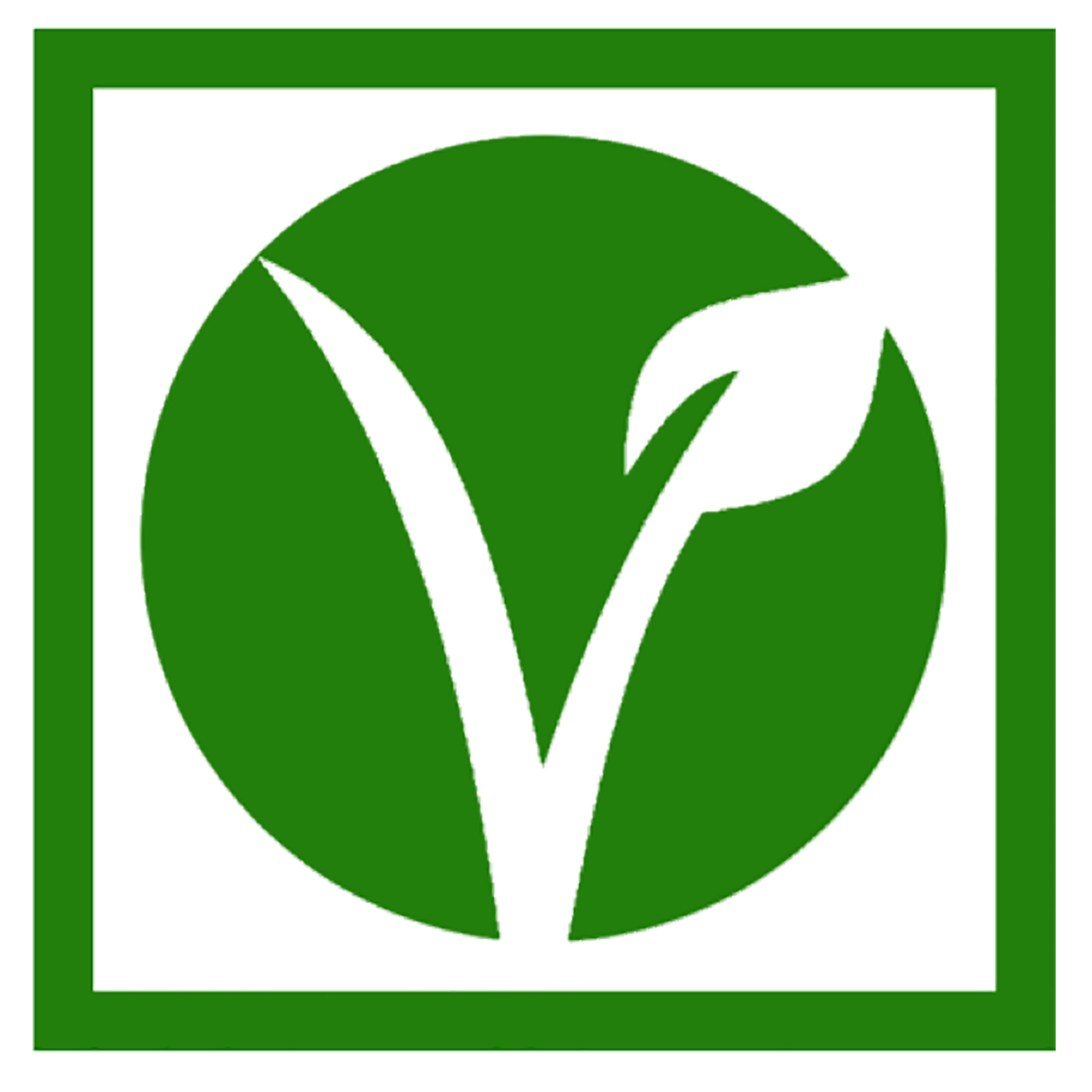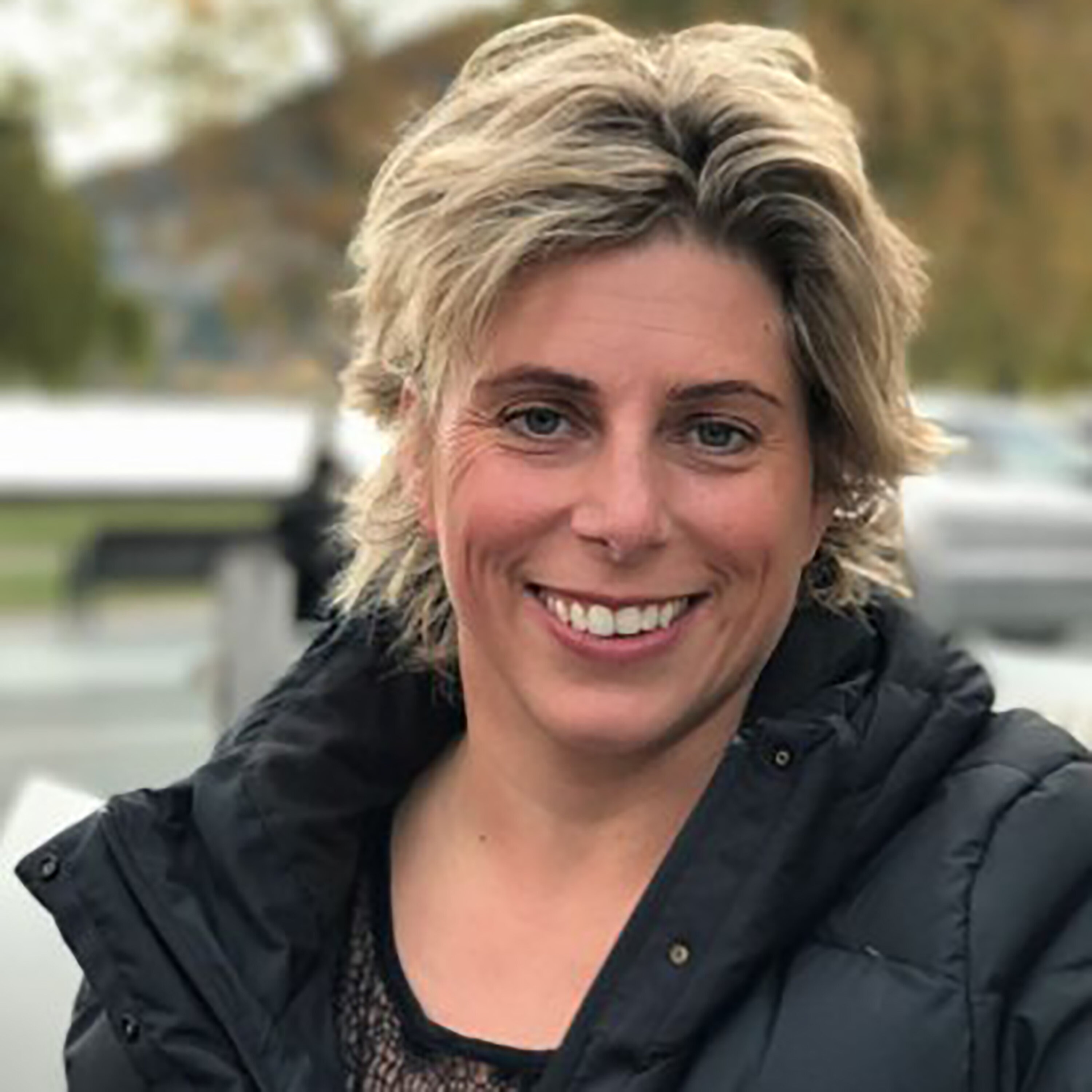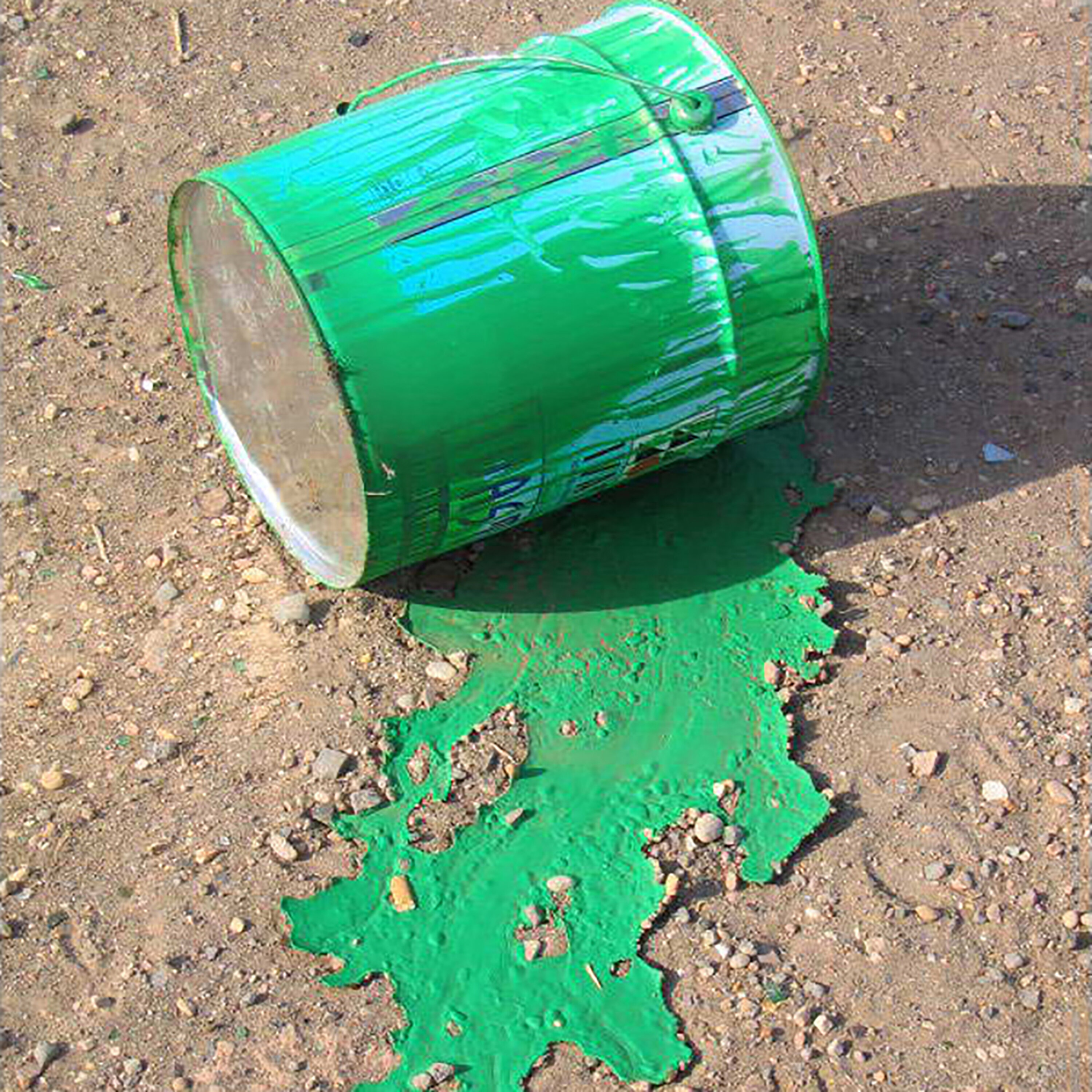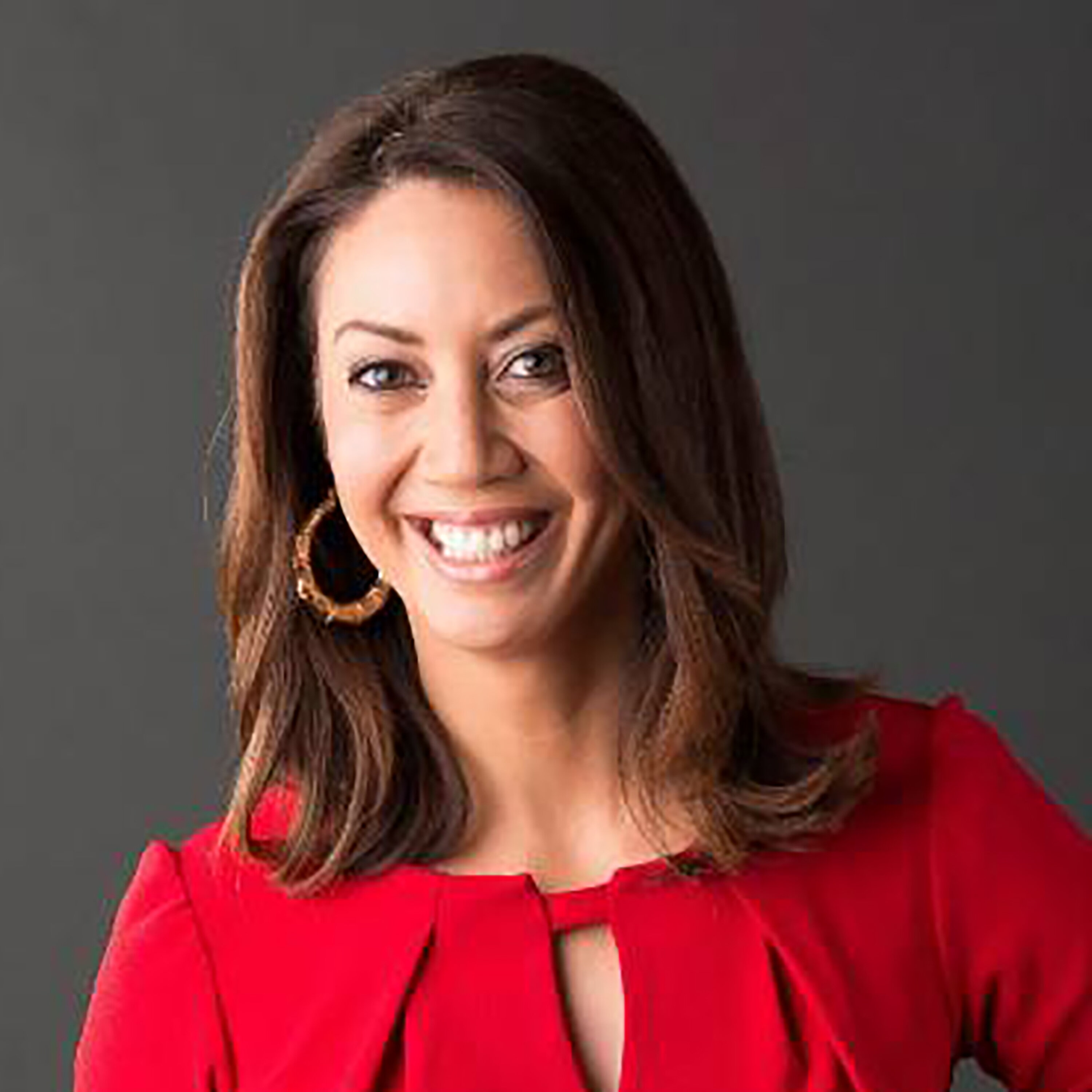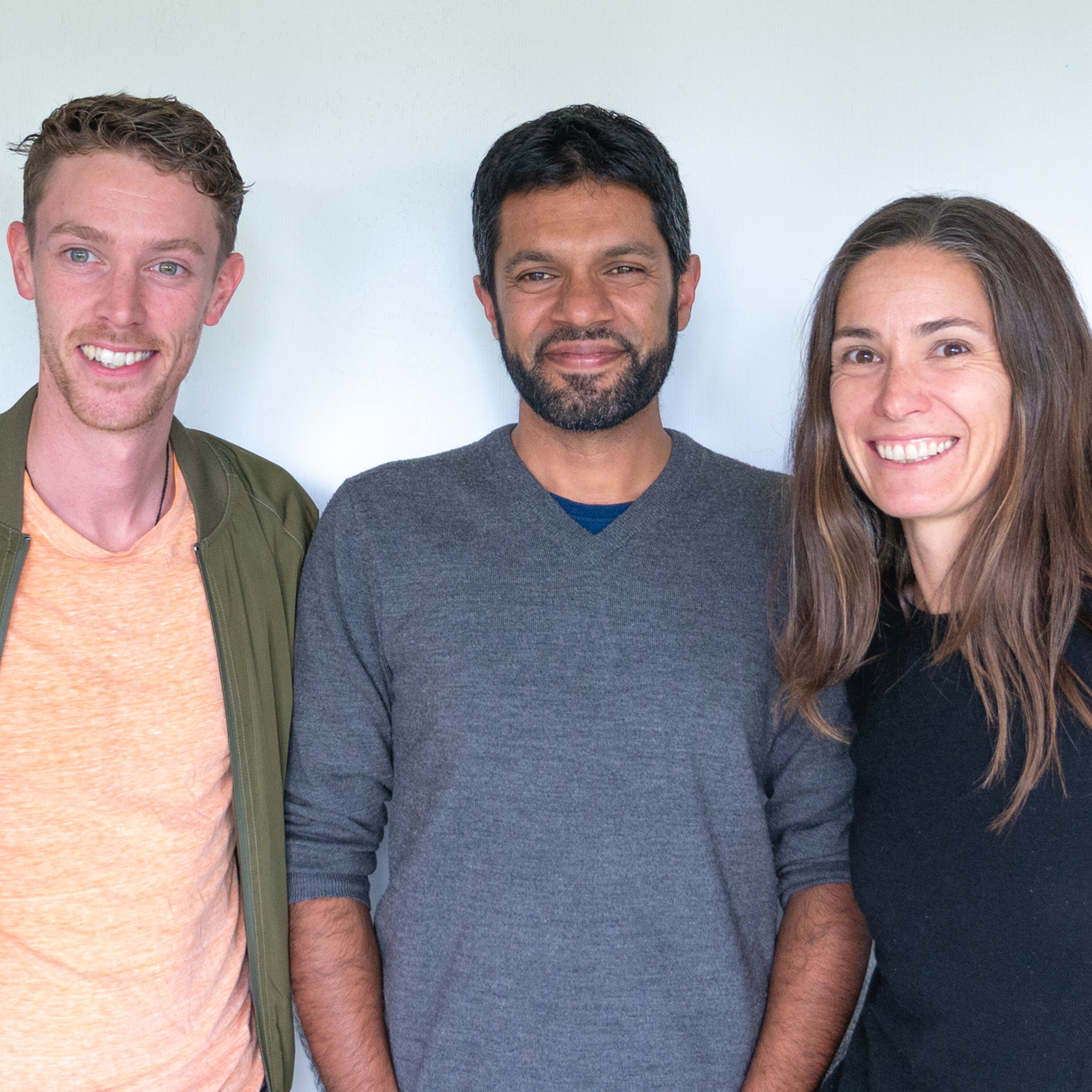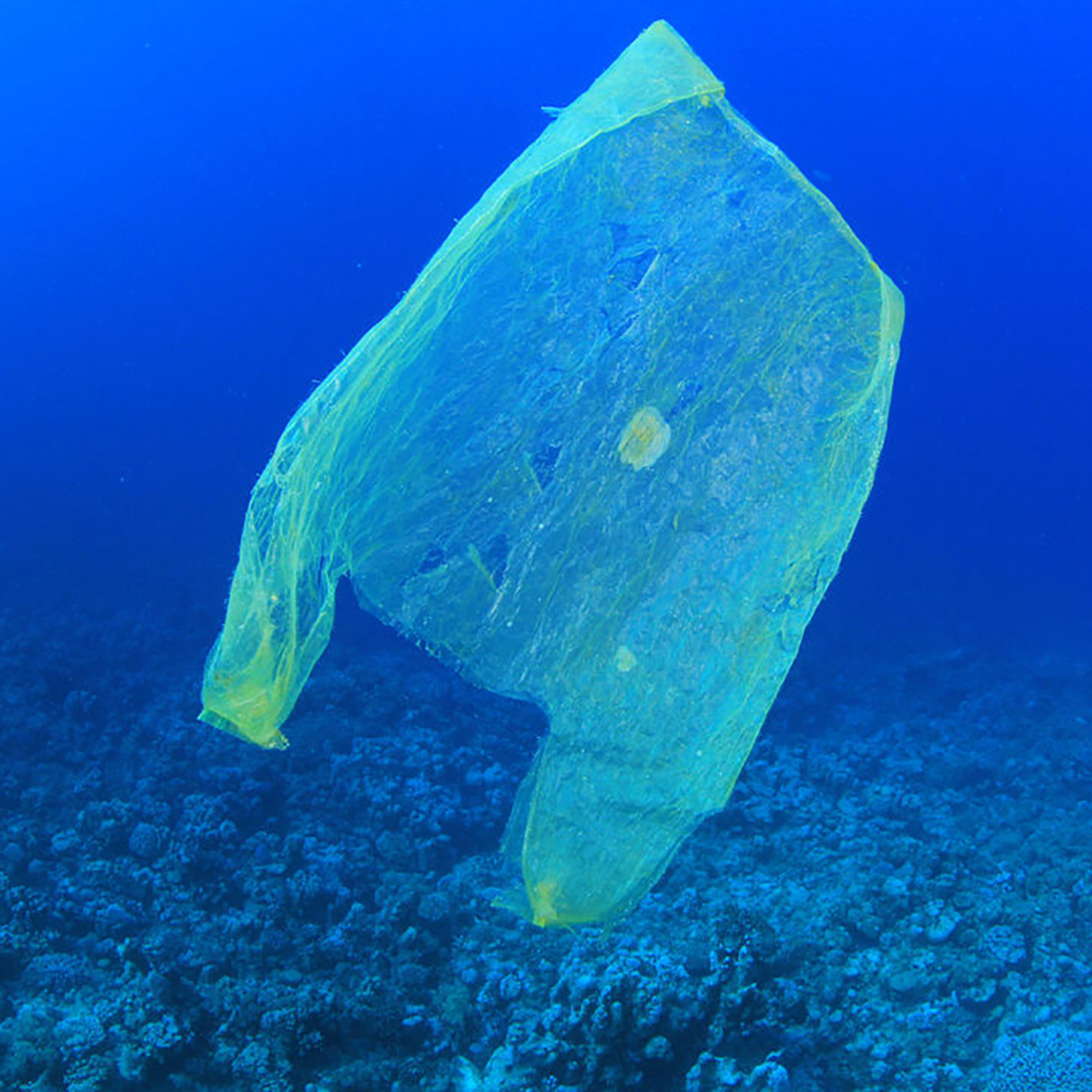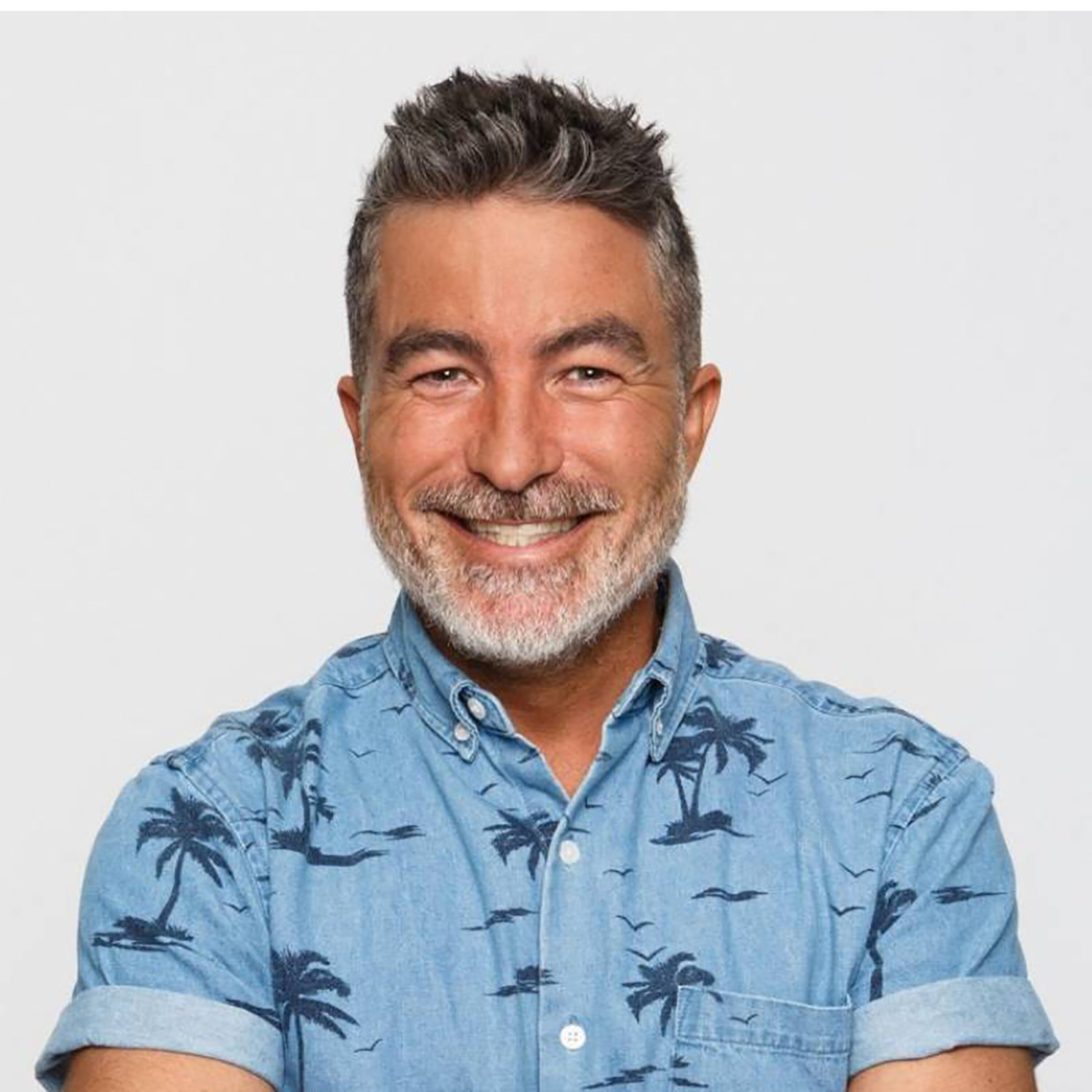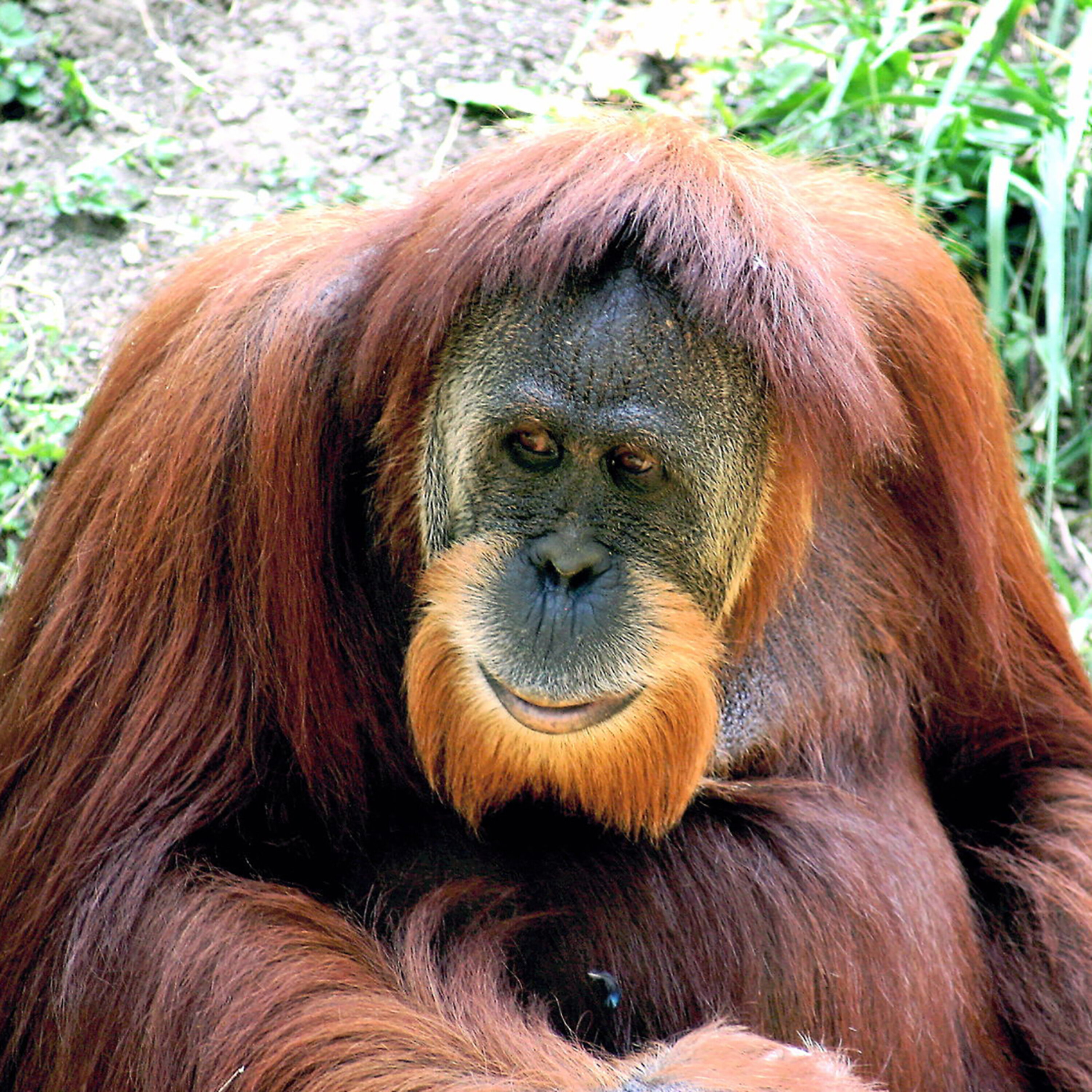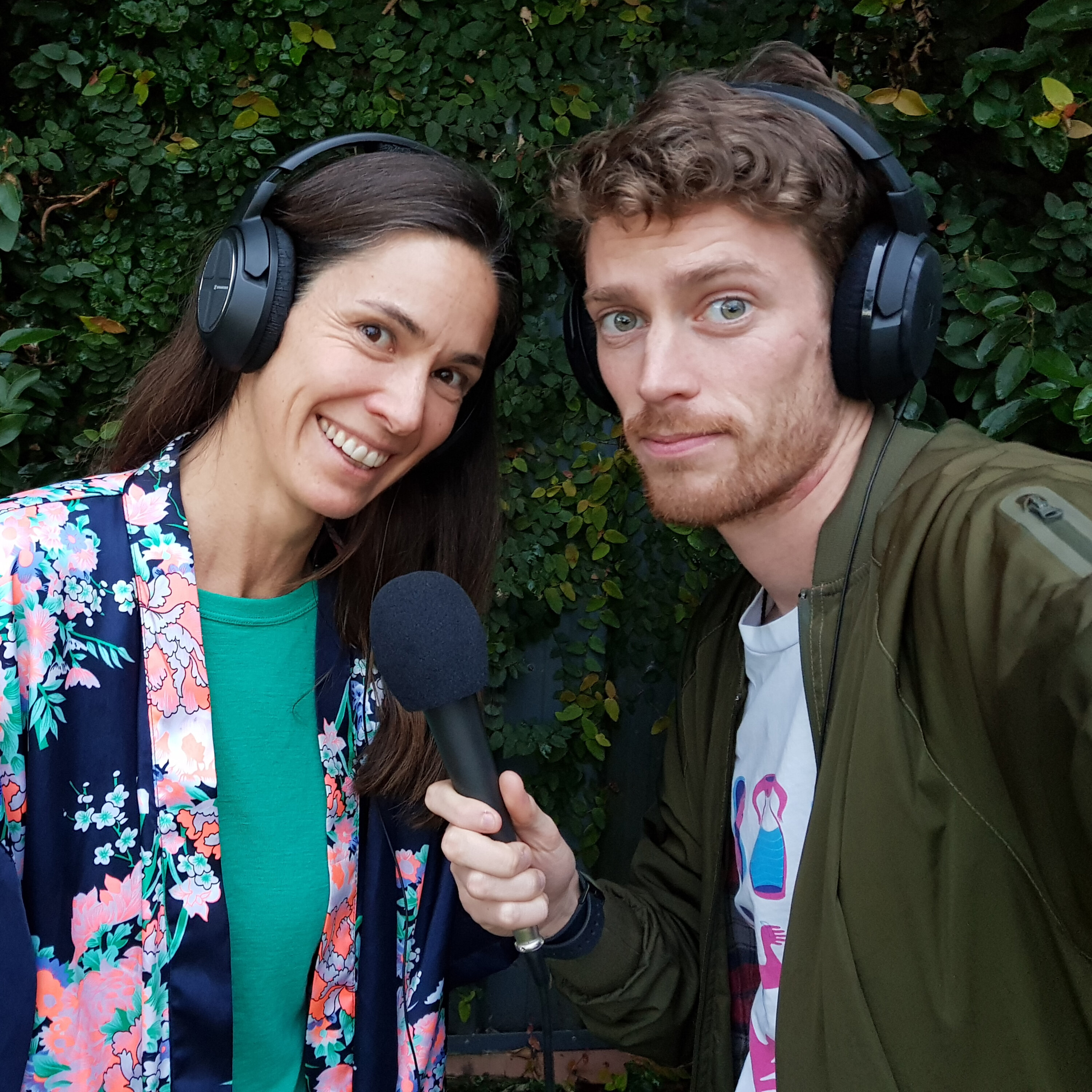How To Save The World Podcast
An environmental podcast that uses science, humour and suggestions on real world action you can take to make a positive contribution to help the planet. Hosted by Waveney Warth (an environmental advocate who went 100% waste-free for an entire year) and Tim Batt (a comedian who’s trying to learn and do better by the planet). We discuss everything from organic farming to Fairtrade, to renewable energy to greenwashing, aiming to inform and arm you with ways to help the environment.
Science 52 rész
See You Soon!
19 perc
52. rész
Please fill out our listener survey to help us improve the show and find out what you want to hear about (you'll also go in the draw to win a Prezzie Card!): https://forms.gle/xxgyFmzqviFD4NHL9
Waveney and Tim are taking a break after an entire year of weekly episodes before they come back with an even better podcast for you! We chat about the journey we've taken over the last year of episodes of How To Save The World. Tim's trying to reduce trips to the supermarket, ditching teabags, getting a compost going and going organic. Waveney talks about changing her buying behaviour toward clothing, learning a TON about soil and the lessons from lockdown. We compare favourite episodes, guests and topics.
How To Save The Bees
44 perc
51. rész
In this episode, Tim is joined by Margaret from Kiwimana Buzz and Jess from Bees Up Top to chat about how we save the bees!
Bees are an absolutely critical part of our environment and food chain but facing multiple pressures from human encroachment, industrial mono-culture food production and pesticide exposures, their numbers are in serious trouble.
Our top tips for helping the bees are planting a diverse range of flowers, herbs and spices in your garden (heritage, if possible) and avoid using pesticides. If you see swarming bees, google beekeepers in your area who'll be happy to help take them away. And consider putting a hive in your workplace or home! It's fun, helpful, educational and you'll get honey!
Kiwimana Buzz's website / Instagram / Facebook / Twitter / Podcast
Kiwimana are beekeepers who have bees located in the wild west coast of Auckland, New Zealand. We teach, we sell beekeeping supplies and provide information to help you keep honey bees.
Bees Up Top's website / Instagram / Facebook
Bees Up Top aims to increase New Zealand’s bee population by supplying healthy, happy hives to urban areas and to educate our future generation on the importance of keeping our little workers around.
Thanks to Auckland Council and Live Lightly for supporting this podcast!
NZ Sustainability Icons; Liam and Hannah
48 perc
50. rész
Giants of the sustainability movement in Aotearoa (and self-styled No-waste Nomads), Hannah Blumhardt and Liam Prince talk to Waveney about the connection of individual action to big change, what they were up to in lock-down, the origins of their (and Wave’s) journey into waste reduction and the demographics and often gendered nature of today’s sustainability culture.
You may know Hannah and Liam from their website TheRubbishTrip.co.nz or the TakeawayThrowaways.nz campaign, aiming to rid NZ of single-use coffee cups.
Resources and Links
TheRubbishTrip.co.nz
TakeawayThrowaways.nz - please sign now!
Regeneration not Incineration campaign - please sign now!
NZ Product Stewardship Council
The Kiwi Bottle Drive (to support the Government in forming a Deposit Return Scheme for single-use bottles)
Plastic Pollution Coalition
Charles Eisenstein’s book The More Beautiful World Our Hearts Know Is Possible
Good News #6; Super Bees and MOAR (renewable) POWER
31 perc
49. rész
Waveney and Tim have some sustainability good news from over the world, including;
A reduction in stresses on the environment during COVID-19 lockdowns, plus bike sales are way up, Amsterdam is trialing using Kate Raworth's Donut Model of economics for policy-making and investors flocking to green energy as a save-haven through these troubling economic waters.
Planet-based meat is having a meteoric rise in popularity. USA sales are up almost 300% since March this year and people are normalising the new products as part of their daily diets.
Bubble bees know how to stimulate plant flowering and a research team in Zurich are the first scientists to observe this incredible abee-ility (sorry). It shows bees are more able than we knew to change their environments to help them survive and flourish.
Renewable energy is on the up. The Guardian reports that “Renewable sources made up 72% of new energy added in 2019”, meaning a third of the world's energy is now generated from renewable sources.
An increasing number of countries are recognising legal rights for nature. Starting with Ecuador in 2008, and followed by New Zealand and Columbia in 2017 - there is an increasing groundswell of support to protect nature in our courts.
A project to build our planet's eighth largest solar array has just been approved by the US government and will be built in Las Vegas. It'll supply enough power for 260,000 homes and will be the largest solar farm in America when it's completed next year.
Thanks to Auckland Council and Live Lightly for supporting this podcast!
Earning A Sustainable Living
47 perc
48. rész
We got a listener question from Jules, asking us ‘what careers or tertiary education choices can kids focus on with the view to aiding positive climate change action?’ Great question! In this episode we talk about what constitutes a ‘sustainable’ or ‘green’ job, discuss the automation threat (and opportunity) and chat about the circular economy.
Jobs you do with your hands are pretty safe for the immediate future - That includes permaculture, earth-building, conservation, waste-to-resource jobs and traditional tradie jobs. Also careers that involve so-called Left-side brain skills, such as people management and creative problem-solving. There’s also entirely new fields inside of STEM opening up for future and present technologies, including hardware and software.
We also discuss eco-friendly side hustles to supplement your income, career and training paths. We’ve even found free online aptitude tests to help start you thinking about what you may be best suited for.
Sources
World Economic Forum’s 2017 Future of Work report
Foundation for Young Australians’ New Work Order report (PDF)
NZ Productivity Commission’s 2020 report: Technological Change and The Future of Work (PDF)
Global Strategic Trends - The Future Starts Here video
Picking a career
Do What You Are book (Amazon link)
Free Career Tests
Green jobs list (UK)
Green jobs list (Australia)
Fastest growing green jobs
Jobs in electric vehicles (USA)
Job Vacancy Websites
Global Environment Jobs / USA Green Jobs / UK Green Jobs / Canada Good Work / Australia Green Jobs / NZ conservation jobs / Do Good Jobs NZ
Training
Resource Recovery Training from the Zero Waste Network
Permaculture Design Certificate
Circular Economy
Circular Economy Resources (from Sustainable Business Network (SBN), New Zealand)
What is a circular economy? (SBN)
Emerging jobs in the circular economy (Greenbiz)
3 essential elements for future circular jobs (Greenbiz)
Thanks to Auckland Council and Live Lightly for supporting this podcast!
How To: Home Winter Garden
47 perc
47. rész
Welcome to the absolute rock bottom beginner guide to gardening. This episode is for you if you expect it to take about 5 minutes a day to garden, don’t compost properly, don’t particularly love the idea of gardening, and think you can put a seedling in an abandoned old garden bed and it will have everything it needs.
We asked 20 of New Zealand’s top gardeners from around the country to share the very best of their advice.
Top suggestions on what to plant going into winter.
Leafy greens (e.g. Silver beet, kale, spinach, winter lettuce pak choi, rocket)
Broad beans
Parsley
Herbs
Garlic chives
Spring Onions
Choko (didn’t say on the episode but well worth checking out – its grows like an out of control weed, so perfect for a beginner gardener – follow advice from rediscover.co.nz:
https://rediscover.co.nz/oh-the-places-youll-grow-choko/
How to beat slugs and snails
Healthy mature plants can beat slugs (learn how to sheet mulch and compost)
Number one tool is picking off at night with a torch
Make a beer trap from a 4cm high saucer sunk into the soil, clean and refill weekly if populations are high.
More tips here: https://rediscover.co.nz/natural-ways-to-deter-slugs-snails/
Recommended resources for beginner gardeners, in New Zealand.
Kiwi’s first
What to grow in winter by NZ region from edible backyard: https://www.ediblebackyard.co.nz/what-to-plant-in-your-vegie-patch-in-winter/
Buy trusted organic sprays, or let the experts come to you:
https://biologix.myshopify.com/ make your way to the Home Garden page.
www.growinspired.co.nz
Read
How to Grow Your Own Food (Real BOOK, $25. Hamilton-based)
Connect
Organic Edible Garden Sign up to the newsletter here and connect on Facebook here.
Taranaki based Farm Next Door, sign up to their newsletter coming soon.
Best of The Rest
Square Foot Gardening (USA). Good overview of the method from this Australian site.
Eliot Coleman's book, 4 Season Harvest. Works well for South Island (Maine, USA)
Anything by Charles Dowding on Youtube. Somerset UK. Excellent videos. “His method is the easiest I've see anywhere - and with great results!”
Thank you to the gurus, market gardeners, educators and communicators who gave their time. Here they are with links to any helpful projects they are involved with – heaps of great resources:
Sophia Xiao-Colley, organic market gardener
Caity Endt, organic market gardener
Judy Keats, Compost Collective
Te Radar, broadcaster and comedian
Therese Mangos, Pacific Vision Aotearoa,
and @pacificvisionaotearoa
Richard Main, Gardens4Health
Permaculture guru’s Betsy Kettle and Trish Allen.
Lynda Hallinan
Carl Freeman
Estella Lee, Chinese Conservation Trust
Sally, Waimarama Community Garden
Team from Organic Edible Garden
Thanks to Auckland Council and Live Lightly for supporting this podcast!
Better Futures w/ Shane Ward
39 perc
46. rész
We chat to Shane Ward about the recently launched Better Futures Forum (BFF),
the hot new platform where New Zealanders are meeting to facilitate the transition towards a more resilient Aotearoa. BFF is seizing the transformational power of COVID-19. In just three weeks since it launched, the organization, co-founded by Dr Mike Joy, has received tremendous support with a groundswell of people joining them. They have a focus on six key areas: Land and Water; Infrastructure; Transport; Building and Housing; Energy; and Economy, and are encouraging any interested New Zealanders to join them.
We also chat to Shane (international regenerative-agriculture design-consultant, speaker, teacher, writer and founder of Action Ecology) about his vision for NZ's future and get him to explain the powerful impact of regenerative agriculture.
Check out Shane's recent lecture at Victoria University here.
Hear more from Dr Mike Joy in a previous How To Save the World episode ‘Saving Our Waterways with Dr Mike Joy.
Thanks to Auckland Council and Live Lightly for supporting this podcast!
Sea Life w/ Clarke Gayford
38 perc
45. rész
Clarke Gayford (Fish of The Day host and partner of NZ PM Jacinda Ardern) joins us to talk about the haunting sound of his morning alarm, being an Ambassador for NatGeo’s Planet or Plastic and his obsession with the ocean. Growing up in Gisborne and falling in love with fishing, Clarke has spent his professional life travelling the world and connecting locally with NZ’s fishing community for his TV show Fish of The Day. He discusses their connection with the environment and the dynamic moves they’re making to fish more sustainably in NZ.
We also talk about the power of writing letters to the Prime Minister’s office, an amazing surfer in Malaysia who’s turning beach rubbish into a material that’s saving depleted coral and a hero of his, Sir David Attenborough.
Resources and Links
NatGeo’s Planet or Plastic campaign
NZ Bird and Fish: Best Fish Guide [warning: PDF]
Mike Bhana’s work
Sustainable Coastlines
Love Your Coastline NZ
David Attenborough’s narrated memoir ‘Life On Air’
Thanks to Auckland Council and Live Lightly for supporting this podcast!
The Youth Movement w/ Luke Wijohn (Green Party politician)
45 perc
44. rész
Luke Wijohn is just 18 years old and running for Parliament - In the Prime Minister's Electorate, no less. After being a lead organiser for NZ's Youth Strikes for Climate, Luke decided to run as a Green MP in this year's election. We chat about his desire to change the conversation we're having with and about our farmers and how to achieve transformational change in city systems like waste and transport.
Luke has a focus on getting politicians speaking to issues they have lived experience about and trying to increase youth turnout at the election this year (he's a staunch supporter of making 16 the voting age and lays out a pretty compelling case for it). We also chat about The Zero Carbon Bill and what the media gets wrong about political reporting in our MMP system.
Follow Luke on Twitter here and on Facebook here.
Thanks to Auckland Council and Live Lightly for supporting this podcast!
Microplastics; A hidden disaster
39 perc
43. rész
A lot of the information in today’s episode comes from Waste MINZ fantastic webinar on microplastics delivered by Dr Grant Northcott and Dr Olga Pantos. Check out the webinar here.
This episode, we’re discussing microplastics - What they are, why they’re bad and what can we do about them.
Plastic does not biodegrade, it breaks down, fragmented by wind, waves and sunlight into ever-smaller pieces. Microplastic is plastic fragments less than 5 mm in size. They do a number of nasty things, including absorbing pesticides, hydrocarbons and heavy metals. They also leach bad stuff into the environment. On average, we consume a credit card a week in microplastics. Scientists have recently found out that we have massively underestimated the amount of microplastic in the environment, sadly it’s found everywhere on earth.
Solutions; Use less plastic. Use less everything. Go clear, if you must use plastic. Get involved with collective action by signing your name at YourPlasticDiet.org
Thanks to Auckland Council and Live Lightly for supporting this podcast!
How To Compost Right w/ Leo Murray: The Worm Guy
52 perc
42. rész
Composting; It's the easiest way to dramatically cut down the waste you send to landfill AND supercharge your garden but we wanted to make sure we were doing it right so we invited Leo Murray, founder and director of WhyWaste - the company that hires out worm farms to homes and businesses to eat through your food waste.
In this episode we find out that biowaste (which could go to compost) accounts for more than half of the total volume of waste going to landfill from our homes (for society at large, it's about a third). This has a hugely detrimental effect on the environment at large and is completely avoidable. We discuss the timely concept of using food waste (and worms) to produce your own fertilizer for growing food in your back garden and the importance of community resilience. We also talk about the concept of product stewardship (or kaitiaki) and Leo's parties with a purpose; Regenerate!
Thanks to Auckland Council and Live Lightly for supporting this podcast!
Laundry
44 perc
41. rész
PLEASE NOTE: This episode was recorded before things escalated regarding COVID-19. Please follow the health and hyguine advice of your local government, and/or WHO
As an addendum to our episode on cleaning products, this week Wave is focusing on keeping your clothes clean while keeping the planet happy.
Laundry Detergent Solutions
Soap nuts, kiwis can buy them at Ecoware house or grow your own tree.
You can check out Green Goddess' Laundry Powder DIY Kit or products at Ecostore.
Stain Removal
Check out Ethique's Solid Laundry and Stain Remover Bar – no plastic, no palm oil.
General tips on stain removal are available here and here's a useful super infographic.
Most eco-friendly bleaches contain Sodium Percarbonate, because it's way better for the environment than regular bleach. However Wave still has reservations and try and live without it. Here is the Safety Data Sheet for Sodium Percarbonate [warning: PDF].
Bluing Powder takes the yellowing out of sheets. We love it. Kiwis can grab it from Green Goddess
Outsmart Green Washing
Words like Natural or Biodegradable don’t mean they are good for the environment
I take it as a warning sign if companies haven’t listed, (or plainly listed) their ingredients. Take a moment to think about what they are silent on.
Watch out for SLS’s: Sodium Lauryl Sulphate, Sodium Lauryl Ether Sulphate. These are super common nasties because they are cheap and they work.
You can also wade through EcoStores ingredients index. It’s the best we’ve seen for summarizing health and safety information on common household chemicals. Its alphabetical, non searchable but thorough, and based on independent industry findings.
Google the product you would like to check + Safety Data Sheet (SDS) to find the low down. If you can’t find an SDS (assuming you are a competent Googler) it probably means the product doesn’t need one, which is good – only hazardous substances (a lot cleaners in the supermarket) need them.
STAIN REMOVAL
FOOD and WINE STAINS:
Club Soda & Salt (sit overnight and then wash regularly.).
Vinegar (Soak then wash as normal)
White Wine on RED wine
SWEAT AND YELLOWING STAINS:
Lemon Juice & Salt
Baking Soda (Make a paste Let sit for an hour)
Aspirin (Crush and mix with warm water until a paste forms. let it sit for an hour before rinsing it off)
SHEETS & PILLOWCASES YELLOWING : Bluing powder!! Green Goddess. Needs SUN
DIRT:
Vinegar (just swap out your detergent for a cup of white vinegar);
Shampoo;
Stale Bread (If you have stale bread around just gently rub the bread - gluten absorb the dirt. Gluten free bread will not work).
BLOOD:
Lemon Juice
Salt & Cold Water
Baking Soda
Thanks to Auckland Council and Live Lightly for supporting this podcast!
How To Be Happy
47 perc
40. rész
In this episode, Waveney and Tim tackle an issue we rarely talk about; How can we make ourselves happy without punishing the planet and environment?
Humans are social creatures and we crave interaction. While we're locked down for a bit, why not take the time to listen and think about what makes you truly happy? We've got loads of suggestions, including exercise, visiting nature, volunteering and more PLUS we've got the science to back up which of these are most effective. Time to stop using shopping as a way to bring us short term contentment, let's try and reach for sustainable joy!
Thanks to Auckland Council and Live Lightly for supporting this podcast!
Good News #5
37 perc
39. rész
Time for some GOOD NEWS. In this episode Waveney and Tim discuss the positive things happening in sustainability, at home and around the world.
First up; the CEO of Black Rock, the largest managed fund in the world (looking after US$7.4T in assets) giving strict guidance to global megacompanies and corporations on the importance of climate change to the future of their business survival. See the letter here.
Next up, a huge victory for 350.org and others who have pressured the Government into dropping any default fund in KiwiSaver that has fossil fuel investments. That’s over $1.15 billion of New Zealanders’ savings, or 715,000 individual kiwis’ savings.
We also discuss Microsoft’s commitment to going Carbon Negative – that is, their commitment to remove the net amount of all the carbon the business has been responsible for putting into the atmosphere since it began in 1971.
We also have a progress update from Wellington-based Mint Innovation, the company reclaiming minerals from discarded electronics using a brand new and eco-friendly process. In 2019, Mint raised $5m and they’ve now built a ‘precommercial’ factory in East Tamaki to validate their concept and test equipment and processes. On 13 Dec they announced they’d stuck gold!
Links to organisations and companies we mentioned are here:
Repair Café Auckland
The Right to Repair from the Electronics Frontier Foundation
Spirit Festival
350 Aotearoa
Organics:
o Eco Spot
o Organic NZ Magazine
o Farmers Market Finder
o Dunedin: Taste Nature
o Christchuch: Piko
o Christchurch Wholefoods
o Common Sense Organics
o Huckleberry
o Aucks: Good For
o the Source
o Palmerston North: Be Free Grocer
o Wellington: Hopper Eco Shop
Six Items Challenge w/ Gina Dempster
42 perc
38. rész
Gina Dempster is the Communication and Marketing Manager from Wastebusters, based in Wanaka and a bona fide sustainability legend. She joins Wave and Tim to chat about the #SixItemsChallenge - a goal to wear just six different items of clothing for the month of March (excludes underwear, socks and active wear for exercise). The challenge has been set up to start a conversation about the global clothing industry, our relationship to fashion and the life cycle of apparel.
Check Wanaka Wastebusters out on Facebook and the #wastebusters6items event here
Follow the Wastebusters on Instagram.
Tips from Frederique Gulcher who undertook the Challenge while living in Queenstown.
The Six Items Challenge made possible by the financial support of The Waste Minimisation Fund which is administered by the Ministry for the Environment & Queenstown Lakes District Council’s Waste Minimisation Community Fund.
Cleaning House
36 perc
37. rész
Today we’re cleaning house. Tim has offered up all the products used in is flat to clean, disinfect and scour and Waveney has researched the harmful ingredients in each and has some VERY simple and cost-effective solutions to replace them.
We dig into the personal and environmental hazards of everything from Spray and Wipe to oven cleaner, to household stain remover and dishwashing liquid.
Thanks to the great website Wellness Mama for simple solutions for healthier families and local legend/author Lyn Webster of Northland who wrote Save, Make, Do (aka Pig Tits and Parsley Sauce).
Also thanks to Vicki Lansky who wrote Baking Soda: Over 500 Fabulous, Fun, and Frugal Uses You've Probably Never Thought Of and Vinegar: Over 400 Various, Versatile, and Very Good Uses You've Probably Never Thought Of.
Just Try w/ Sarah Walker, Olympic medallist BMXer
45 perc
36. rész
We’re joined by the inspirational and massively kick ass kiwi Olympian, Sarah Walker. Sarah is both an Ambassador of Litefoot.nz (an NZ sport organisation inspiring kiwis to be environmental champions) and a member of the International Olympic Committee (IOC)’s Sustainability and Legacy Commission.
Sarah chats to us about what it was like to cycle in Australia during the wild fires, how playing The Sims as a kid lead to her designing her own energy efficient homes and how the IOC is trying to make the Olympics sustainable for the long term. Sarah also shares what it was like to win a Silver medal at the Olympics on a broken shoulder and discusses her life as a mentor for upcoming world competition-winning kiwi women BMXers.
Coffee
34 perc
35. rész
Coffee; We humans drink 2.25 billion cups of it per day but it turns out the method we use to grow the majority of it is pretty harmful to trees, birds and soil.
Tim drills into the specifics of how a change in the way we grow coffee that happened in the 1970s shifted farmers away from biodiverse, tree-shade grown coffee plants to Full Sun Cultivation, which requires lots of fertilizers and pesticides.
Our solutions for coffee drinkers;
- Try find shade grown coffee (quite tricky because the only certification is the Smithsonian’s Bird Friendly Coffee)
- Always buy Fairtrade and certified organic
- Don’t use disposable coffee cups
Climate Action w/ Erica Finnie (of 350 Aotearoa)
48 perc
34. rész
Erica Finnie is a community organiser, climate activist and the Director of 350 Aotearoa - the organisation standing up against the fossil fuel industry in NZ (and around the world). 350 was founded by American environmentalist/journalist/author Bill McKibben and is named for the Parts Per Million of carbon dioxide in the atmosphere that has been deemed acceptable for the health of the planet. We are currently at over 400 PPM and climbing.
Erica and 350 Aotearoa have successfully lobbied institutions like Auckland University to pull investment money from fossil fuel industry and meet all around the country to coordinate climate action. But don’t be scared – they’re super friendly, even if you don’t know the first thing about Climate Change! Erica talks to us about climate change, the importance of collective action and the very simple but powerful actions individuals can take to positively impact the environment.
Learn more about 350 Aotearoa here and see if you can join a group near you!
350.org’s global website is also worth a visit.
Best of The Guests #1
29 perc
33. rész
We celebrate some of the many fantastic guests we've had on the show so far by replaying a couple of our favourite moments of conversation with them. In this episode we chat to:
Dai Henwood (full episode here: https://omny.fm/shows/how-to-save-the-world/talking-tea-with-dai-henwood)
Miriama Kamo (full episode here: https://omny.fm/shows/how-to-save-the-world/zero-waste-with-miriama-kamo)
Robyn Malcolm (full episode here: https://omny.fm/shows/how-to-save-the-world/making-change-with-robyn-malcolm)
Sophie Hanford (full episode here: https://omny.fm/shows/how-to-save-the-world/school-strike-4-climate-with-sophie-handford-nz-or)
Listener Questions #2
46 perc
32. rész
Wave and Tim open up the virtual mail bag and dig into your questions. We chat about Project Drawdown, Dr Paul Hawken and regenerative farming. Dr Hawken is on a mission to remove existing carbon in the air (rather than just reducing what we’re putting out in the air now). Short answer: Have a listen to our soil episode! We cover a lot of ground (lol).
We also chat about the effect of dirty containers on your recycling and wonder how far we can move the waste behaviour needle. We explore why is NZ so far behind in banning single use plastics and learn what Wave’s pet plastic peeve is.
Also in this ep; how to combat single use plastics in the supermarket and what comes after we win that battle; How businesses can do the right thing; And is government conducting effective public information/behaviour change campaigns?
The Rethinking Plastics report: https://www.pmcsa.ac.nz/our-projects/plastics/rethinking-plastics-in-aotearoa-new-zealand/
Plastic bottle return scheme: https://www.rnz.co.nz/news/national/399547/plastic-bottle-return-scheme-to-put-value-back-into-recycling
Wasteminz’s Guide on Composability [PDF]: https://www.wasteminz.org.nz/wp-content/uploads/2019/03/Its-complicated-guide-Final-2019.pdf
The Rubbish Trip’s Shopping Guide: http://therubbishtrip.co.nz/regional-shopping-guide/regional-zero-waste-shopping-guides/
Is the Council Listening? (w/ Cr. Richard Hills)
48 perc
31. rész
Tim and Wav are joined by Auckland Councillor Richard Hills. Richard is the Chair of the newly formed Environment and Climate Change committee and is passionate about public transport, stopping urban sprawl and protecting our environment. We discuss what it’s actually like to work in local government, if the council actually cares what we have to say, and how to effectively lobby for change in your region.
We also chat about how seriously the Council takes climate change, what declaring a climate emergency actually means and the anticipated effects of climate displacement on New Zealand, especially on our biggest city.
Find out more about Richard here and learn about Generation Zero here.
Inside Your Smartphone
52 perc
30. rész
Tim’s in the expert chair today as he shares his research into the impacts of the object we use more than any other, every single day; Our phone! We explore the three major life stages of a phone, 1) Mineral extraction for components 2) Assembly 3) Disposal.
The true cost of mineral extraction to get the rare Earth minerals needed to make all the different parts of a phone are hidden from us and there’s a good reason. Child labour, dangerous conditions and underpaid workers in developing countries are all part of the smartphone production line. The (largely) Chinese-assembled smartphones are also produced in very dubious conditions. The disposal of these devices (and e-waste in general) needs to be considered because these toxic elements can leach into soil, groundwater and even start fires at dumb sites.
On the positive side of things; NZ’s own MINT Innovation claims to have developed a revolutionary process for recapturing rare Earth elements from reclaimed electronics including phones, which reduces our need to harvest more from the Earth and could prevent huge amounts of e-waste going to landfill.
Then there’s Fairphone, the Dutch smartphone maker who are mindfully producing devices using best worker practices and environmental sustainability at its core. Their phones also use a modular design so you won’t have to throw away phone because the screen’s cracked or battery barely holds a charge, you can just order that component from Fairphone and slot it in. This can extend the life of the device many times over and reduces the amount of devices purchased/produced by consumers.
For details on how to responsibly dispose of your mobile devices in New Zealand, check out ReMobile.
How to Inspire Online (w/ Ethically Kate)
47 perc
29. rész
Kate Hall is a 23-year-old Instagram inspirer (nee influencer), entrepreneur and sustainable fashion enthusiast. She lived in Mongolia at an early age which made an indelible mark on thinking about global supply chains and where our stuff comes from. In this chat with a leading green member of Gen Z, we discuss communicating online, the importance of slowing down and how to avoid the paralysis of perfectionism.
Kate has partnered and worked with many figures in the New Zealand fashion industry to try and figure out how NZ can lift its fashion game.
Kate is aiming to change people’s life choices on buying and living ethically. Importantly, she stresses the importance of kindness.
The True Cost documentary (which was highly influential on Kate) is available here.
Kate is on Instagram @EthicallyKate and at Facebook.com/EthicallyKate
Good News #3
39 perc
28. rész
This episode is focused on good news in sustainability. Waveney and Tim trade big stories on oil staying in the ground in Norway, battery breakthroughs, and how the flow of global capital is starting to move away from ecologically unsustainable business practices. We also celebrate the incredible work being done by NZ's Environment Centres.
You can check with 350.org to see how your bank ranks on becoming fossil free, and with Mindful Money to see if your Kiwisaver is environmentally responsible.
Sustainability Psychology (w/ Dr Niki Harré)
47 perc
27. rész
Sponsored by Karma Cola - the NZ drinks company making ethical, organic, recyclable soda AND by Kōkako Organic Coffee Roasters (carbon neutral coffee since 2016).
Dr Niki Harré is a Psychology Professor from The University of Auckland who focuses on sustainability and social change (among other areas). She authored Psychology for a Better World (check out her video summary of the book here) and has contributed significantly to the academic world on thinking about sustainability and how we can change societal behaviours for the common good.
This fascinating conversation draws on Niki’s ideas that challenge the status quo in several ways. She builds on the ideas put forward in the book Finite and Infinite Games (James Carse) – the framework of identifying that most pursuits can be split into finite games (played for the purpose of winning) and infinite games (played for the purpose of continuing the play).
Find out more about Niki here.
30 Sustainable Gift Ideas
50 perc
26. rész
This episode is sponsored by Ecotricity - New Zealand’s only carboNZero certified electricity retailer. Join Ecotricity now!
30 Personality test
Myers Briggs test or Strengths Finder
29 Personal Time Voucher
Either volunteer hours or quality time. What’s your skill set – tailoring, mending, IT, jamming doors, painting, proofing.
28 Ebooks / vouchers
27 Give a goat
World Vision , Tear Fund, Oxfam
26 Restaurant vouchers
Especially local, small, seasonal – organic.
25 DIY Garden gifts
Indoor potted plants, second-hand pot, home-grown seedlings, home-made ready to go compost, or worm castings.
24 Take away cup
or Keep cup.
23 Get out on the harbour
Sailing on harbour or Ferry trip to island, protected bird sanctuaries like Tiri Tiri Matangi.
22 Magazine gift subscription
The gift that keeps on giving.
21 Mason Jar Cake mix (stripy)
Soup mix, slices, biscuits, seed bread. Need to add instructions and list what wet ingredients are needed, great for zero waste vegans.
20 Colour analysis
Getting your colours done. And personal style analysis
19 Massage Voucher
Shout out to Auckland’s NiceTouch
18 Make a mixtape
Or Spotify playlist.
17 Bakesomething
16 Hand-drawn family tree
15 Frozen meals
14 Fruit and vegetable bags
See Rubbish Free website, bags for shopping. Think about the materials, see article.
13 Toiletry pack
Introduce people to some new products, dental floss, go bamboo toothbrush, or eco-comb/hairbrush.
12 Organic Menswear
Barkers have an organic range.
11 Chocolate
Specifically, fair trade and organic available at supermarkets including Huckleberry or your local organic shop. Bennetto, Green & Blacks are good brands. Watch the packaging!
11A Good quality kitchen equipment
No motors, no plastic, good gifts for under 20s. A mortar and pestle, stainless steel measuring cups, spoons, mixing bowl, wooden chopping board.
10 Lessons
Singing, guitar, mountain bike skills, cooking.
9 Shows
The ballet, live stand up comedy, theatre, dance shows.
8 Experiences
Dining in the Dark and Escape Rooms.
7 Lumosity
Purchasable as a gift for others, great for the brain.
6 Customisable calendars
Such as Snapfish (paper based).
5 Civil Defence Packs
A gift that people really need. Getaway Kit or Emergency Survival Items – person needs to assemble the rest. Civil defence Checklist, Kits to buy, Survive-it. Assemble individual items.
4 Squawk squad
Fund a predator trap from $23 to $420 (one twentieth to one whole trap)
3 DNA testing
AncestryDNA, 23andMe, FamilyTree DNA.
2 Compost system
Bokashi Bucket, one bucket and starter for $59.95, set for $111.30.
Worm farm $325 – hungry bin, $375 with worms.
1 Kiva
The loan that keeps on giving, can add to it every year.
Remember to watch that wrapping! PRESENT WRAPPING
Reuse, brown paper with brown string, (with stencils), material wrap, no sellotape.
Furoshiki – The art of Japanese Fabric wrapping.
A Revolution in Milking (w/ Glen Herud, Happy Cow founder)
50 perc
25. rész
Sponsored by Kōkako Organic Coffee Roasters (carbon neutral coffee since 2016) and All Good Bananas (Good for Growers, the Land, and You).
We sit down and chat to the incredible Glen Herud, founder of Happy Cow Milk.
Glen started off as a dairy farmer then went to renting appliances, then invented a new way to get milk and keep cows happy. Then we went bankrupt. Then he created an all-in-one machine that can milk cows on the go (with their calves nearby to reduce their stress immensely), pastoralise, bottle and sell the milk. All in a machine that can fit on the back of an e-bike! He's been through financial ruin, a borderline emotional breakdown working 19 hour days and a lot of personal growth but the result is a potentially completely revolutionary system to democratise milk and keep cows happy in the process.
Waste to Energy: Should we burn or bury our rubbish?
46 perc
24. rész
This episode is sponsored by Ecotricity - New Zealand’s only carboNZero certified electricity retailer. Join Ecotricity now!
This episode is about how to ditch landfills. Landfills don’t work. We all hate them. We don’t want them in our backyards. They are getting further away from our cities – Dome Valley (between Warkworth and Wellsford). They produce tonnes of methane and an eternal leachate problem which you don’t want in waterways. So burning all this waste to generate energy is a great idea, right?!
Waveney’s been researching expert opinion and data from both sides and presents a far more complex picture of waste to energy than you may know. This includes four different kinds of W2E: Incineration, Gasification, Pyrolysis and Anaerobic digestion (aka bio-digestion).
W2E is an attractive alternative to landfill: It creates energy; It could reduce the need for landfills; It reduces the volume of rubbish; It creates new jobs when plants are opened and it doesn’t mean that all the rubbish has to be gobbled, we can still recycle or repurpose useful items.
HOWEVER, that leads us to the five big issues with W2E. It isn’t a very efficient way to make energy. The toxic ash and filters need to go somewhere (often landfills). It doesn’t vanish waste, it creates a very dangerous concentrated end product. It’s the lowest waste jobs creator (1 job for 10,000 tonnes vs landfill’s 6 jobs, recycling’s 36 jobs and waste recovery’s 200-300 jobs). It’s very expensive, which creates a dependency of waste generation long-term, making it incompatible with zero waste goals.
Sign the petition against incineration for Aotearoa.
Have a listen and please share with your friends who are passionate or just curious about waste to energy solutions. Thank you to the following people who helped with this episode; Michael from Sierra Energy, Hannah and Liam from the Rubbish Trip, Val from the Zero Waste Network, Trish A for your winning question on our Facebook page.
LINKS, RESOURCES AND REFERENCES
https://www.mfe.govt.nz/climate-change/state-of-our-atmosphere-and-climate/new-zealands-greenhouse-gas-inventory
https://orders.wastemanagement.co.nz/media/files/DFNews%20Draft%20Aug%2017.pdf
https://www.stuff.co.nz/environment/109411303/bold-new-waste-energy-plant-concept-proposed-for-huntly
https://en.wikipedia.org/wiki/Waste-to-energy
https://www.renewableenergymagazine.com/biogas/wastetoenergy-plant-to-be-built-in-new-20190715
https://science.howstuffworks.com/environmental/green-tech/energy-production/sweden-is-great-at-turning-trash-to-energy.htm
https://www.worldenergy.org/assets/images/imported/2016/10/World-Energy-Resources-Full-report-2016.10.03.pdf
https://www.beehive.govt.nz/release/nz-embracing-renewable-electricity-future
https://www.waste2energy.co.nz/
https://ipen.org/sites/default/files/documents/After_incineration_the_toxic_ash_problem_2015.pdf
https://www.longdom.org/open-access/heavy-metal-removal-from-incineration-bottom-ash-through-washingwith-rainwater-and-seawater-2252-5211-1000203.pdf
https://www.ipcc-nggip.iges.or.jp/public/gp/bgp/5_3_Waste_Incineration.pdf
https://www.stuff.co.nz/environment/114783332/west-coast-giant-incinerator-will-bring-jobs-electricity-and-a-mountain-of-toxic-waste
https://www.stuff.co.nz/environment/114783332/west-coast-giant-incinerator-will-bring-jobs-electricity-and-a-mountain-of-toxic-waste
http://therubbishtrip.co.nz/be-a-tirading-kiwi/waste-to-energy-sending-zero-waste-up-in-flames/
https://www.stuff.co.nz/environment/114783332/west-coast-giant-incinerator-will-bring-jobs-electricity-and-a-mountain-of-toxic-waste
Buy Nothing Day (w/ Suzanne McFadden)
41 perc
23. rész
This episode is sponsored by Ecotricity - New Zealand’s only carboNZero certified electricity retailer. Join Ecotricity now!
To mark Buy Nothing Day (Friday 29 November) we're joined by special guest Suzanne McFadden talk about her one year challenge to buy no clothes except for essentials. Suzanne is also the founder of the online women’s sports hub The Locker Room – who are doing a great job of raising the profile of women in sport in Aotearoa. Suzanne rocked her year, she even nailed the Media Awards in an op-shop find.
Buy Nothing Day combats Black Friday, the day of hyper commerce after Thanksgiving - It's the biggest shopping day of the year in the US when stores drop their prices to work up a buying (crowding crushing) frenzy. It started off as an American tradition but now is undertaken around the world, including New Zealand.
Shout out to two other Buy Nothing kiwi heroes: Kristy Lorson and Chris Morrison - both making their living out of selling stuff but would rather you didn’t buy it. Kristy is the guru behind zero waste hub Earth Savvy and Chris is the co-founder of Aotearoa’s most successful fair trade businesses Karma Cola and All Good Bananas. When asked what the one thing people could do to save the planet is, Chris said “buy less.” Kristy boldly took her shop off line for Black Friday / Buy Nothing Day last year.
If you don’t get why you can’t buy as much fair trade, organic, plastic free “STUFF” as you want then listen on.
Your Questions
50 perc
22. rész
Sponsored by Huckleberry – Your organic grocer and one stop shop for better food and living.
Waveney and Tim are answering your submitted questions including: How do we deal with climate deniers? What can we do about stress and anxiety cause by eco issues? How do we get other people in our life on board? How do vegans get all the nutrients they need?
We reference American professor Jes Thompson, who teaches public relations, new media and environmental responsibility. Check out her Ted Talk here. NZ Psychologist Niki Harre's book Psychology for a Better World is full of simple, usable tips and you can watch a video covering a lot of it here.
Jennifer Kerr's Impakter.com piece on talking to climate change deniers is loaded with great tips.
Vanessa King's article about eco anxiety is on Grist.org is well-researched and quotes several psychologists and therapists on how to keep up the good fight.
Websites for 350.org and Greenpeace are here too.
The Future of Farming (and more w/ Te Radar)
50 perc
21. rész
This episode is sponsored by Ecotricity - New Zealand’s only carboNZero certified electricity retailer. Join Ecotricity now!
Te Radar joins us, fully wired and caffeinated to share some incredible developments about the future of farming. Radar is a NZ broadcasting icon and has been making TV and radio programmes for decades about sustainability and our relationship to the environment. He comes from a farming family and has travelled the world meeting agriculturalists from all over the planet who are doing things differently. We discuss the difficulties of treating trees as a total solution for offsetting carbon, moving people from a free hold mentality regarding land to a lease hold mentality (nature being the leaseholder) and much more. Radar also shares his optimism about the future, the younger generation and vertical farming.
Links and Resources
Alanna Mitchell’s book, Seasick
China has culled 100m pigs
AI-assisted pig farming
Tech advances in Chinese supermarkets increasing trackability of farm-to-table food journeys
40% of US Farmers' 2019 income will come from government subsidies and insurance
Even More Good News!
46 perc
20. rész
Sponsored by Ethique – a New Zealand zero-waste beauty company on a mission to rid the world of plastic waste.
Waveney is absolutely stoked about that the NZ government is implementing a beverage container return scheme after many, many years of hard fighting by sustainability advocates and activists. She also been chatting to her green mates who are suddenly experiencing a huge and universal uptick in public engagement with environmental causes and organisations.
Tim is chatting about the incredible discovers scientists have made by observing the exclusion zone at the site of the world's worst nuclear accident, Chernobyl. By all accounts, nature is thriving there and large land mammals are reclaiming the land faster and stronger than anyone hoped, now that humans aren't around. He also digs into the story of LA's historic smog problem and how they tackled it. It serves as a reminder that when science and politics come together, huge positive change is possible.
A Māori Perspective on Our Landscapes (w/ academic Raaniera Te Whata)
52 perc
19. rész
This episode is sponsored by Ecotricity - New Zealand’s only carboNZero certified electricity retailer. Join Ecotricity now!
We chat to Māori academic Raaniera Te Whata (Ngāpuhi, Ngāti Porou, te Whānau a Apanui), who is currently completing his PhD, ‘Now. Then. Next. Whakapapa on Ancestral Landscapes in Tautoro, Te Tai Tokerau’. His doctorate looks at current issues and capturing the history of his homeland in Northland.
Raaniera discusses the indigenous New Zealand perspective regarding our environment and our natural resources, the effects of Māori urbanisation on rural areas and the Māori creation story and its foundation for the concept of kaitiaki (or stewardship) over the landscapes in which we live. He also takes us through some of the challenges local iwi face when dealing with local government when it comes to resourcing issues and explains a water rights negotiation happening in his home of Tautoro, as an example.
Soil (It's serious!)
52 perc
18. rész
Sponsored by Ethique – a New Zealand zero-waste beauty company on a mission to rid the world of plastic waste.
Soil is like your most introverted dinner guest who says nothing all night and just when she’s leaving you realise that she heads UN!
Or, (if that doesn’t do it for you) won gold last Olympics in women’s 100 metres; and all of a sudden you are so interested and wish you had more time but it's too late because she’s leaving…
Soil is alive, and here’s the big surprise, our number one way to reverse climate change. But we’ve almost nuked the life out of the friendly little microbes with synthetic fertilizers, herbicides and pesticides. Find out some easy ways you help turn the ship round. There’s heaps of links and sources listed for this episode because it's packed with “hang on, what?!” content that seem too crazy to be real. And here they are:
Overview Resources
The Soil Story narrated by Larry Kopald - (YouTube link)
The Toxin Solution by Dr. Joseph Pizzorno
For Pastoral Farmers
Organic Dairy and Pastoral Group, (New Zealand’s hub for regenerative farmers)
Try googling: Your area / specific interest + Biological Group / Biological Farming / Carbon Farming / Wholistic Management / Long grazing / Regenerative farming.
Consultancy and training services
Integrity Soils
BioAgriNomics Ltd
For home gardeners and horticulturalists
Free composting courses: Contact your council and cross your fingers. Aucklanders; Compost Collective
Organic NZ - great magazine and website
New Zealand’s hub of permaculture: permaculture.org.nz
Koanga gardens (Kay Baxter)
Organic Edible Gardens website
Give or receive food scraps for composts at ShareWaste
Google Bio Char; It's even better than compost for your garden
Sources for this episode's information
Wikipedia: Soil
Nature Is Speaking – Edward Norton is The Soil (YouTube link) | Conservation International (CI)
Humus - the essential ingredient: Graeme Sait at TEDxNoosa (YouTube link)
Organic Pastoral intro video (YouTube link)
Successful Farming
Medical News Today
‘New Zealand’s dangerous addiction to fertiliser’ by Charlie Mitchell
'Humanitarian crisis' by Charlie Mitchell
'Precious rock New Zealand is accused of stealing from the Sahara' by Charlie Mitchell
The Power of Small Actions (with Steve Gurney)
45 perc
17. rész
Sponsored by All Heart NZ – helping corporates to redirect, repurpose and reduce their waste while supporting communities throughout Aotearoa and globally.
9-time Coast to Coast champion Steve Gurney chats with us about what to do with climate anxiety (take a breath, observe without judgement, take SOME action) and shares some great tips on goal setting (pick a goal that aligns to who you are and what you care about). Steve also shares insights gained from witnessing rubbish strewn across the Sahara Desert and from battling to clean up a Christchurch estuary. We also get stuck into the importance of small actions adding up to a huge result.
You can learn more about Steve and check out his speaking dates and books at SteveGurney.co.nz
Good News!
35 perc
16. rész
This episode is sponsored by Ecotricity - New Zealand’s only carboNZero certified electricity retailer. Join Ecotricity now!
Waveney and Tim have decided it's time to celebrate some environmental successes. We discuss Colmar Brunton's recent polling that shows pretty much all groups in New Zealand (except white middle class men) are prioritising Climate Change as a TOP issue. The tide of public consciousness is changing - rapidly!
We also dig into the success of defeating Acid Rain, a terrible coal-caused phenomenon that dominated news cycles and the public imagination through the 1970s, 80s and 90s before scientific research and good old diplomacy actually got on top of it!
Lastly, we celebrate Happen Films - a kiwi film production house that exclusively make environmental documentaries that are solutions-focused, inspiring and hopeful. Their latest title, Fools & Dreamers: Regenerating a Native Forest is the amazing story of botanist Hugh Wilson who regenerates forests in the south island using the much hated 'weed', gorse!
School Strike 4 Climate (with Sophie Handford - NZ organiser)
49 perc
15. rész
Sponsored by Ethique – a New Zealand zero-waste beauty company on a mission to rid the world of plastic waste.
Inspired by Greta Thunberg, 18 year old Wellingtonian Sophie Handford started organising New Zealand's School Strike for Climate and chatted to us about her passion for saving the climate and protecting the environment. In this episode we discuss the importance of supporting politicians who are doing things to help the climate, why we need to work on behalf of the planet and the difficulty of switching off and just being a teenager. Sophie is currently running for Kāpiti Council in the Paekakariki-Raumati Ward and you can find her on Instagram @Sophie_Handford
Top tip: Find your unique skill and plug that into a group of like-minded people.
The five demands that School Strike 4 Climate NZ have made to the government are:
1) The NZ Parliament declare a nation-wide climate emergency
2) A cross-party consensus is established for an ambitious zero carbon bill (including the formation of a Youth Climate Commission)
3) Ceasing extraction of fossil fuels
4) Moving toward a regenerative and just economy
5) Ensuring there is a pathway for climate survivors in the Pacific to emigrate with dignity to NZ.
Is Recycling Legit?
58 perc
14. rész
Sponsored by Huckleberry – Your organic grocer and one stop shop for better food and living.
Recycling - is it a crook or not? Turns out the answer is a complicated NO but also a very interesting story. Today we tap into Waveney's years of expertise on this issue to discover what ACTUALLY happens when you throw items into the recycling. We discuss the difference between recycling and downcycling, what a MRF is and figure out why Malaysia is buying bails of materials and the burning them.
Ministry for the Environment are calling for submissions on setting up regulated stewardship for six particularly problematic waste streams. This is a game changer for waste in Aotearoa and such a relief that its finally on the table. If you have 2 mins, go in and just say yes, yes, yes to everything. Its time well spent because the government may get industry back lash and they need to know they have a mandate - that’s how plastic bags got over the line.
If you want to engage a bit more the Zero Waste Network have put together a simple guide to making a submission and there is also this video from Grey Lynn 2030.
Submissions aside if, like Waveney, you have a geeky level of interest in recycling in New Zealand, check out: Waste MINZ, (New Zealand’s representative body of the waste, resource recovery and contaminated land sectors in New Zealand) and the Zero Waste Network (Aotearoa’s network of community based recyclers).
Also if you live in Auckland, Auckland Council has a good online search tool for what you can do with unwanted items, although like we say in the show, we recommend landfilling tetrapaks, cartons and plastics #3,4,6,7 until there are better options for the end products.
Saving Our Waterways with Dr Mike Joy
50 perc
13. rész
Sponsored by Go Well Consulting (guiding businesses to the sustainable future) and Kōkako Organic Coffee Roasters (carbon neutral coffee since 2016).
We speak to Dr Mike Joy, an expert in freshwater ecology, bioassessment and the interface between science, policy and environmental protection. Mike is one of NZ's foremost experts on what's going wrong with our rivers and lakes and talks about what needs to happen in farming and assessment to fix our waterways.
The Baggage of Flying
49 perc
12. rész
Sponsored by Ethique – a New Zealand zero-waste beauty company on a mission to rid the world of plastic waste.
Waveney and Tim confess their flying sins and dig into just how harmful plane travel is to our planet. We chat about how the effect of releasing harmful substances at high altitude is even more damaging to the atmosphere, how gains in plane designs have been gobbled up by huge increase in air travel and how planes' emissions alone could make up our entire carbon budget by 2050. Wave's gran was right along - it's the planes changing the climate!
Top tip: Try traveling by plane less and always offset with you fly. Think about having a holiday closer to home and using rail when possible.
Links: Carbon Calculator by Enviro-Mark & A Free Ride campaign.
Making Change with Robyn Malcolm
53 perc
11. rész
Sponsored by All Heart NZ – helping corporates to redirect, repurpose and reduce their waste while supporting communities throughout Aotearoa and globally.
National treasure, actor, activist, and Greenpeace spokesperson Robyn Malcolm joins Tim for a chat about saving dolphins, protecting our national parks against mining and her life of activism. Robyn is world famous for her role as Cheryl West on Outrageous Fortune and so many other roles in TV and film.
Fashion!
52 perc
10. rész
Sponsored by Ethique – a New Zealand zero-waste beauty company on a mission to rid the world of plastic waste.
It's Fashion Week in New Zealand so Waveney and Tim dive into the world of clothing, textiles and apparel to figure how to behaviour more sustainably as consumers.
We discuss globalised supply chains, the recent creation of synthetic fabrics, and remember the days of sewing and fixing your own clothes! Journalist/author Elizabeth L Klein’s investigations into the Fast Fashion industry are laid bare and we compare the impact of polyester, cotton and linen. Some heartbreaking stats from India about the disappearance of the Aral Sea and the wave of suicides from Indian farmers.
Top tip: Buy less, buy second-hand and buy linen!
Image credit: The Golden Book Gown by Ryan Jude Novelline
The Vegan Debate
49 perc
9. rész
Sponsored by Kōkako Organic Coffee Roasters (carbon neutral coffee since 2016) and Go Well Consulting (guiding businesses to the sustainable future).
Tim explains/defends his decision to go vegan as Waveney probs the benefits and real effect on a sustainable future. We chat about water usage, animal ethics and Eating Animals (the book to turn you vegetarian). We also discuss small scale and regenerative farming, what is takes to produce the increasingly precious commodity of drinking water AND how to check if your booze is vegan-friendly. Here’s the table to see how much water is used in different food production and
Top tip: Try going vegan for a short, set amount of time. OR just try reducing your meat meals and buy local whenever possible.
Low Waste Parenting w/ Kate Meads
44 perc
8. rész
Sponsored by Ethique – a New Zealand zero-waste beauty company on a mission to rid the world of plastic waste.
We chat to ‘The Nappy Lady’ Kate Meads who is an expert in cutting down waste while parenting. Kate lays out just how UNscary cloth nappies are, what we should we doing for school lunches and the unexpected health risks of baby food pouches. Check out Kate’s website with tons of info and videos, and join her on Facebook and Instagram.
Top tip: Swtich to cloth nappies. every baby had just one cloth nappy change per day, we would stop one million nappies going to NZ landfills every week!
Greenwashing
40 perc
7. rész
Sponsored by All Heart NZ – helping corporates to redirect, repurpose and reduce their waste while supporting communities throughout Aotearoa and globally.
Greenwashing: The nasty practice of companies marketing their environmentalism to sell stuff, when they're actually not being good friends to the planet at all. It's complex and it's an increasing problem as more people become aware and focused on sustainable practices and products.
Waveney and Tim try to give you the red flags on when you might be being greenwashed (pictures of barns, "100% natural", literally the colour green) and what you can do to combat it (look for certification, try to parse the language, do your research into the company!)
Zero Waste with Miriama Kamo
46 perc
6. rész
Sponsored by Huckleberry – Your organic grocer and one stop shop for better food and living.
In this episode Waveney and television presenter Miriama Kamo, swap their zero-waste-life stories. Waveney (11 years in) and Miriama (seven months in) both have heaps in common –the same favourite things and the same secret phobias. They even both have the same zero waste heroes Hannah and Liam from The Rubbish Trip – also featured in Miriama’s personal zero waste story on Sunday. We also chat about the importance of activists, vegan food FOMO and the Māori princibles that can be brought into sustainability space.
Miriama shares her zero waste journey on Instagram and Facebook and you and find the full story of Waveney’s 2008 Rubbish Free Year story at rubbishfree.co.nz. If you want to “connect with others” check out the “connect with others” page on the website for over 60 links to the Aotearoa zero waste community.
Fairtrade with Pravin Sawmy
46 perc
5. rész
We’re joined by Fairtrade Australia & New Zealand’s Business Development Manager, Pravin Sawmy. We discuss how Fairtrade is more than just getting a fair price for farmers - It's about looking after the surrounding farming community to bring lasting positive change, and even bringing in organic practices through incentive schemes. We learn about where our sugar, cotton, coffee and chocolate come from and the how the people who grow it for us live, including the horrific child labour and human trafficking issues which are prevalent in these industries.
This ep's top tip: Buy certified Fairtrade products whenever possible - just look for the logo.
Bagging The Single Use Bags
45 perc
4. rész
Sponsored by Huckleberry – Your organic grocer and one stop shop for better food and living.
As of 1 July 2019, New Zealand has banned the use of single-use plastic bags at shops and other businesses. But just what’s so bad about these bags? Waveney and Tim get into it. Also in this episode,
• Tim explains why he’s tried going vegan and meat’s impact on fresh water usage
• The amazing promise of the plastic bottle and how it all went wrong
• The dangers of biodegradable labelling and the difference between commercially compostable and home-compostable
• PLA – the molecule that looks and acts like plastic, made from plants
Our big tip this episode: Use a jute, cotton or hessian bag for your groceries.
Talking Tea with Dai Henwood
51 perc
3. rész
Sponsored by Huckleberry – Your organic grocer and one stop shop for better food and living.
Comedian Dai Henwood joins us to chat about his life as an environmentally minded dad, a fan of Japanese philosophy and the history (and ethics) of tea. Waveney counts down the top tips to enjoy a sustainable cuppa and explains what happened to NZ’s short-lived soft plastics recycling programme at supermarkets (which has since relaunched on a more targetted scale). We also discuss Lego, the concept of Extended Producer Responsibility and the importance of going for a walk with your kids.
This episode’s tips (on tea): Use loose leaves; Boil your kettle with only the water you need; Compost your leaves; Buy local when possible.
This discussion mentions the link between plastic, dioxins and ill health effects. You can read about these links in the Royal Society,Science Direct and Environmental Science and Pollution Research and other peer-reviewed research.
Palm Oil
44 perc
2. rész
Sponsored by All Heart NZ – helping corporates to redirect, repurpose and reduce their waste while supporting communities throughout Aotearoa and globally.
Palm Oil: It’s got hundreds of uses and names, and is in half of all packaged goods in supermarkets. It's also partially responsible for the recent extinction of half of all vertebrate on Earth. Scary stuff. Waveney and Tim chat about the pitfalls of monoculture farming and deforestation, palm oil alternatives (and their risks) and five tips to beat the problems of palm oil!
The show’s palm oil facts came from Wikipedia, the World Wildlife Foundation, Auckland Zoo and Consumer.org (consumer institute). We also mention the palm oil ingredient finder: 300 names for palm oil; NZ’s Unmask palm oil Facebook page; and palm oil v coconut oil (the comments on this page highlight some of the issues).
Image credit: Photographer: Kabir Bakie, used according to Creative Commons Attribution-Share Alike 2.5
Time To Save The World
50 perc
1. rész
Sponsored by Huckleberry – Your organic grocer and one stop shop for better food and living.
Welcome to the show. In this first episode, we learn about our hosts’ journeys into environmentalism. Waveney Warth is a long-time environmental advocate who (with her husband) dedicated a year to going completely waste-free but is uncomfortable with banner-waving and protest marching. Tim Batt is a stand-up comedian and podcaster who has read enough news and science reports on how screwed the Earth is to finally take some action. We talk about the truth of recycling, whether we need less democracy to combat the Climate Crisis and never-ending highlighter pencils!
This episode’s tip: Keep an eye on the amount of wasteful packaging you’re buying.
